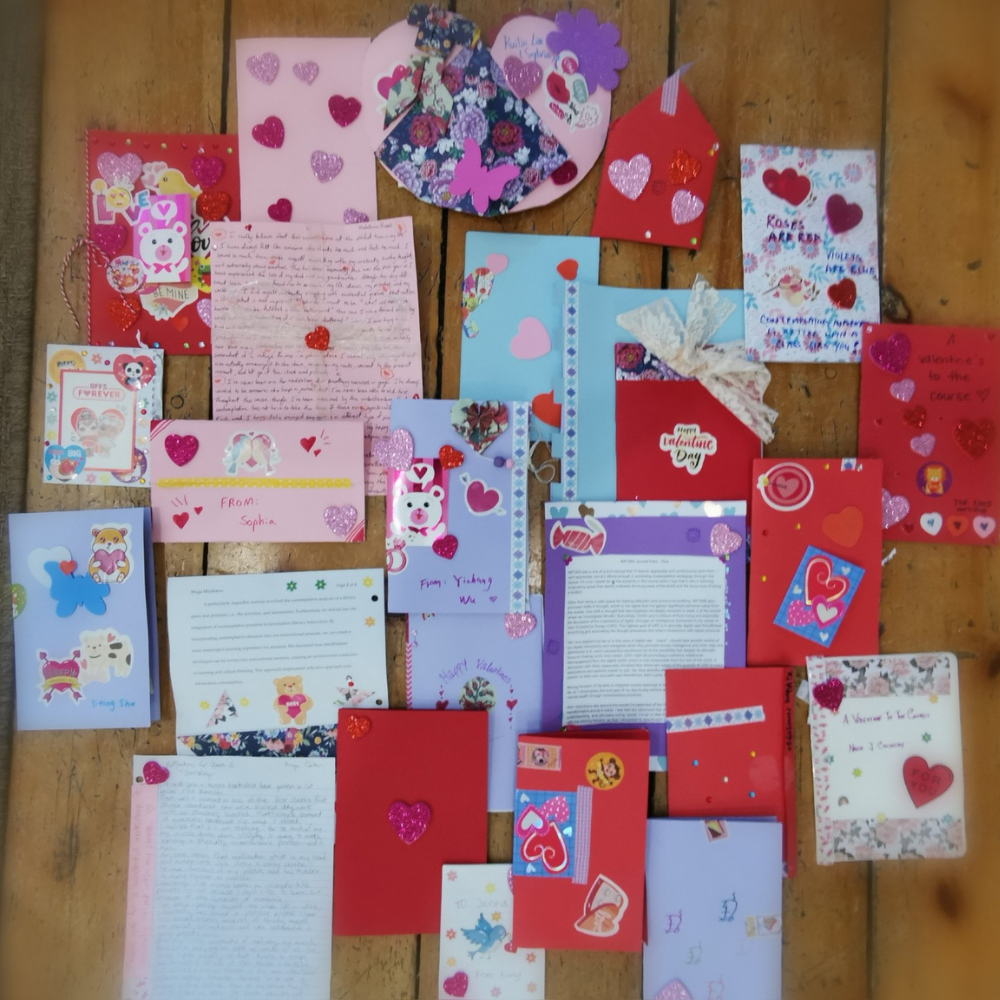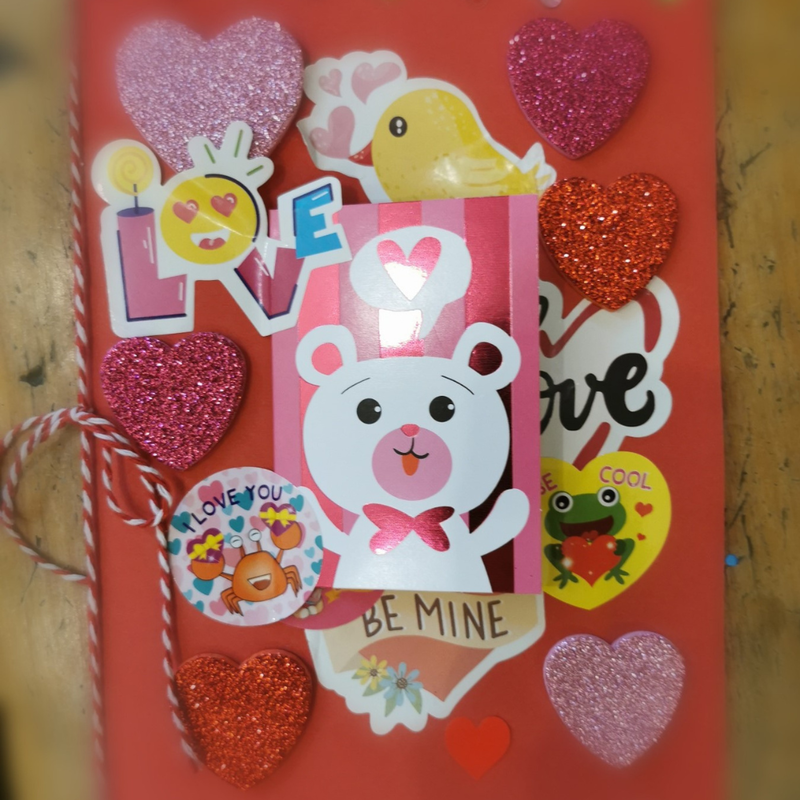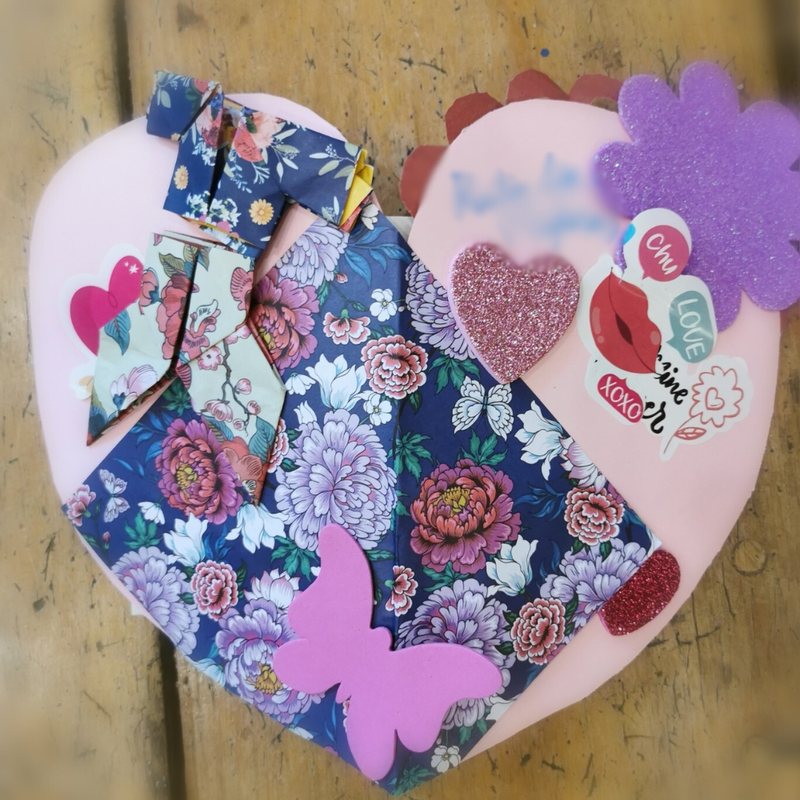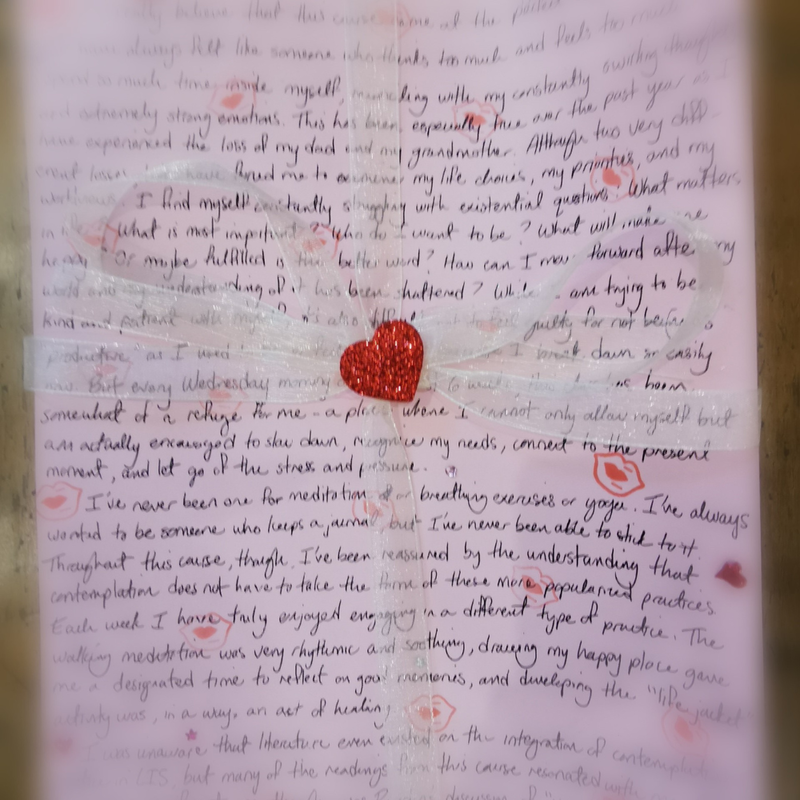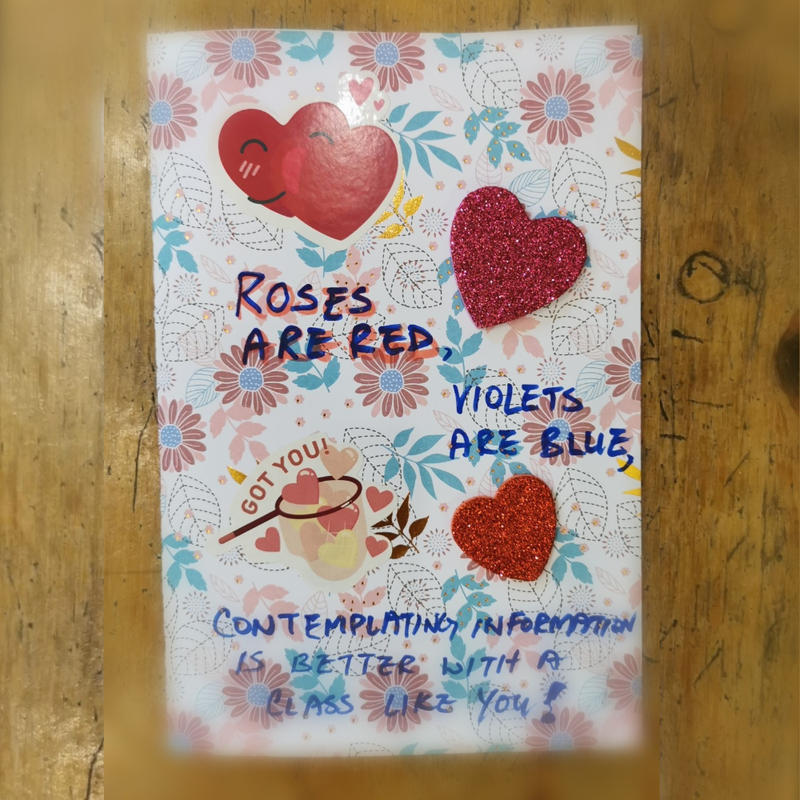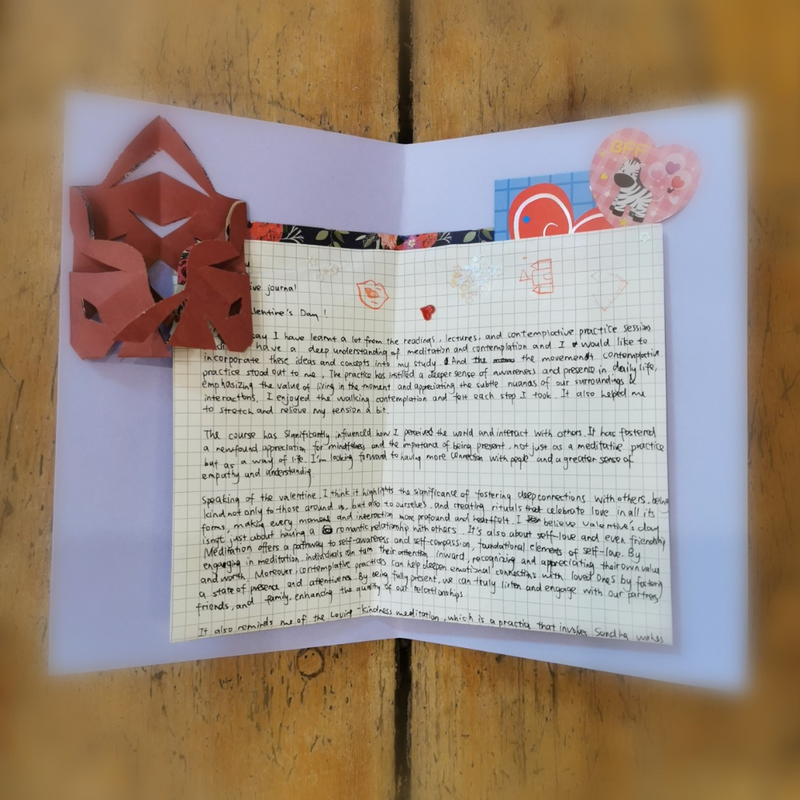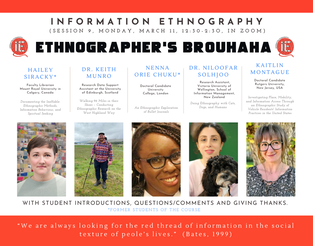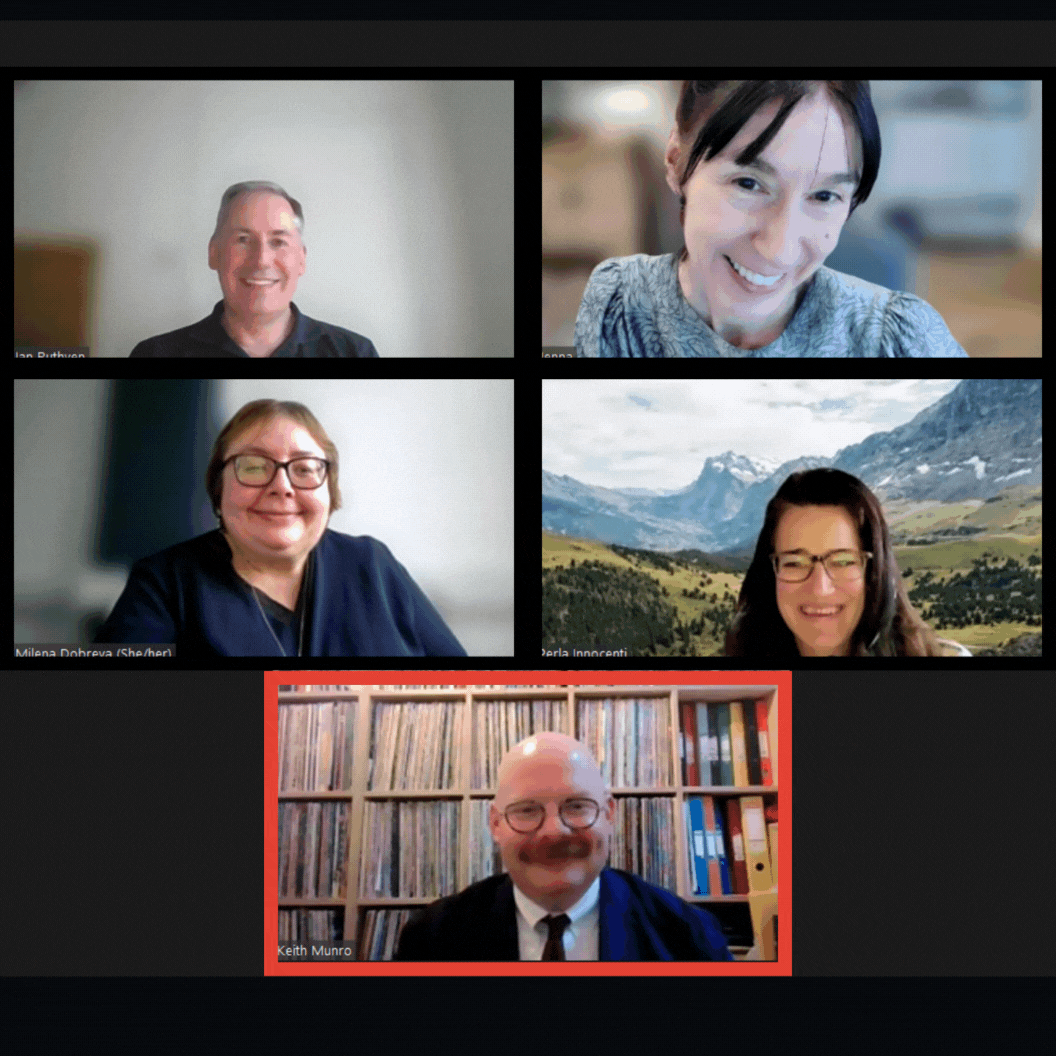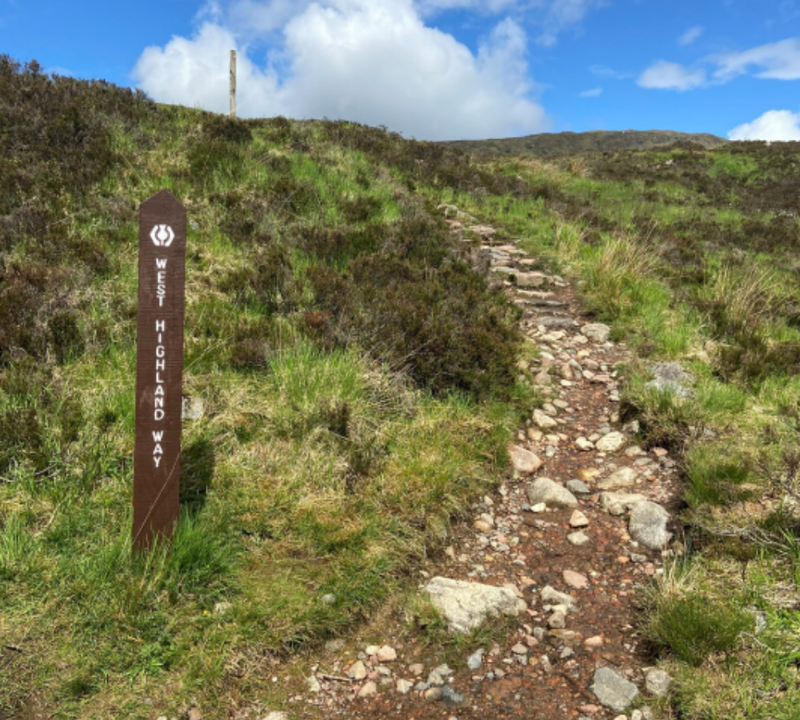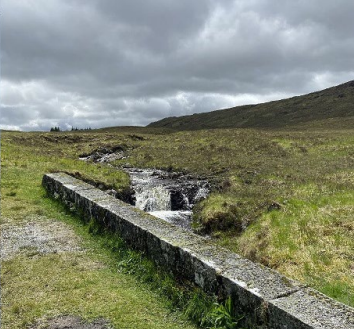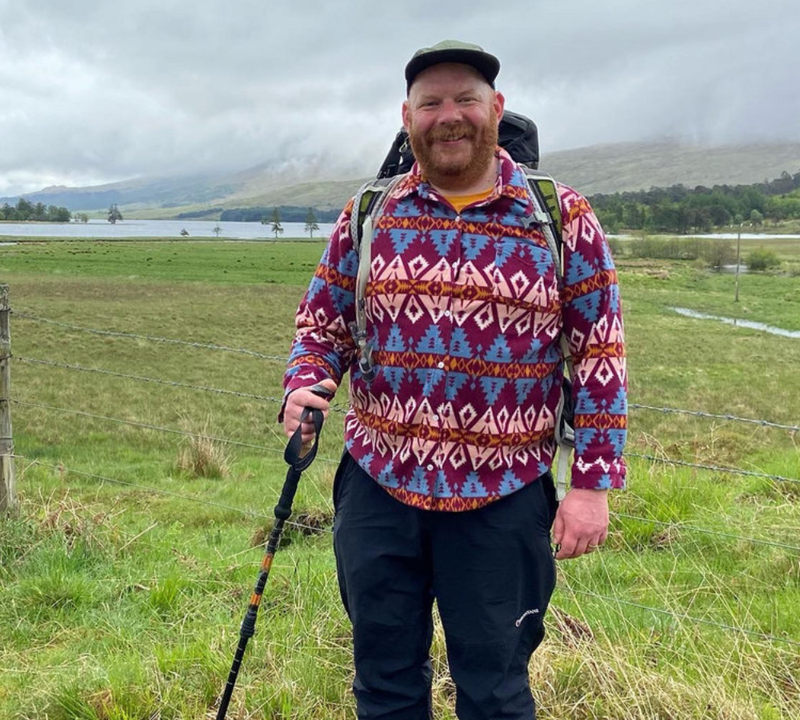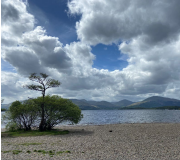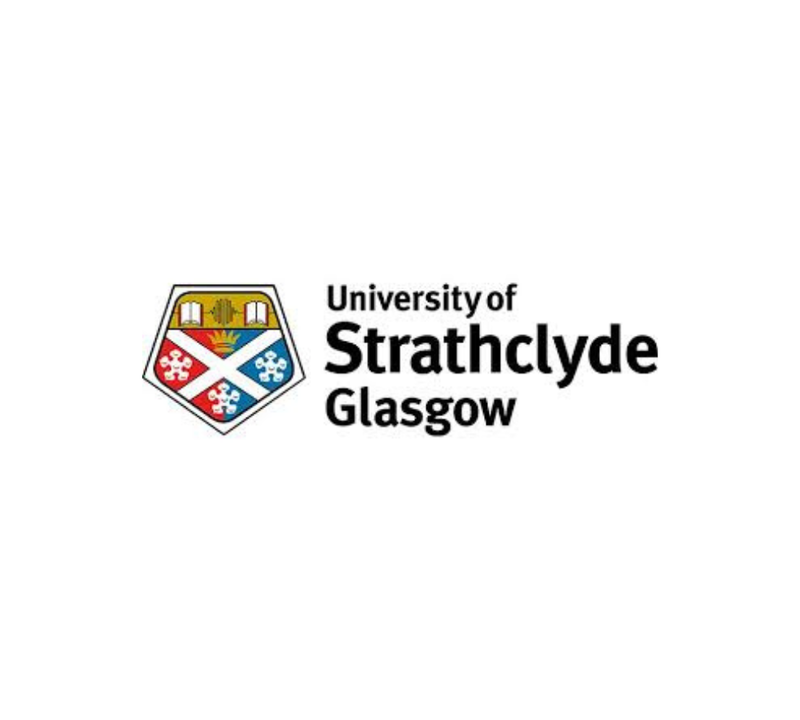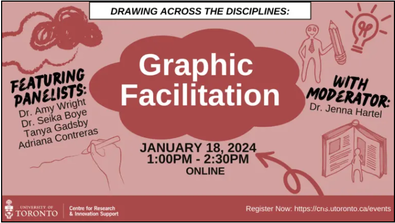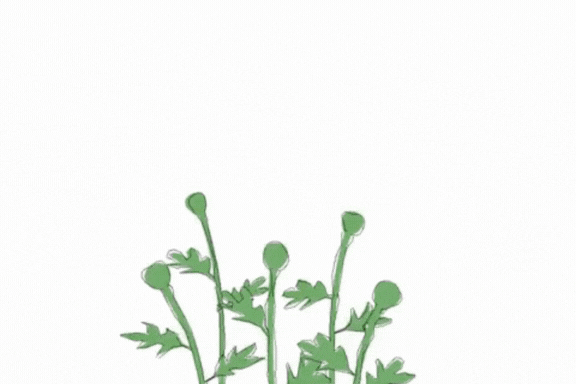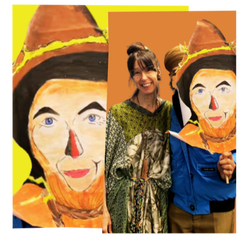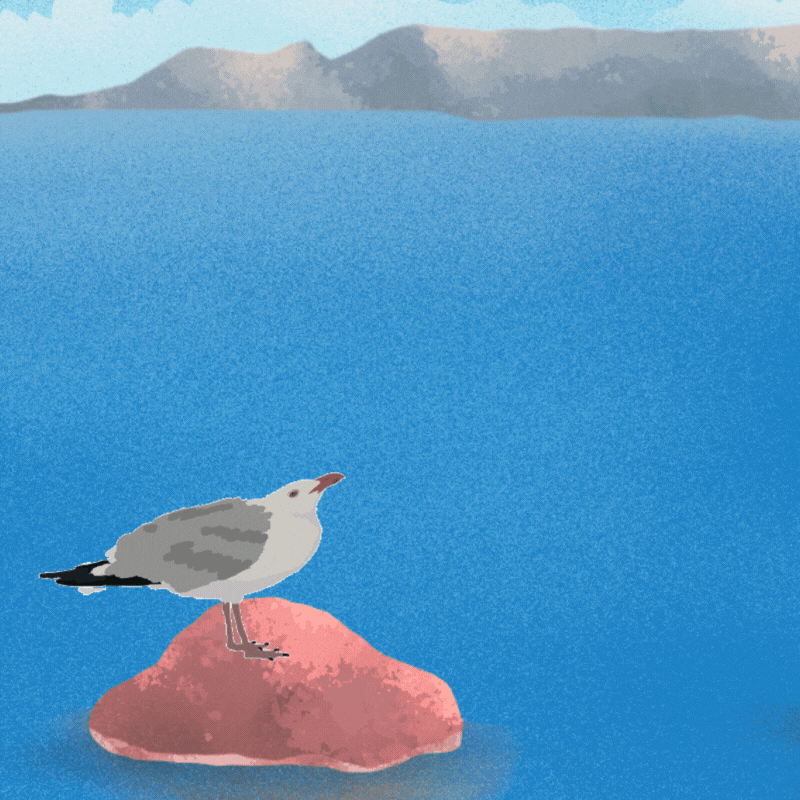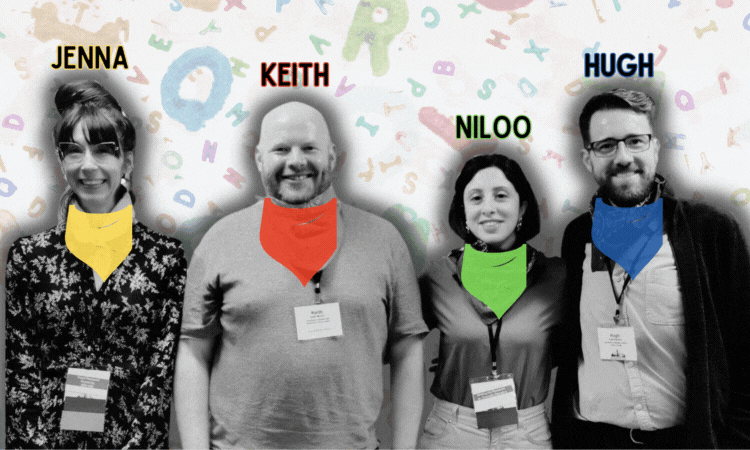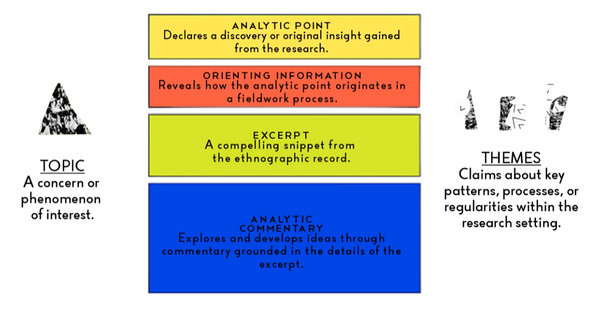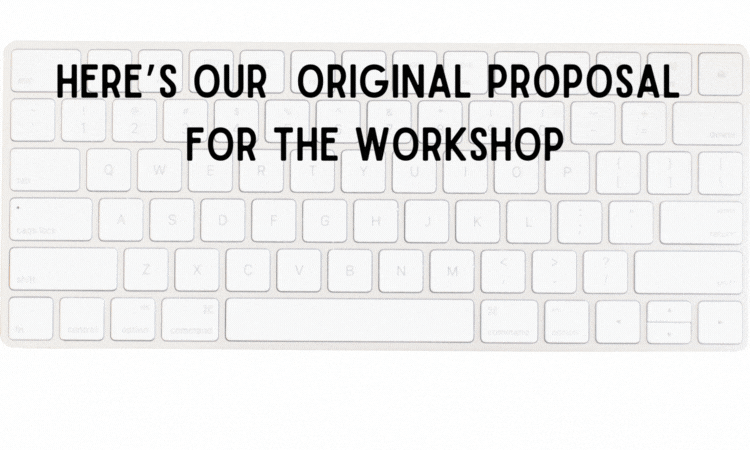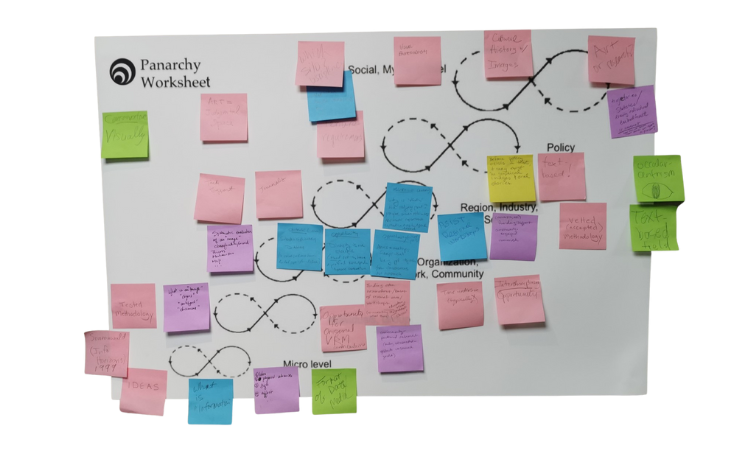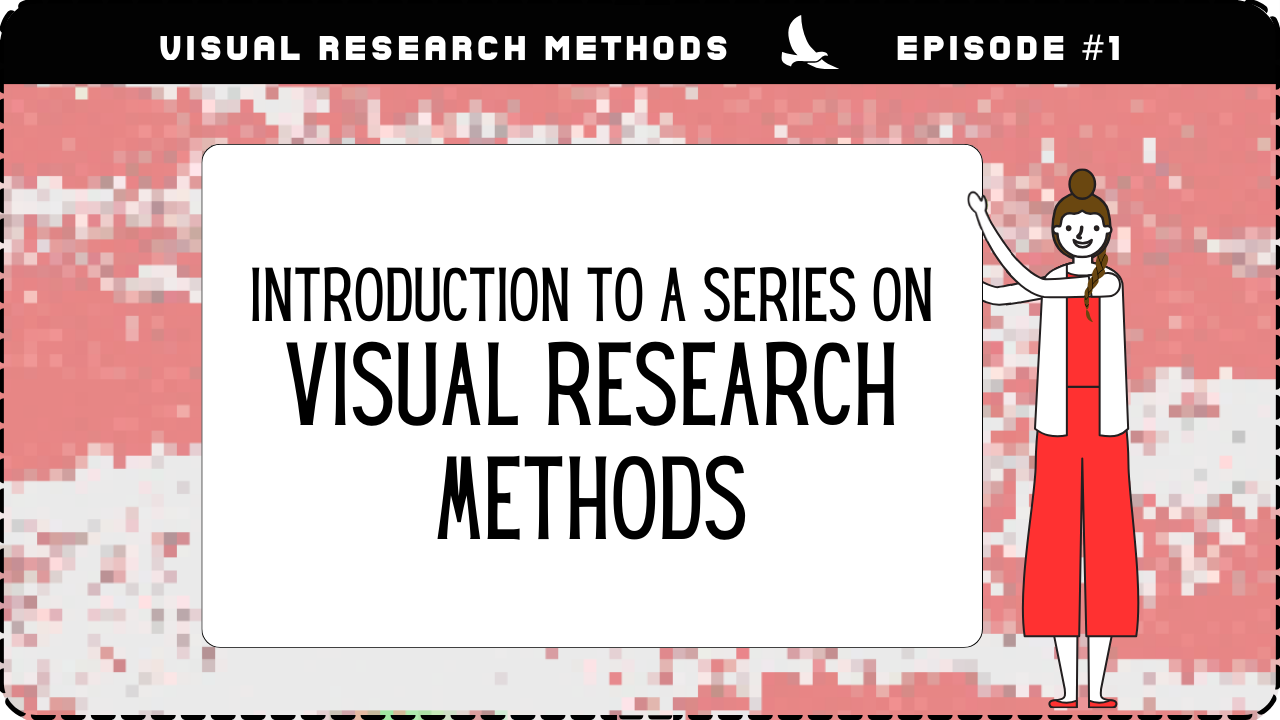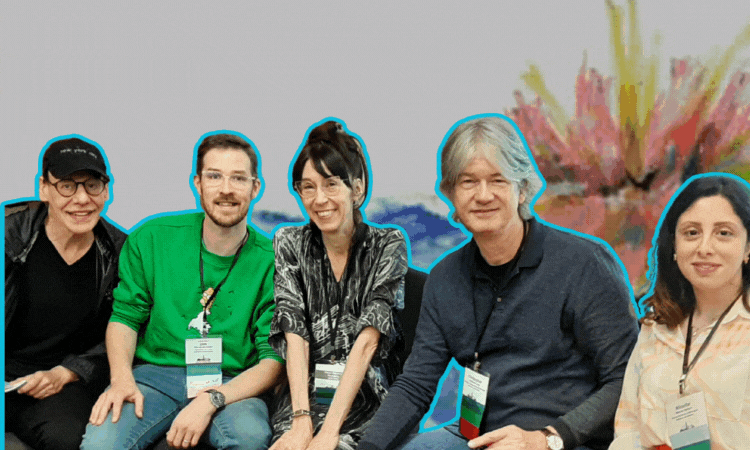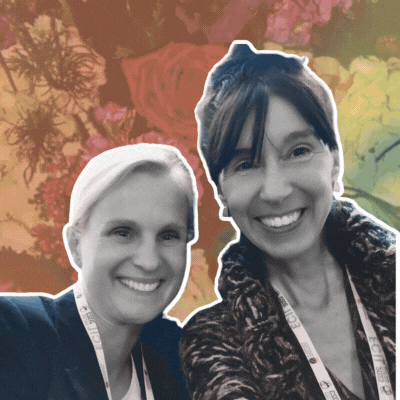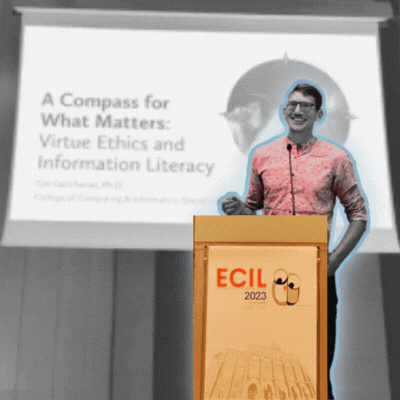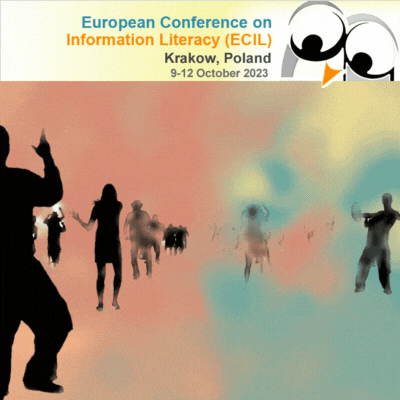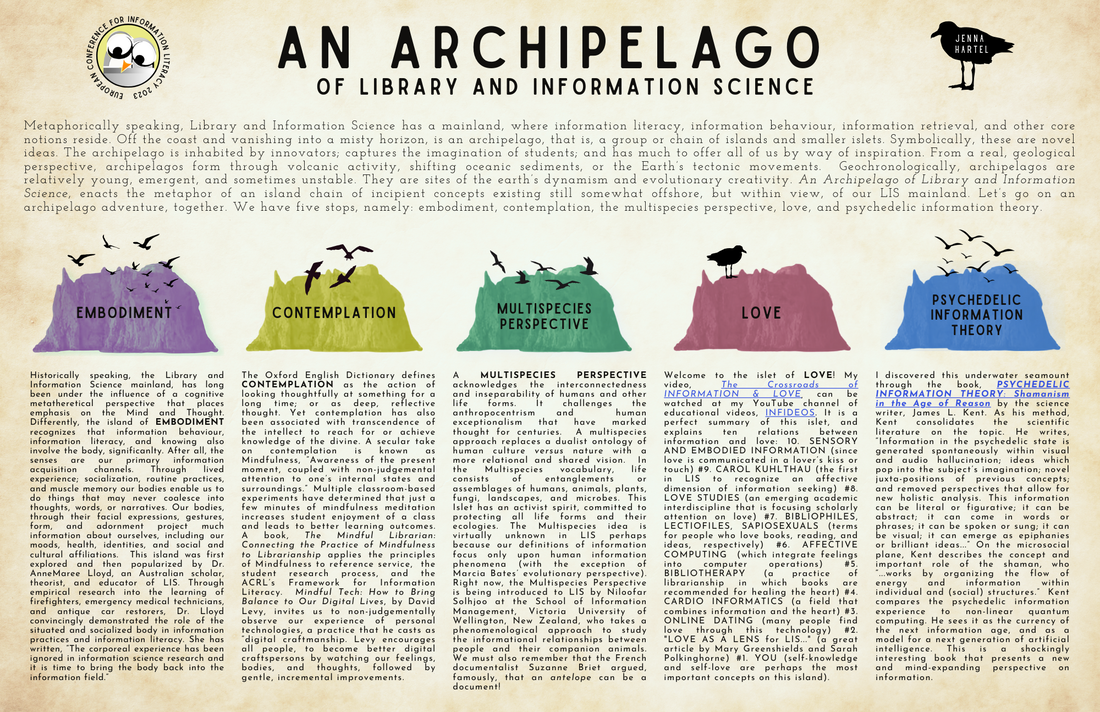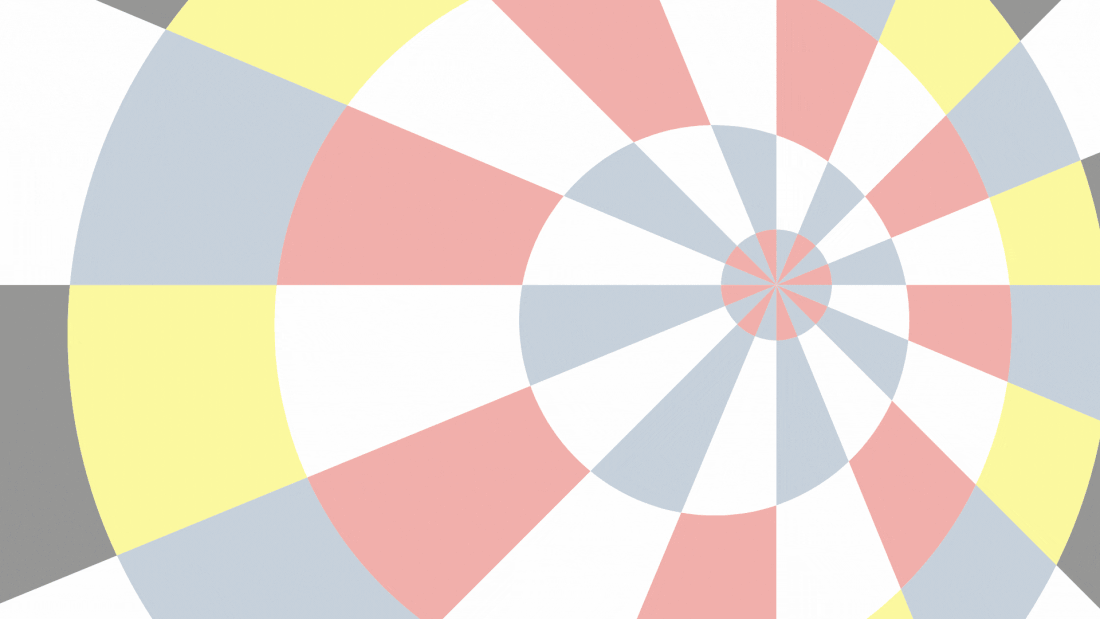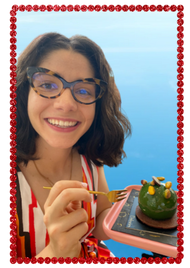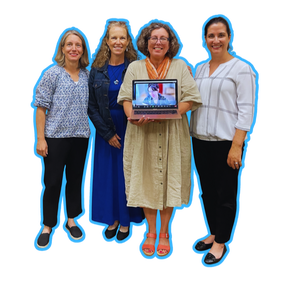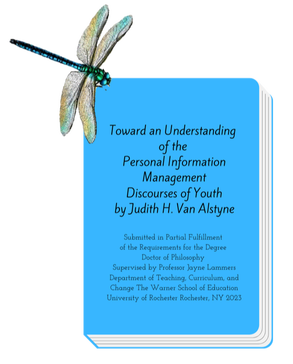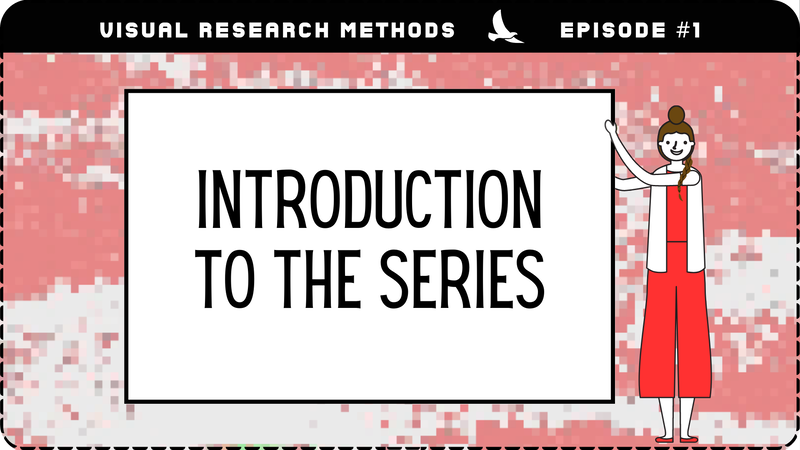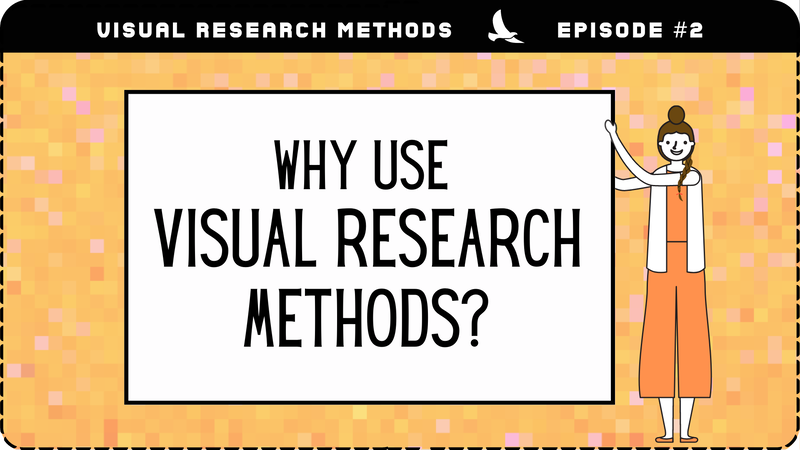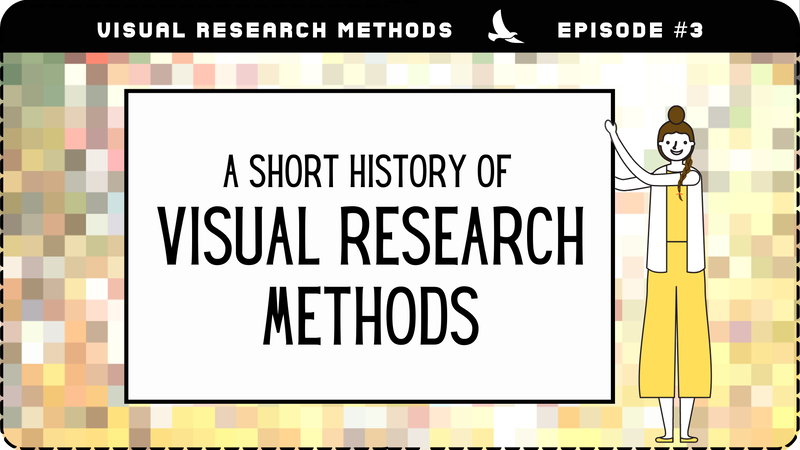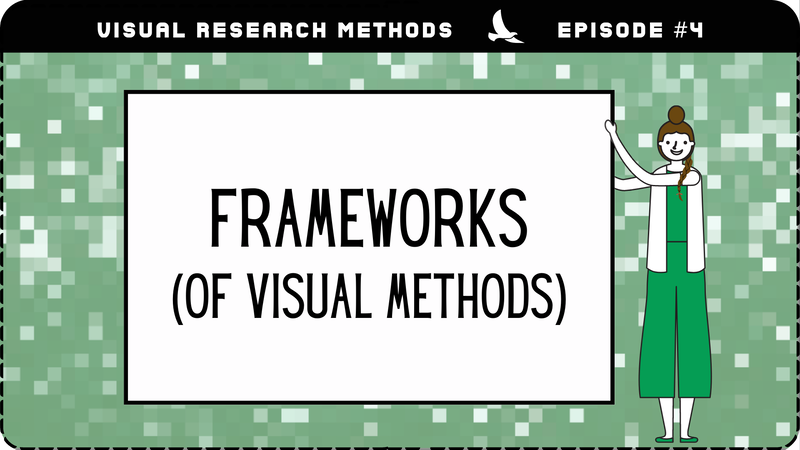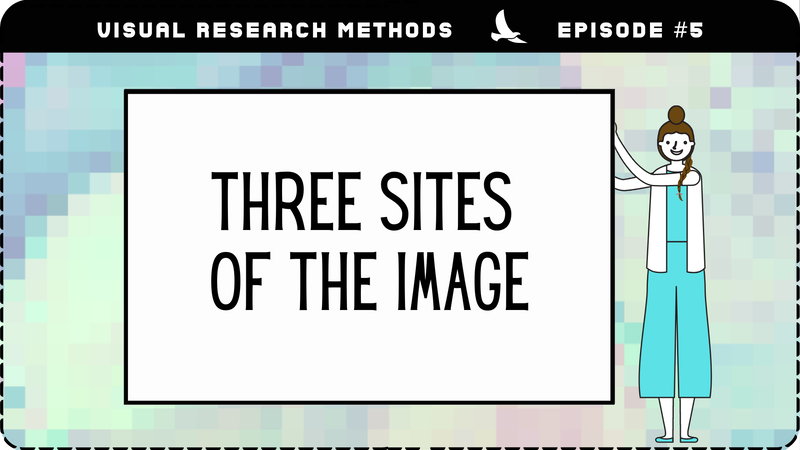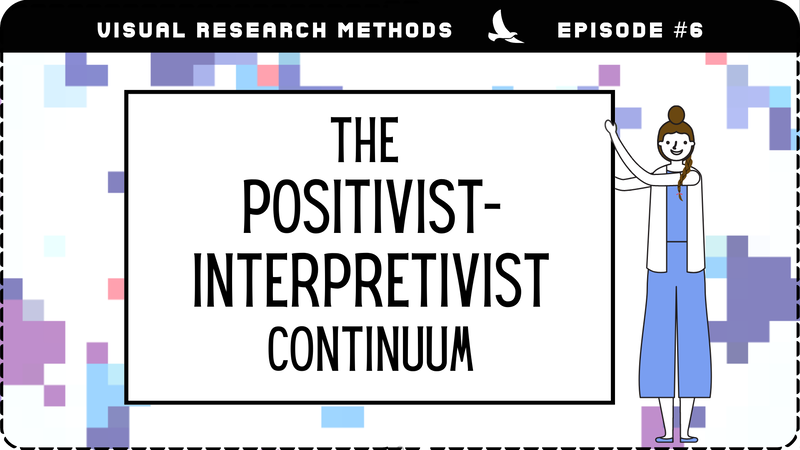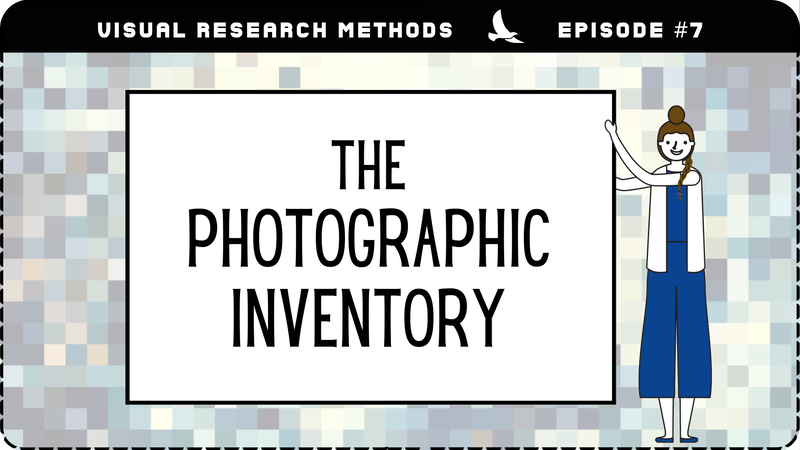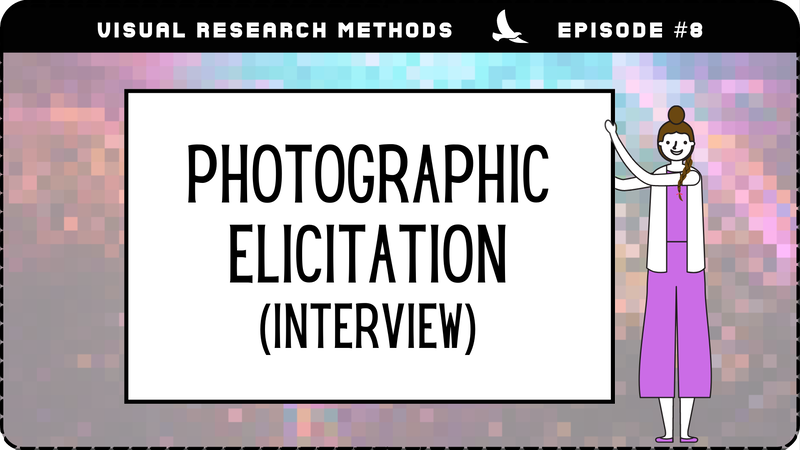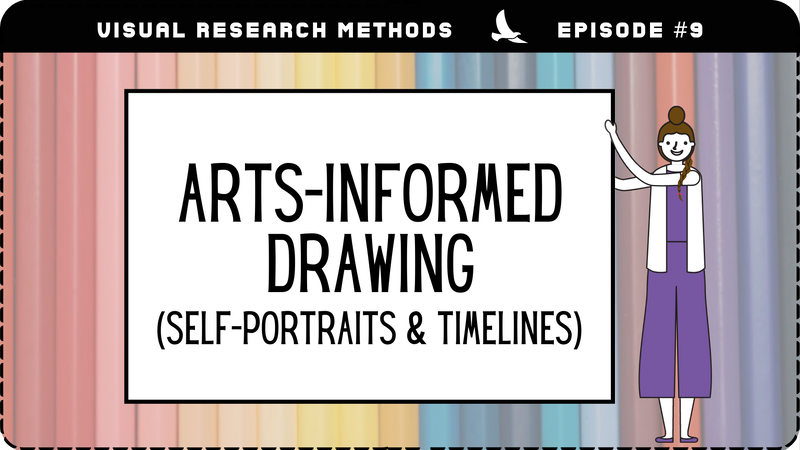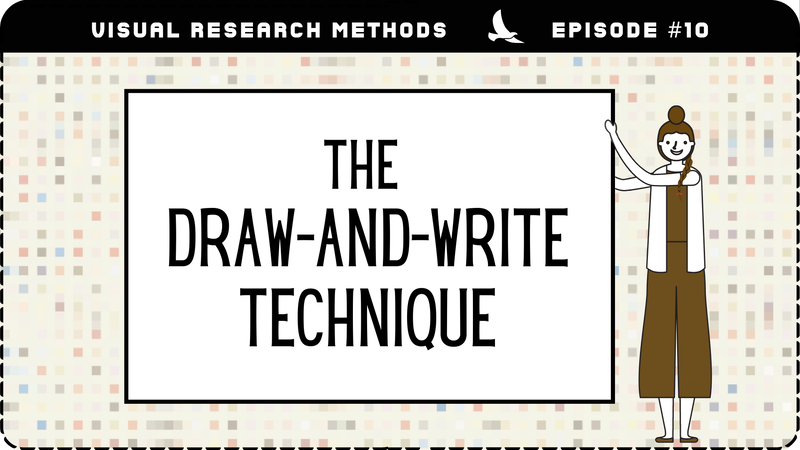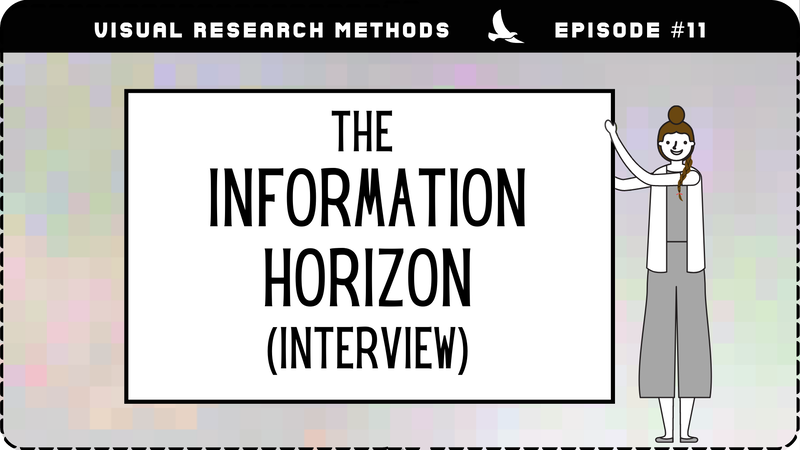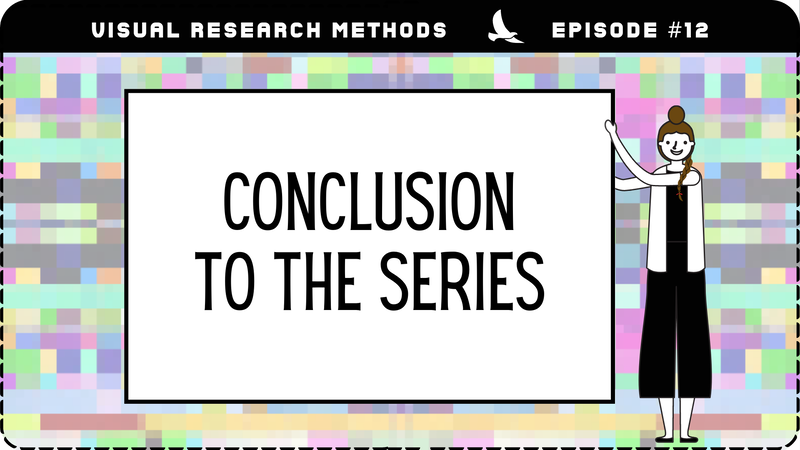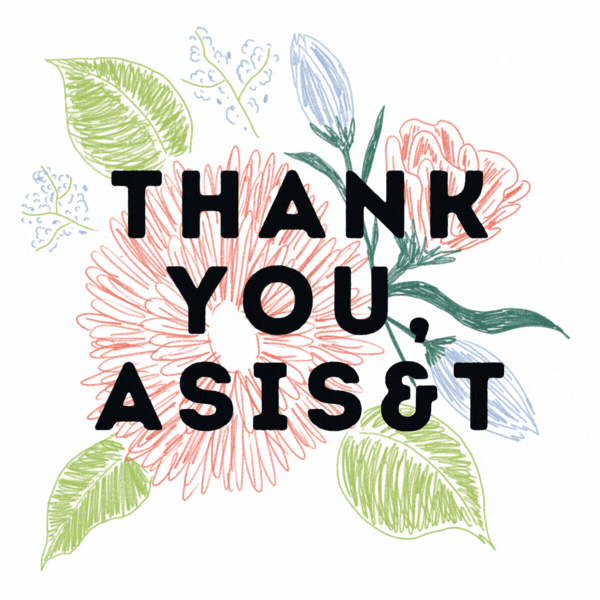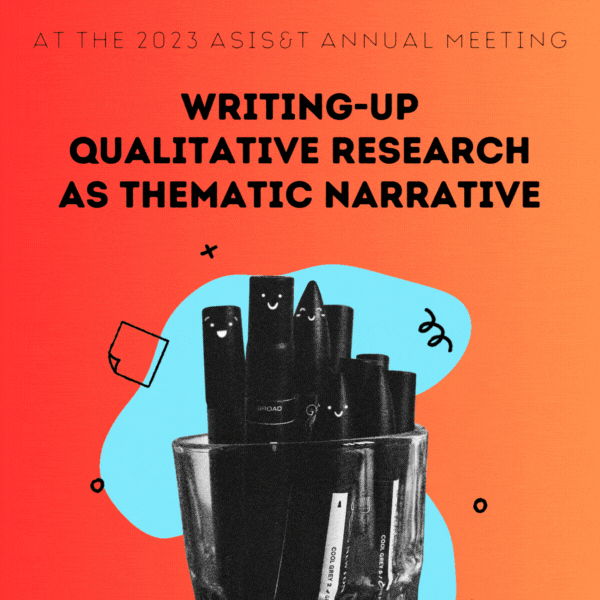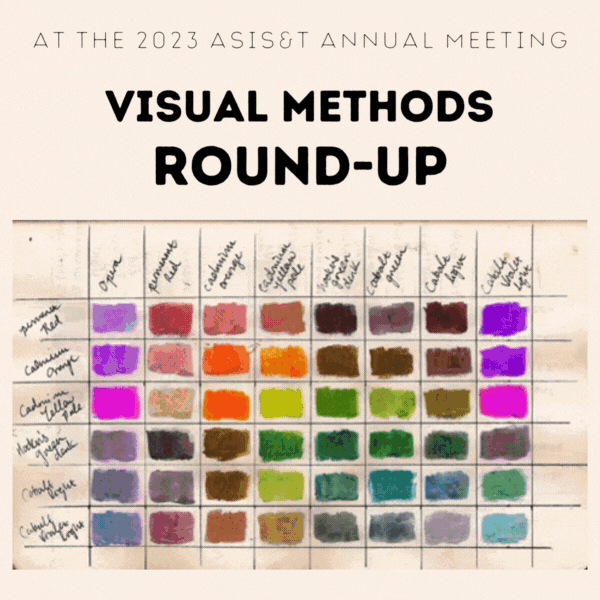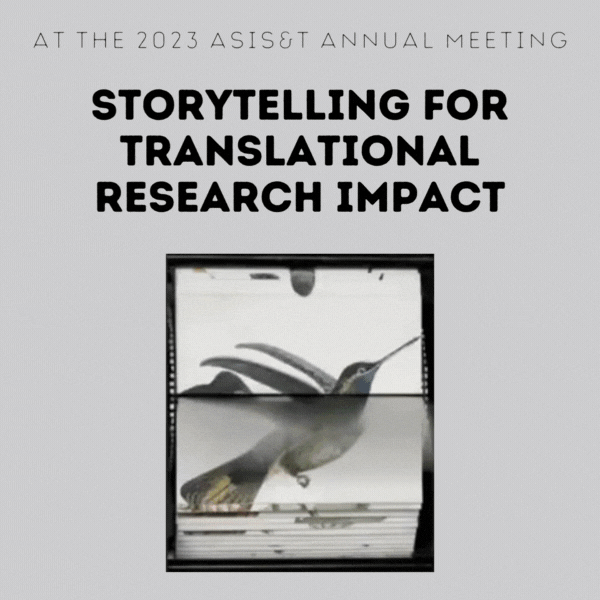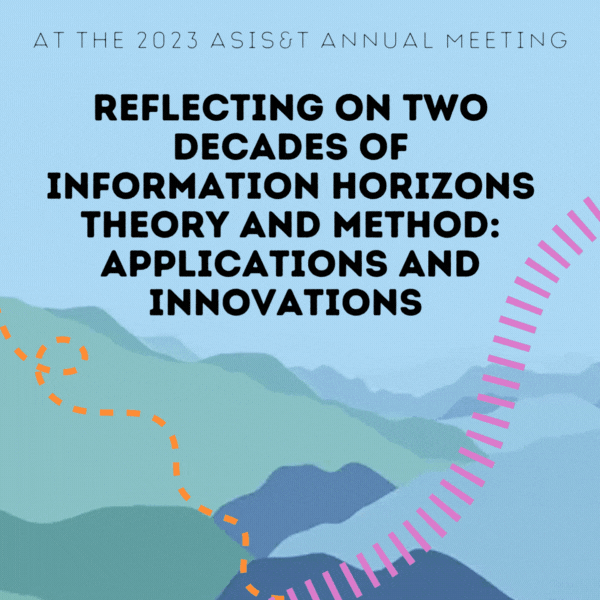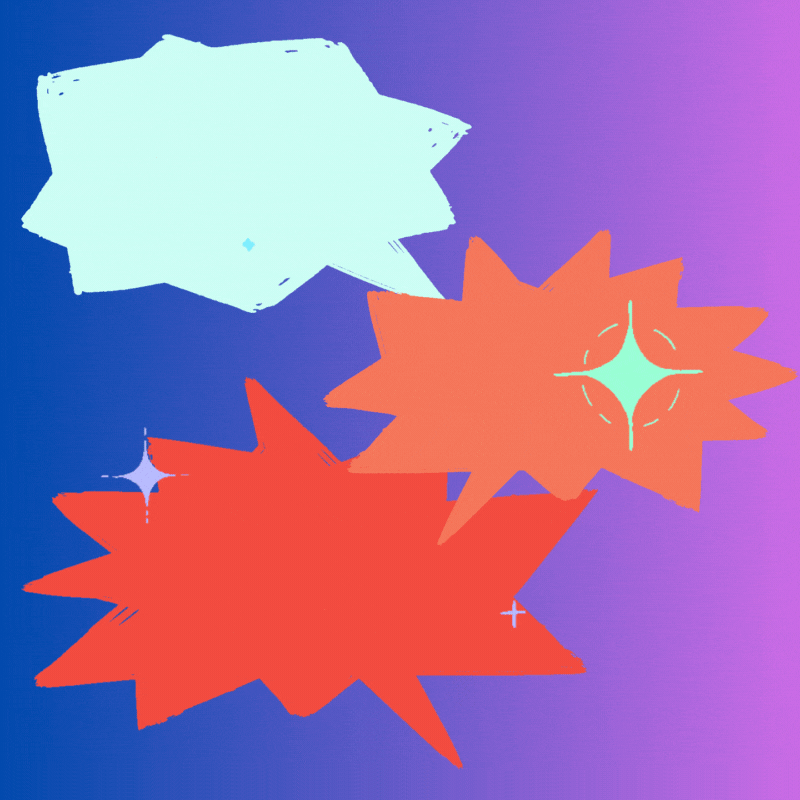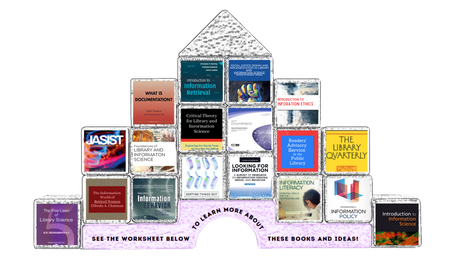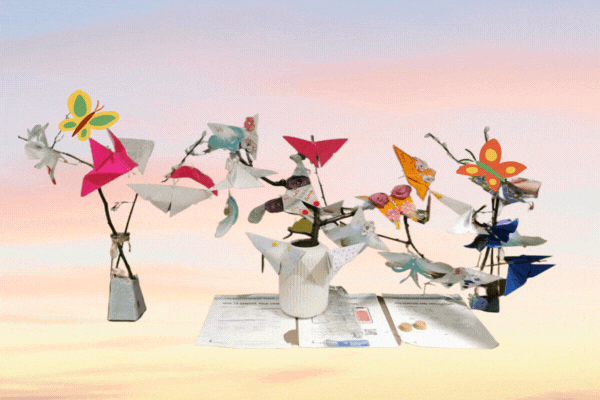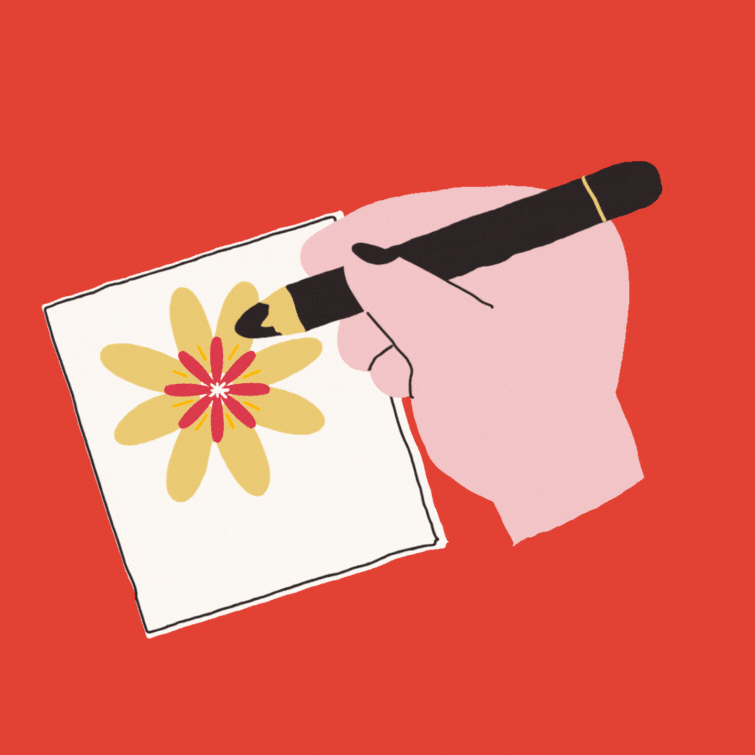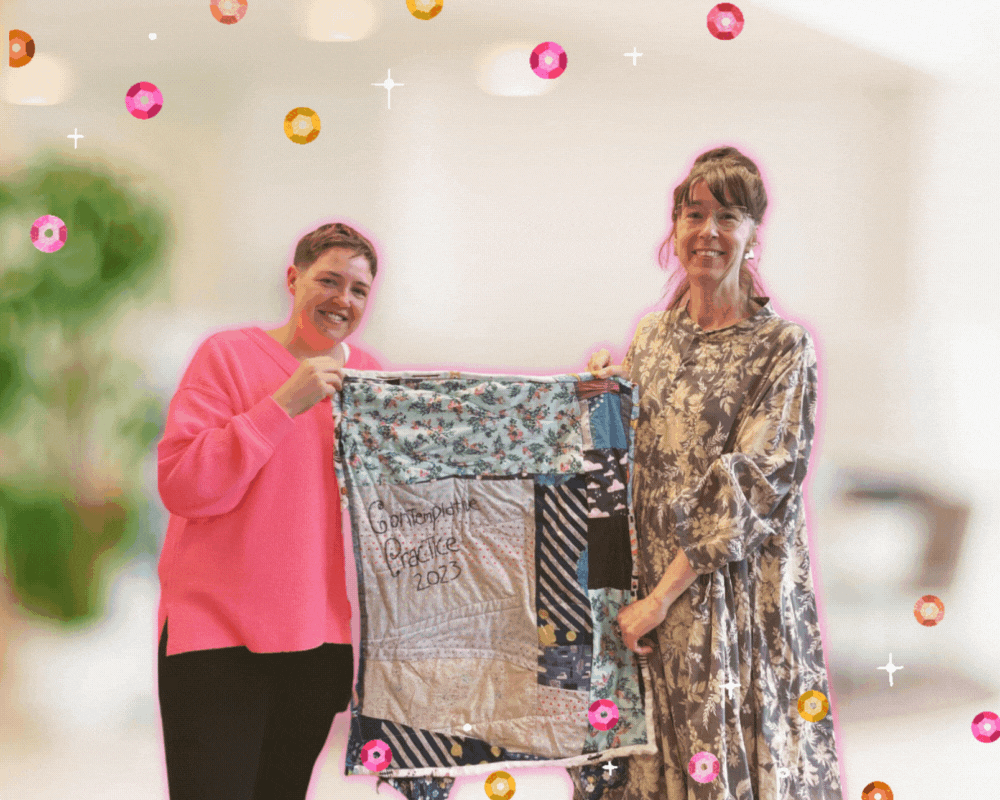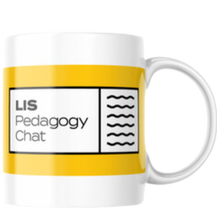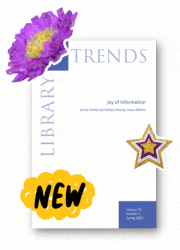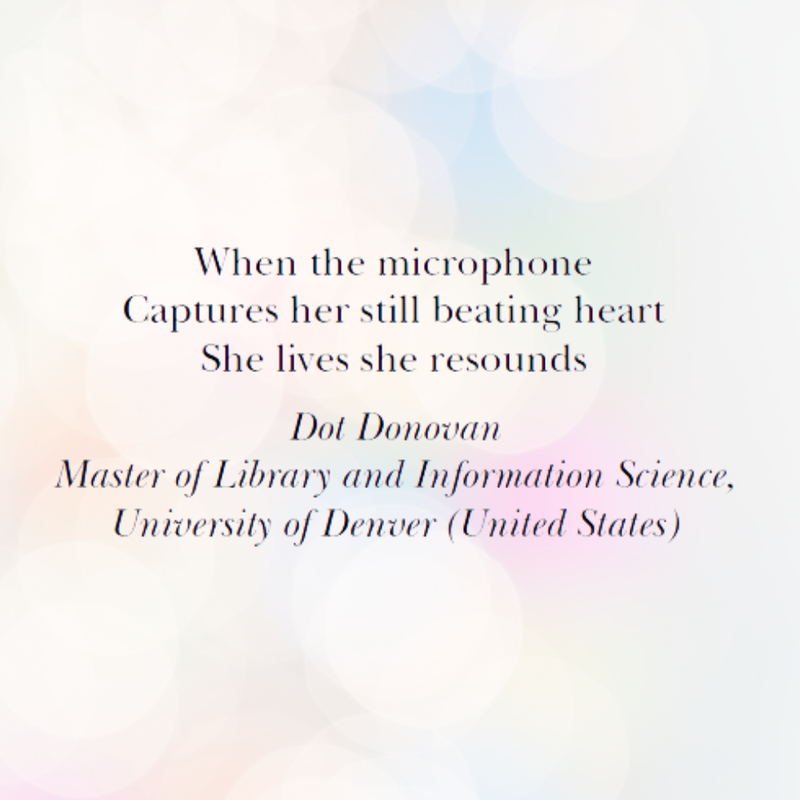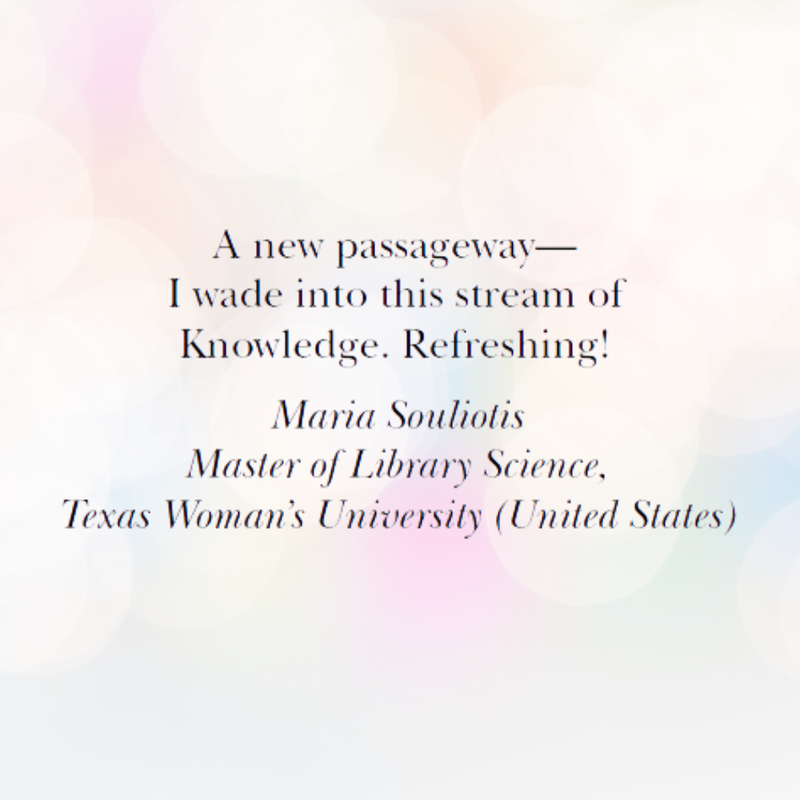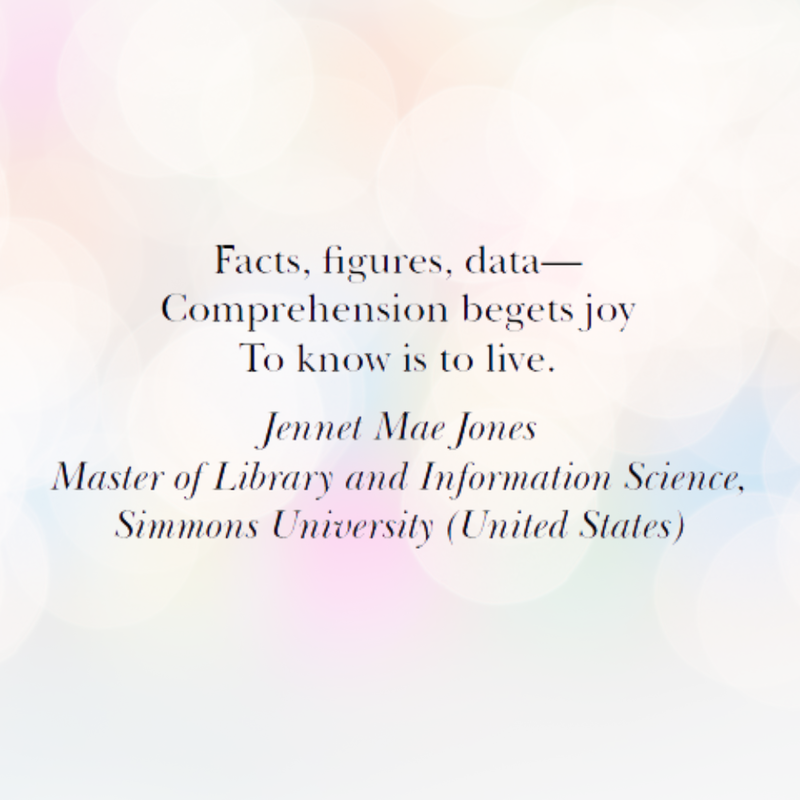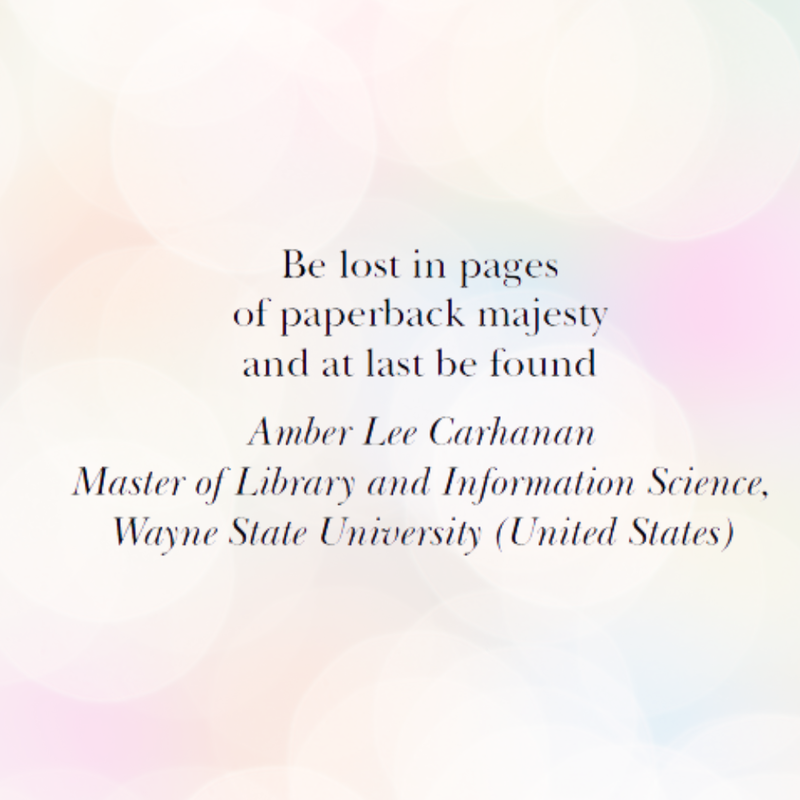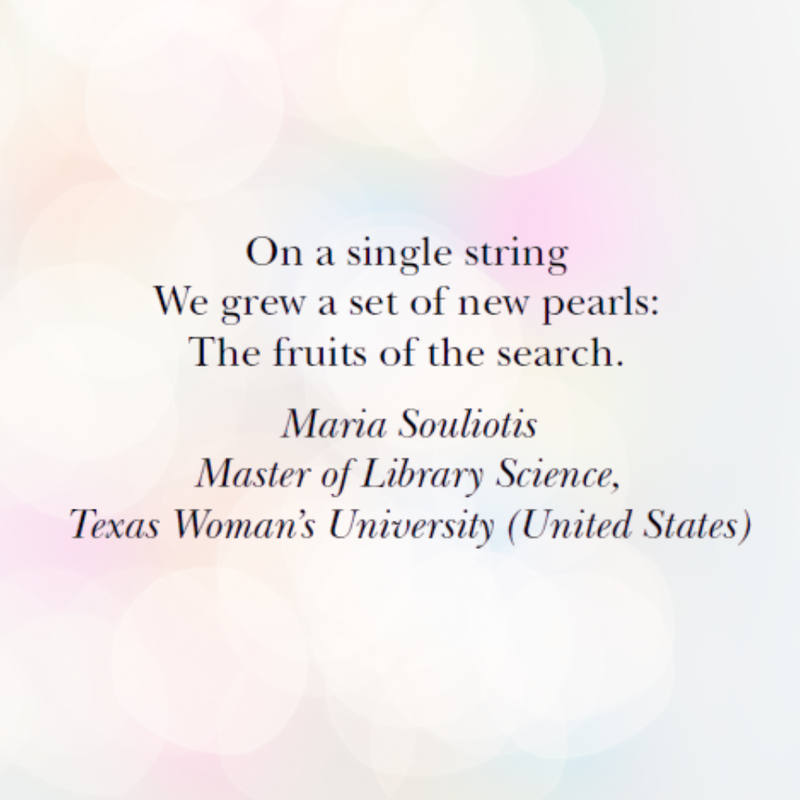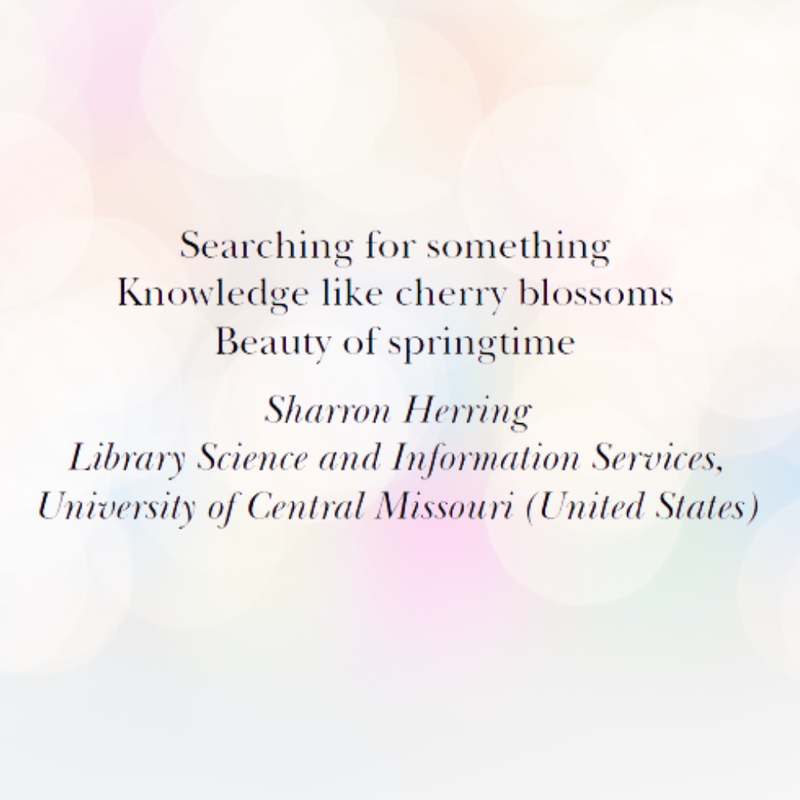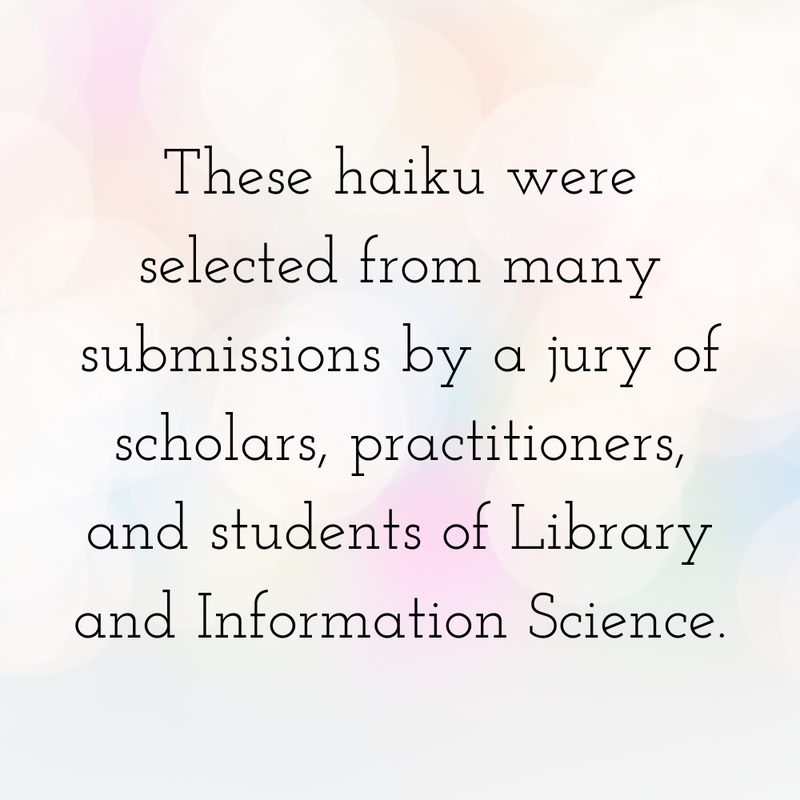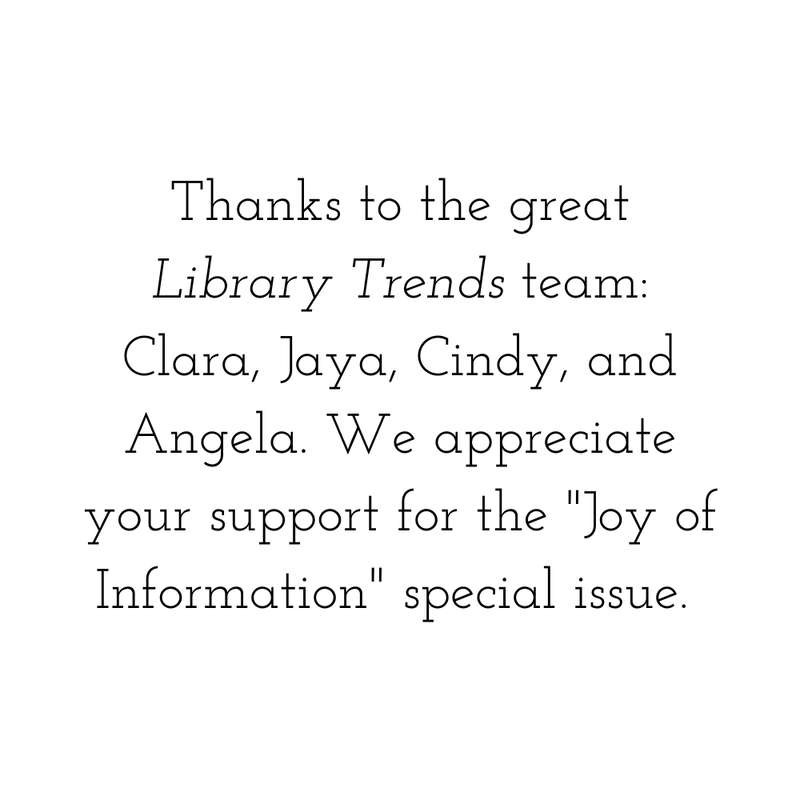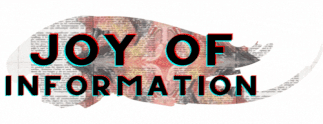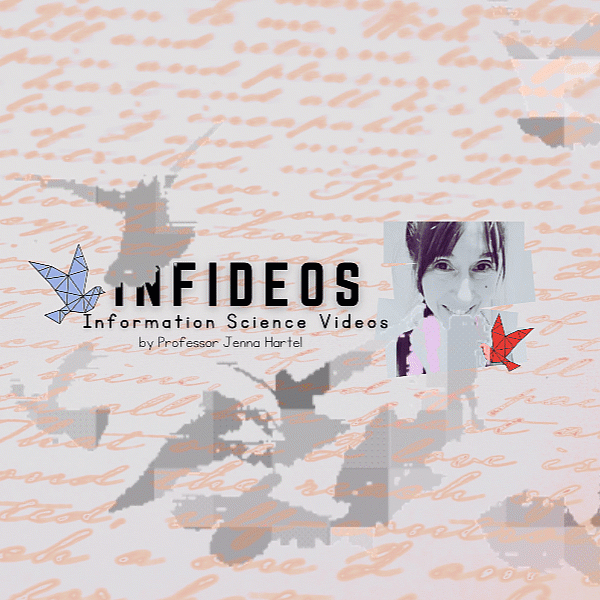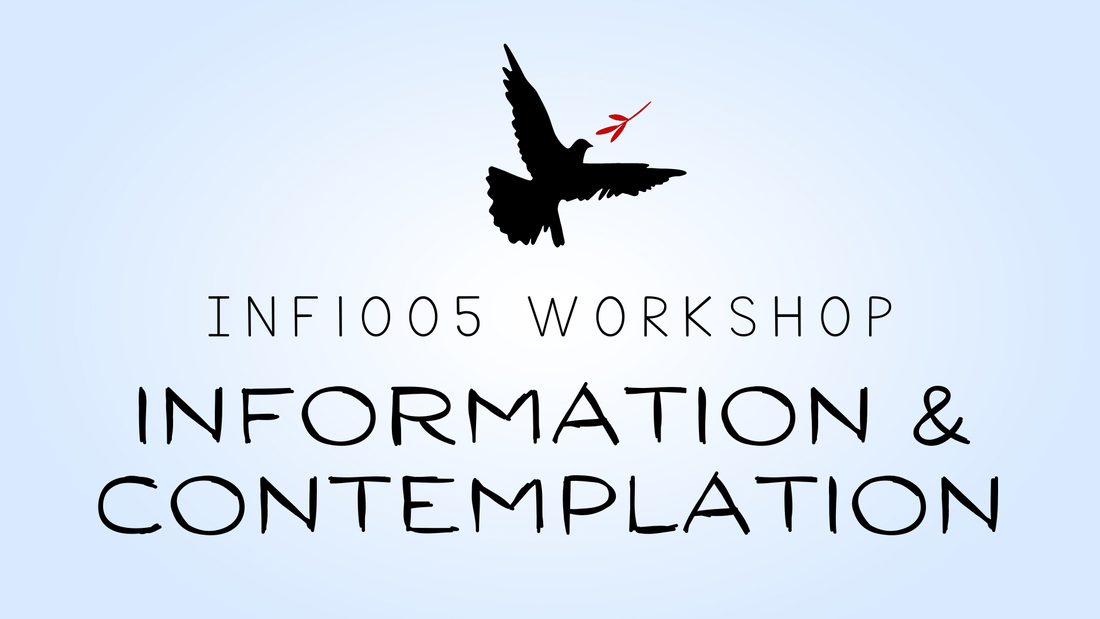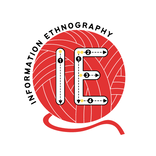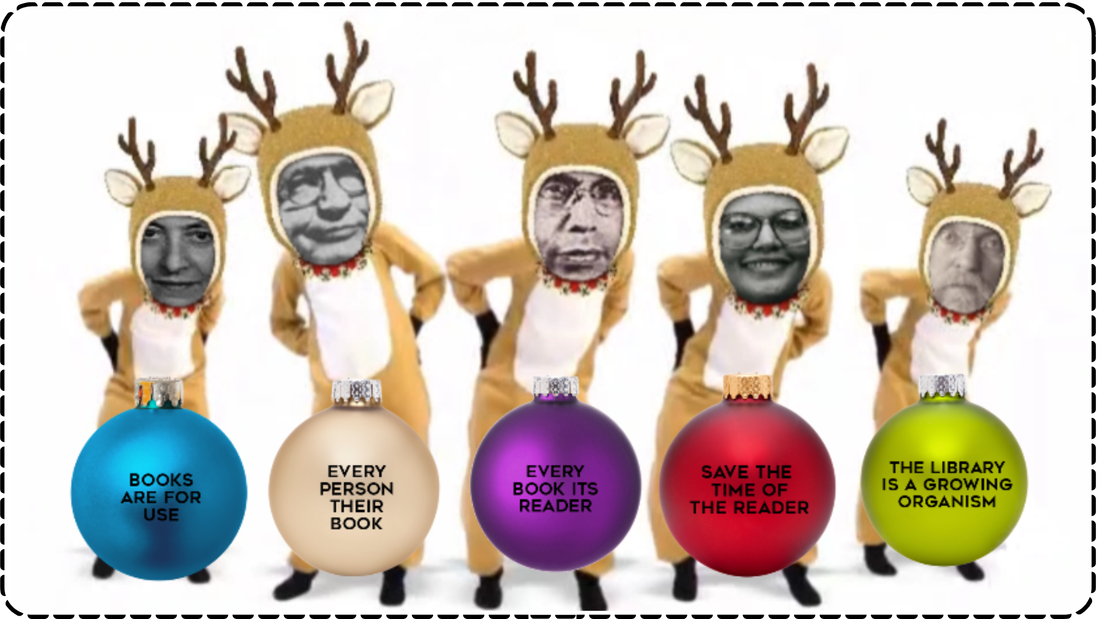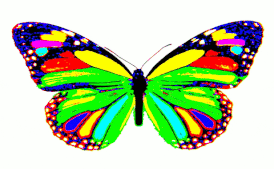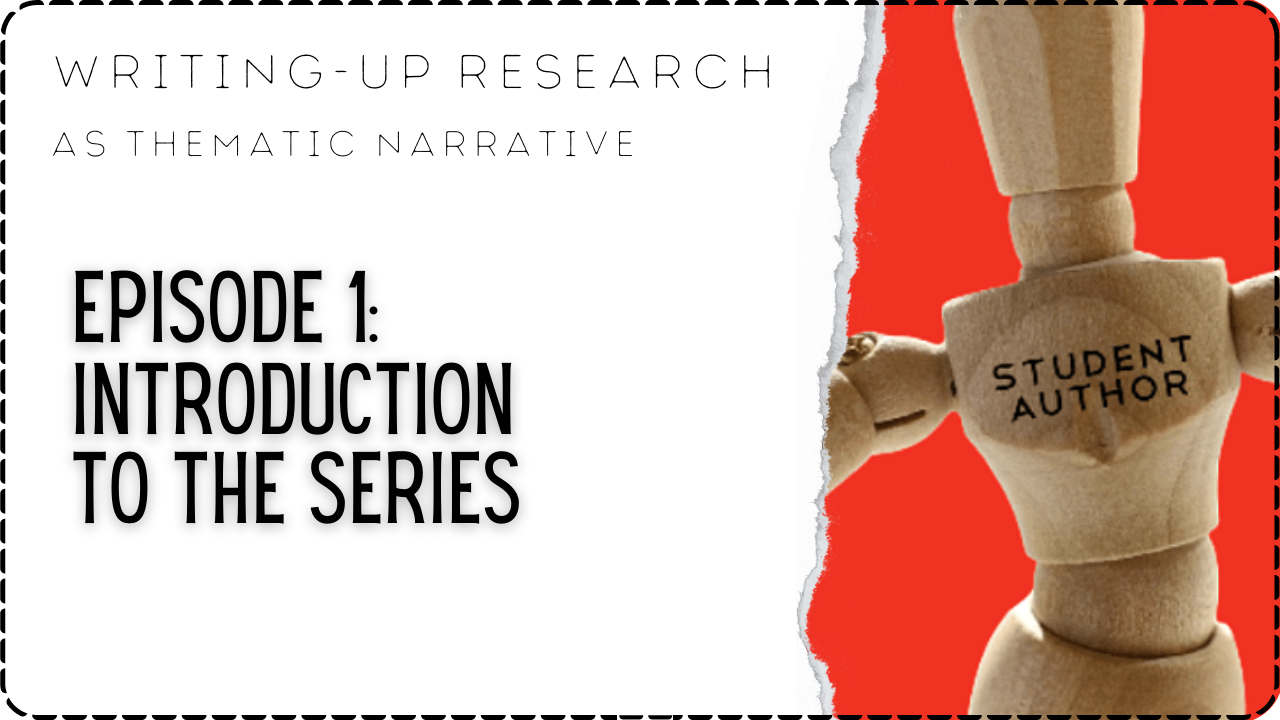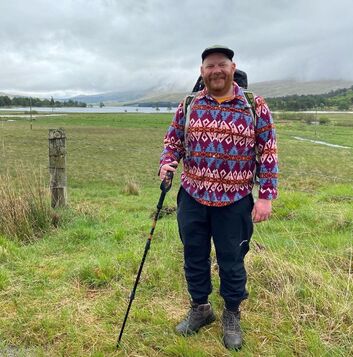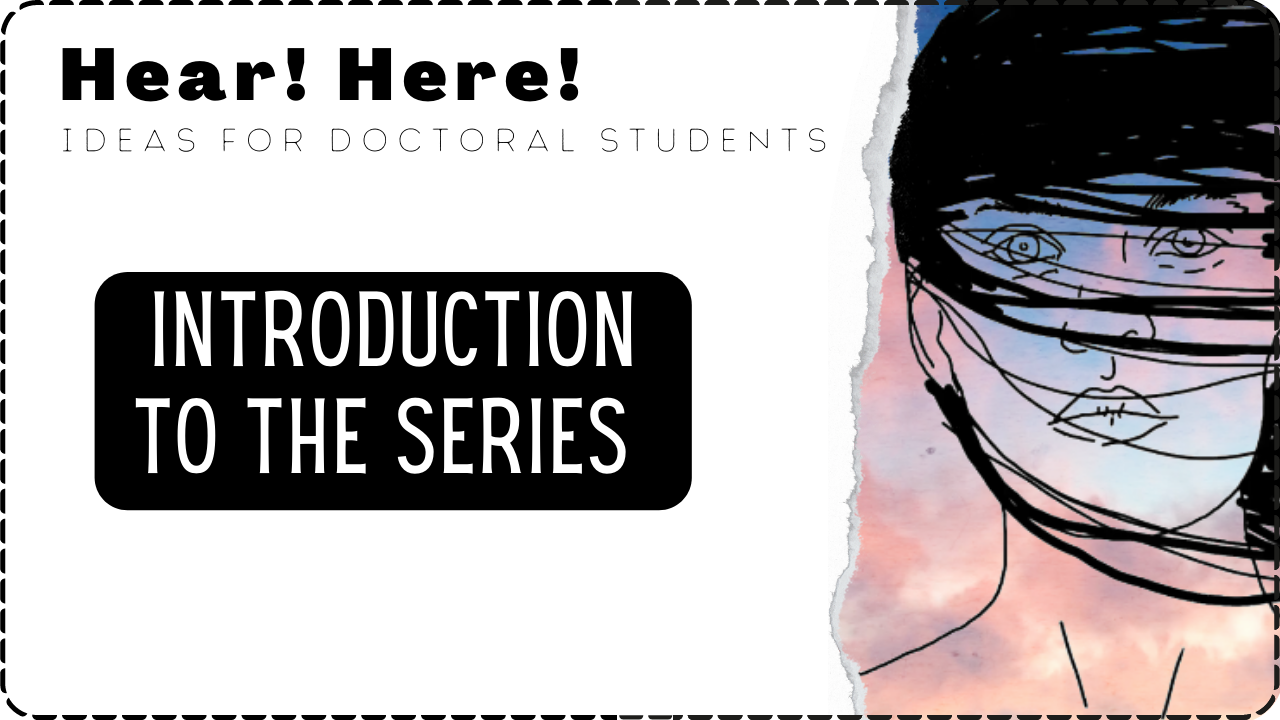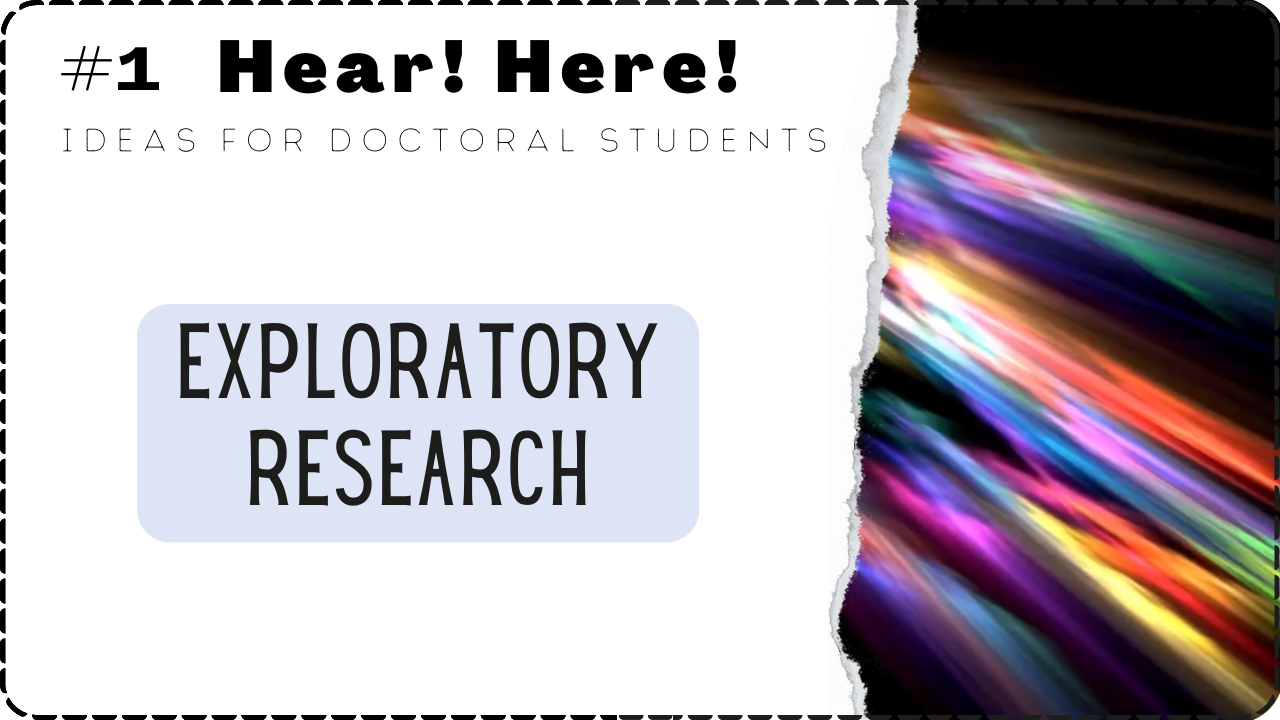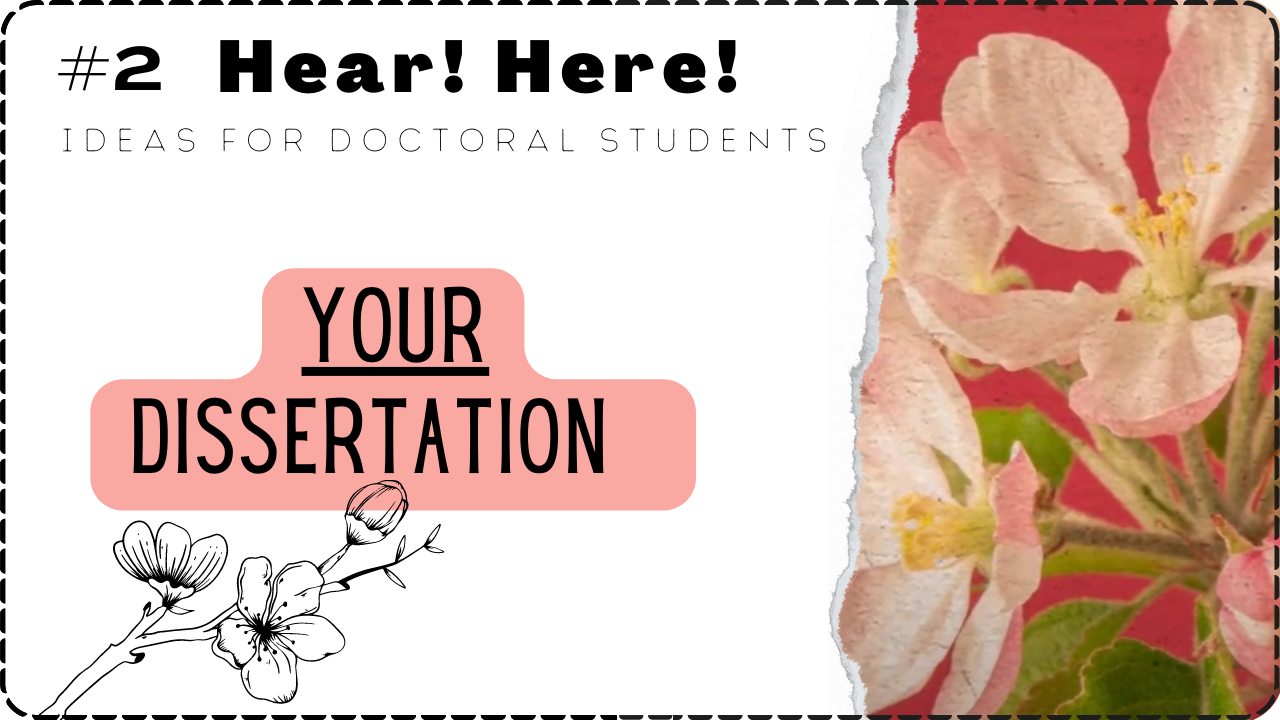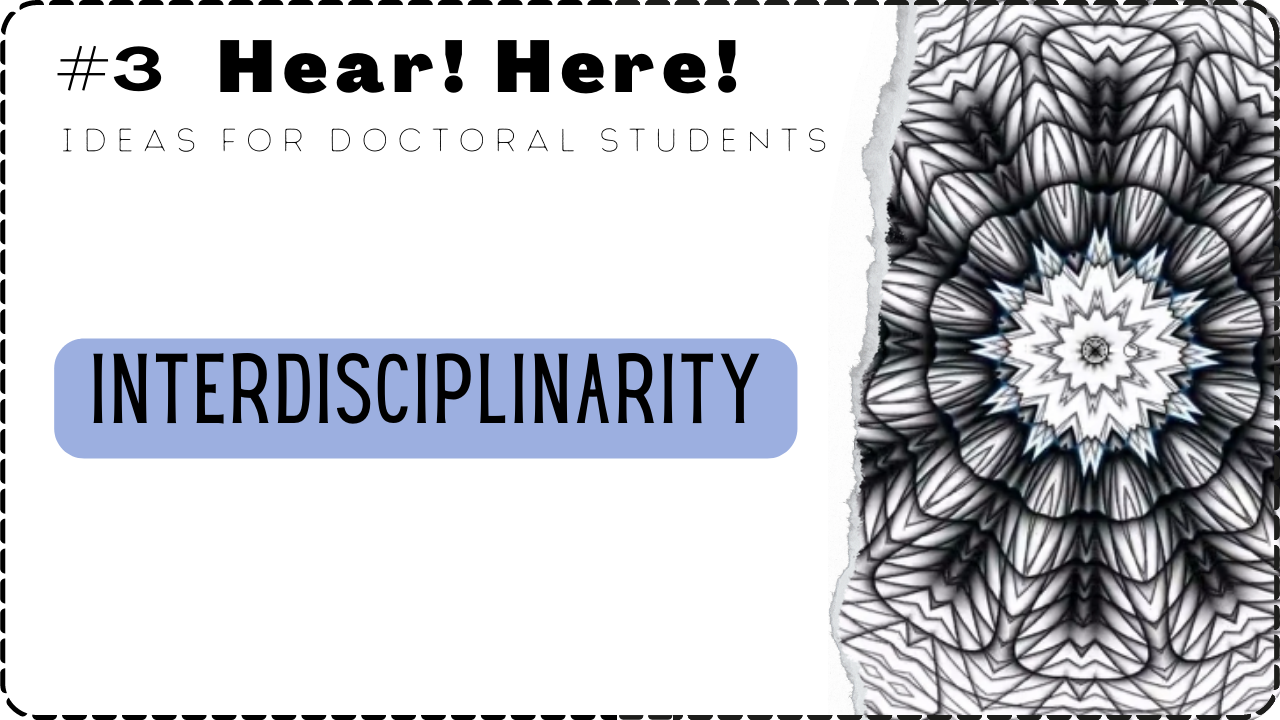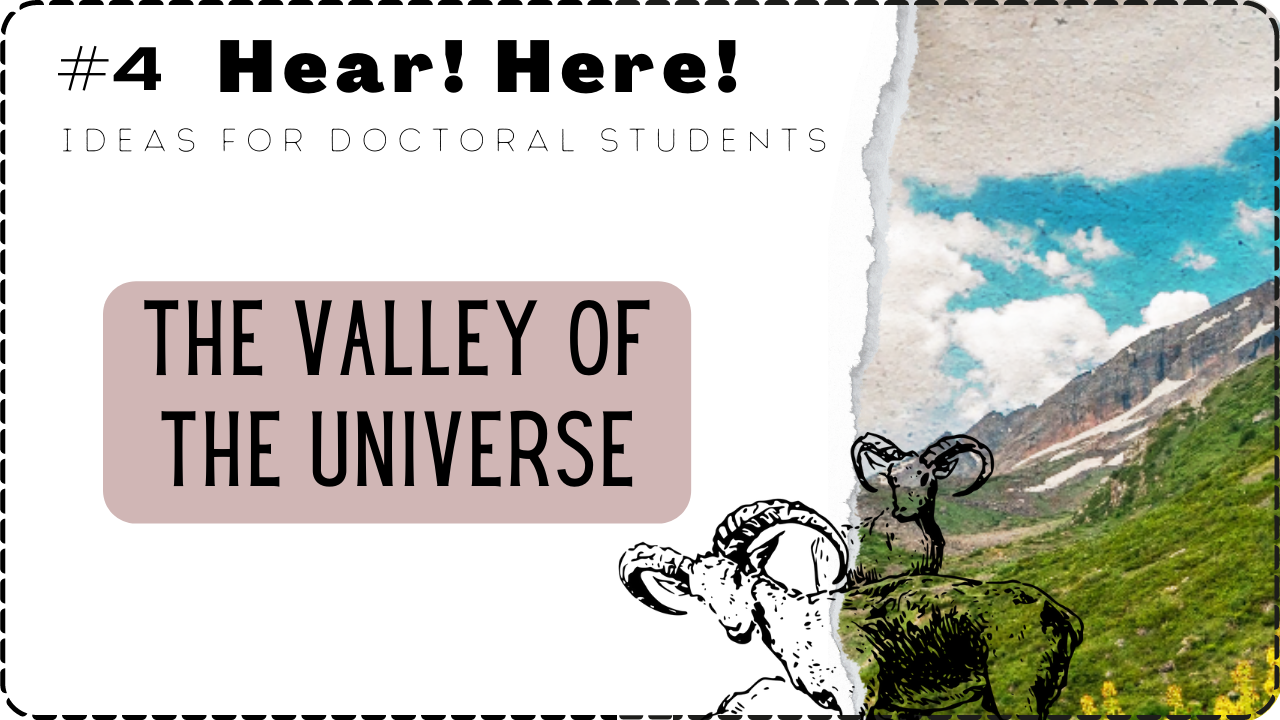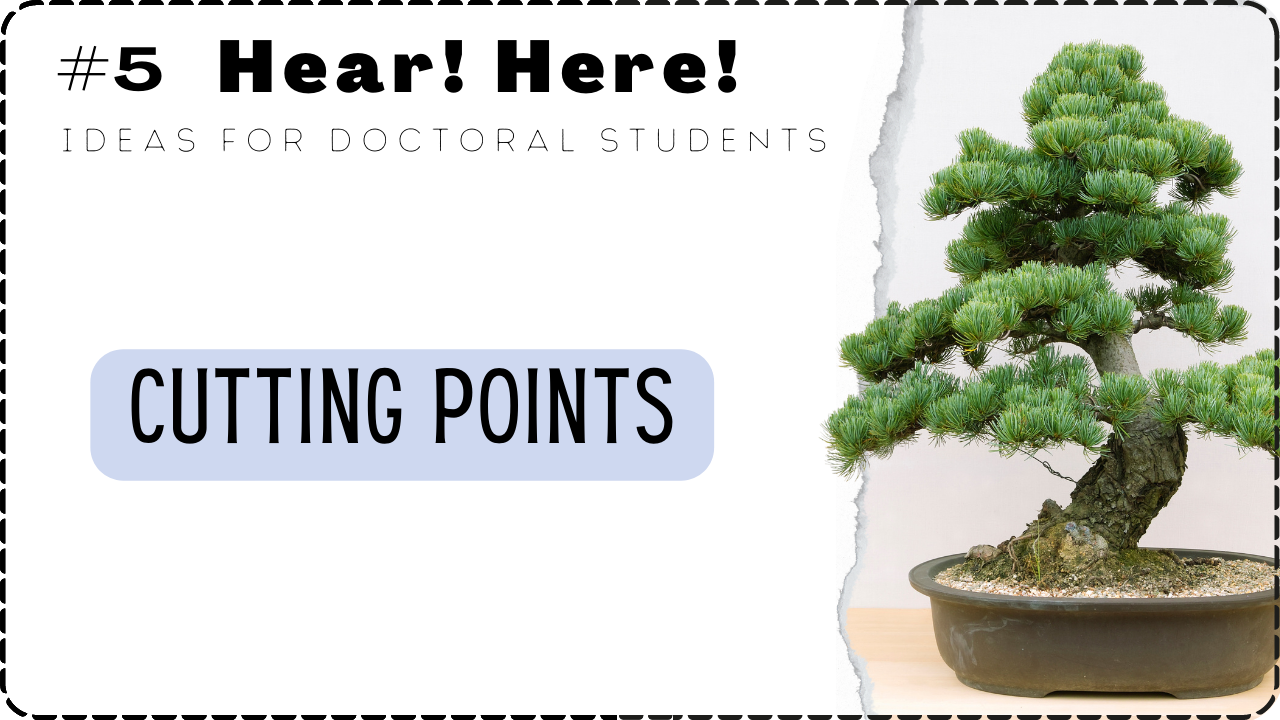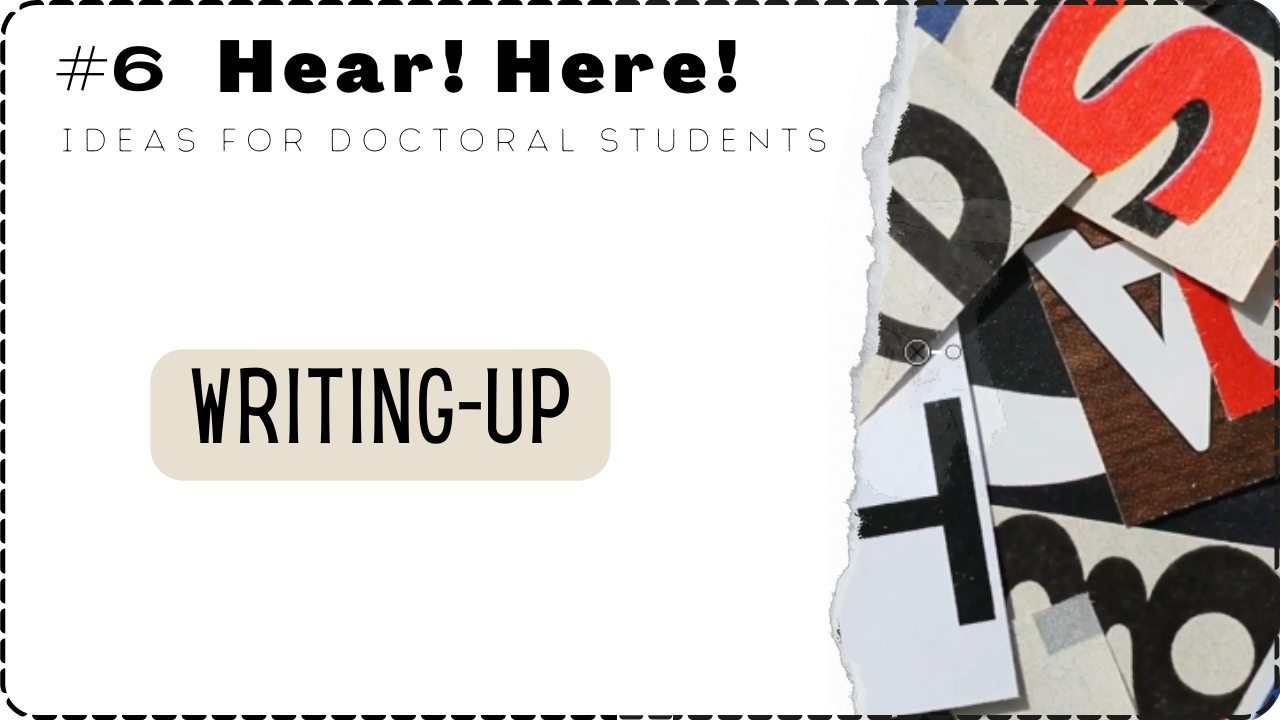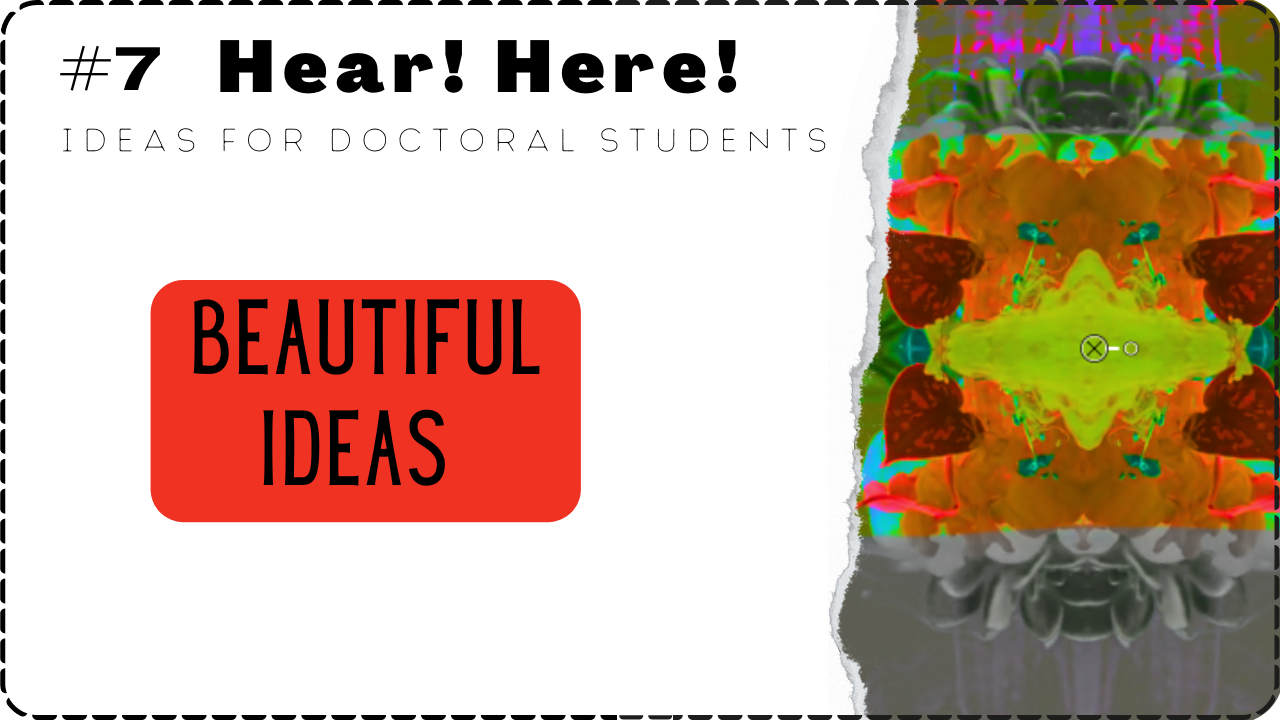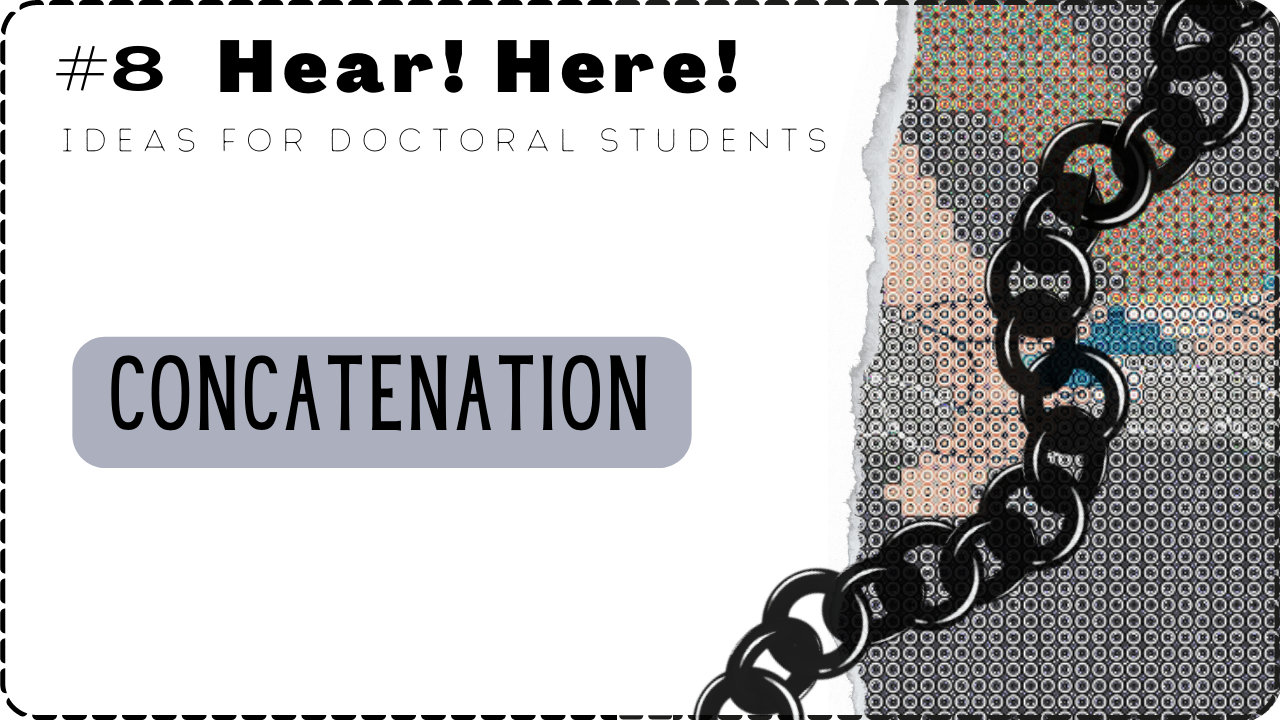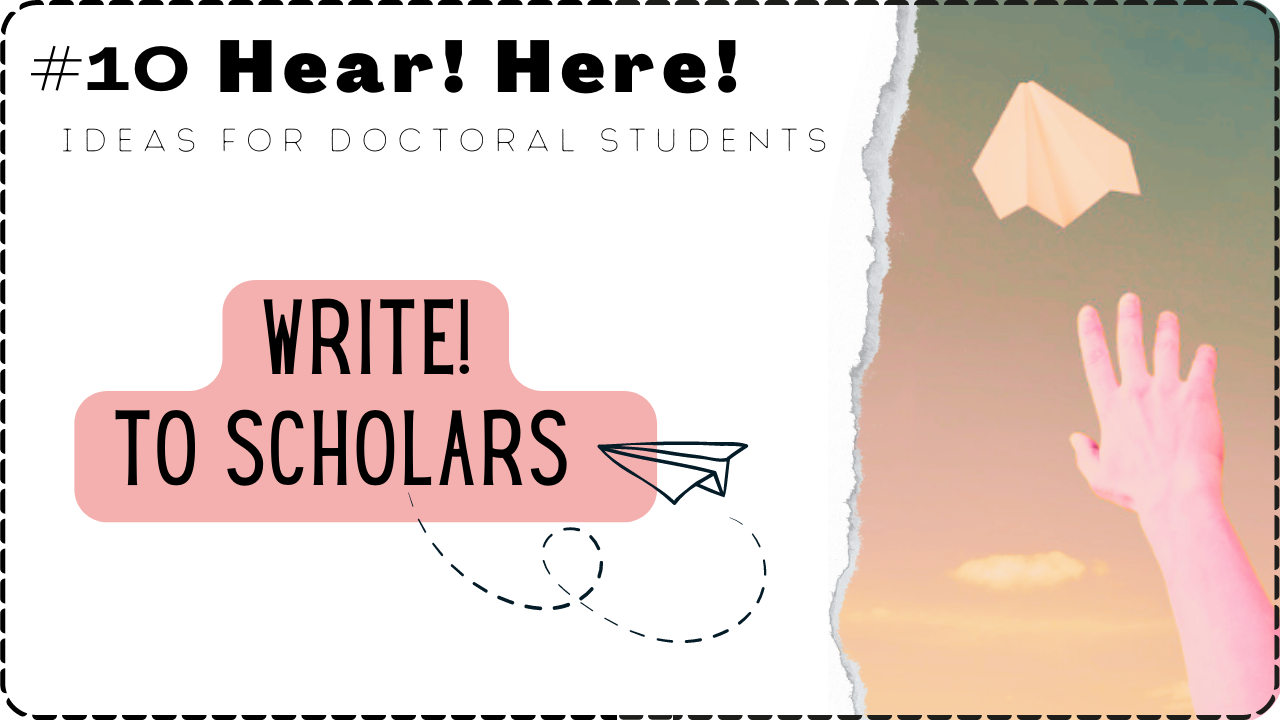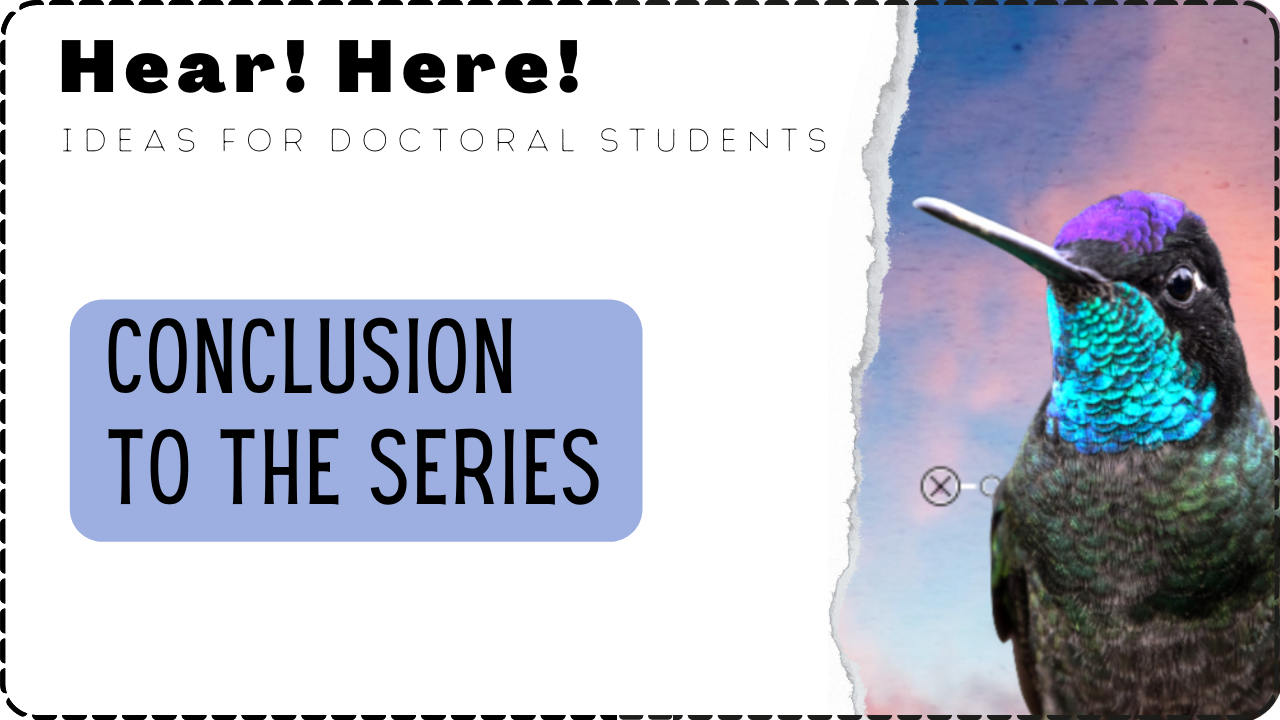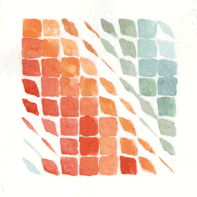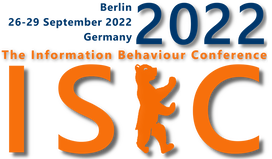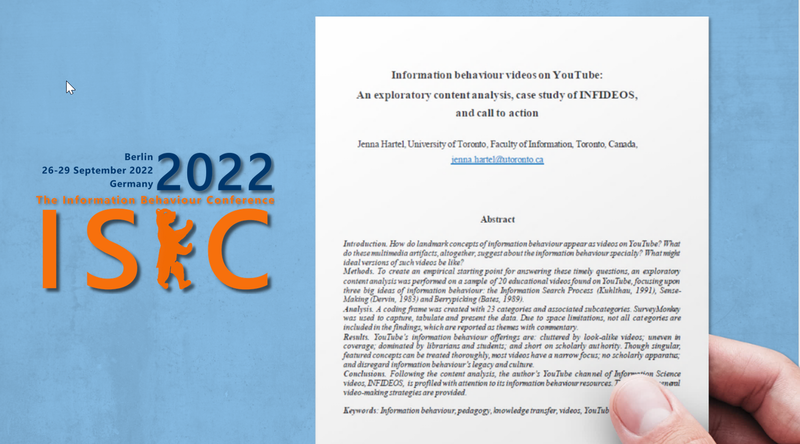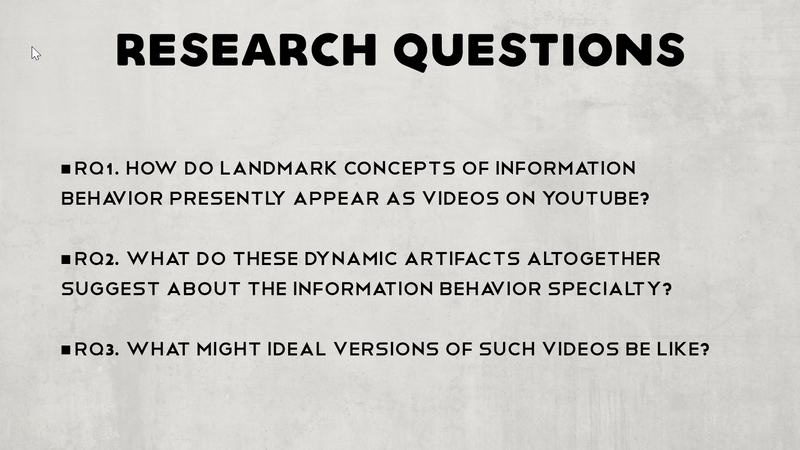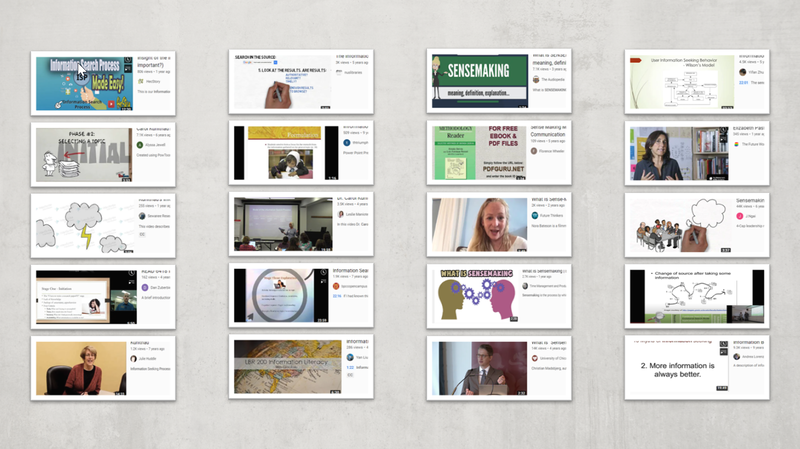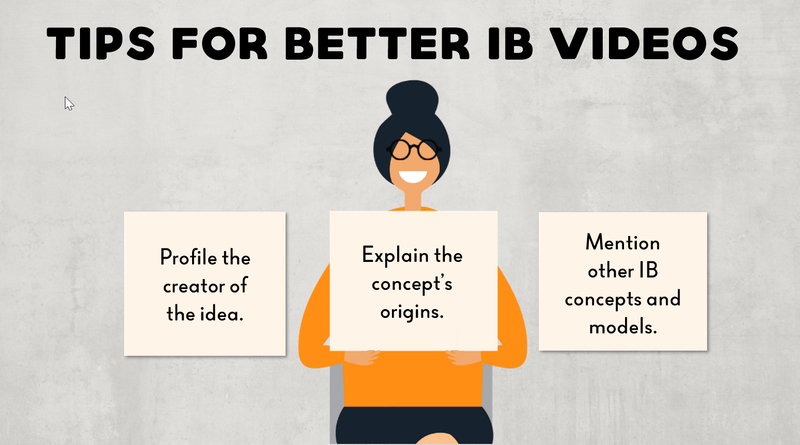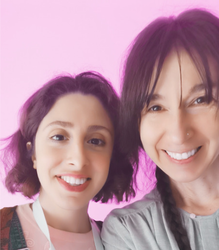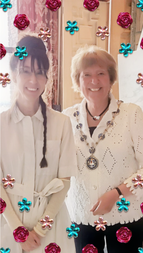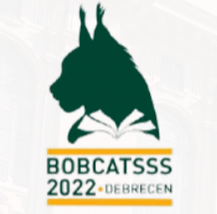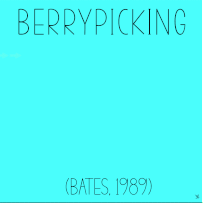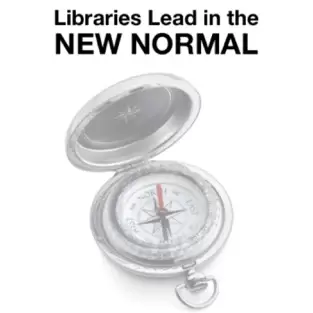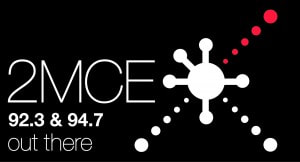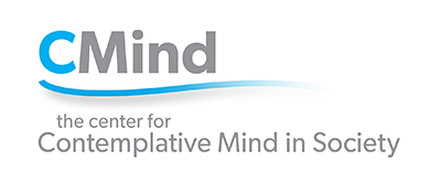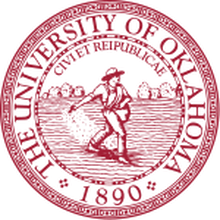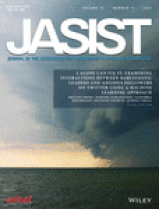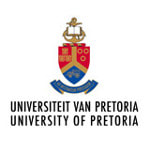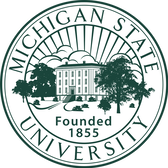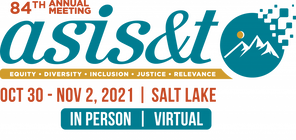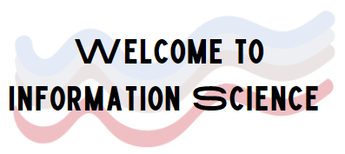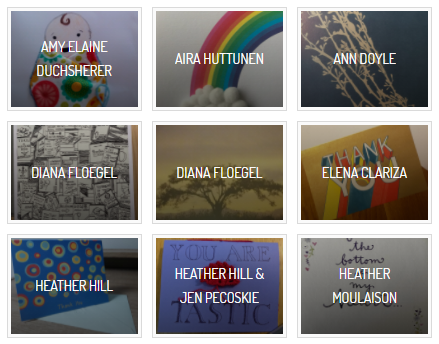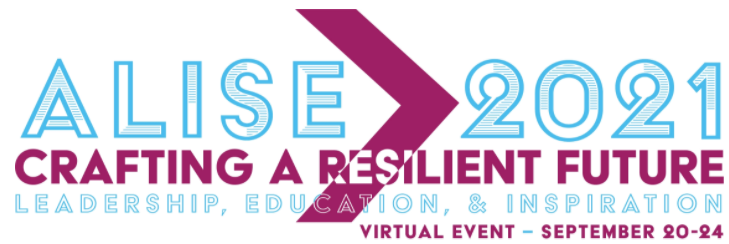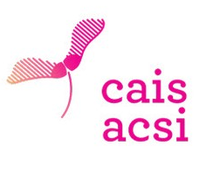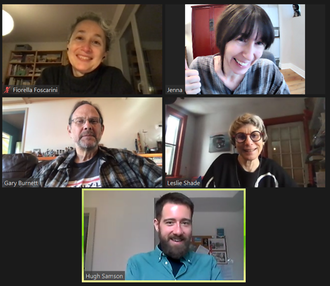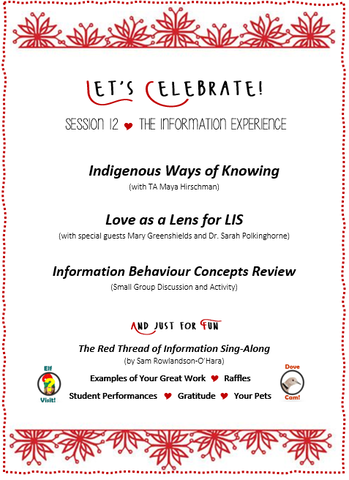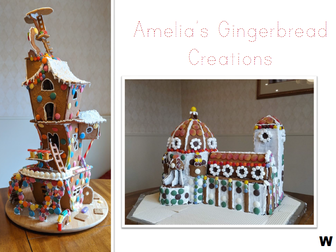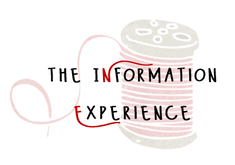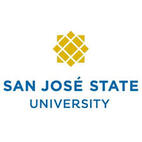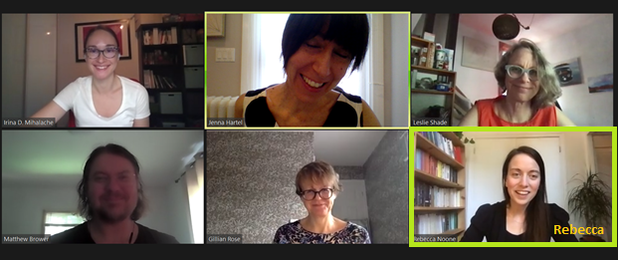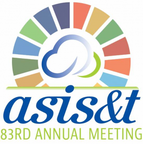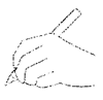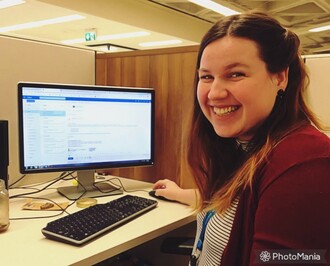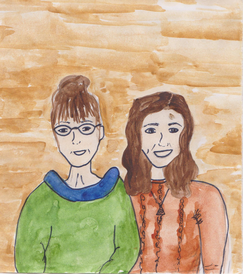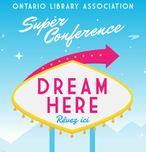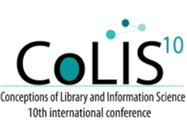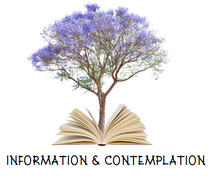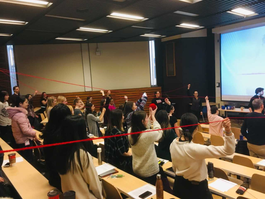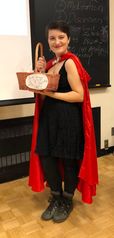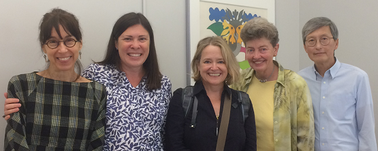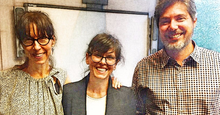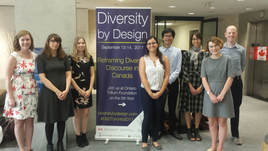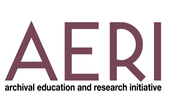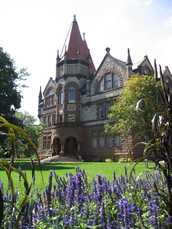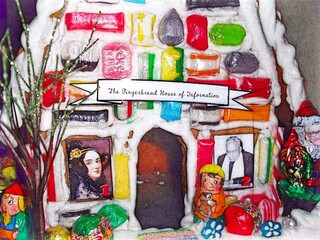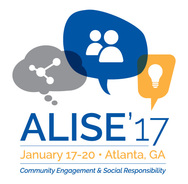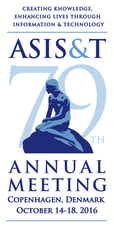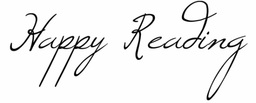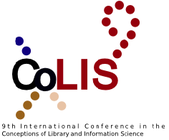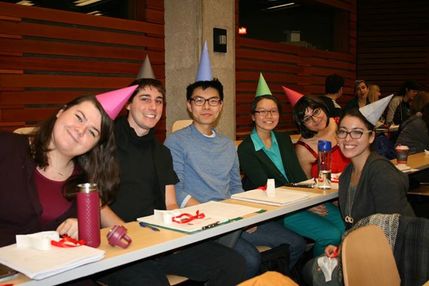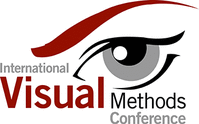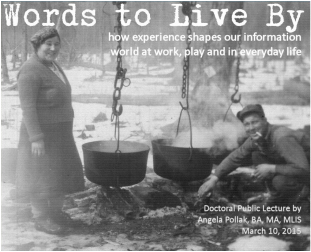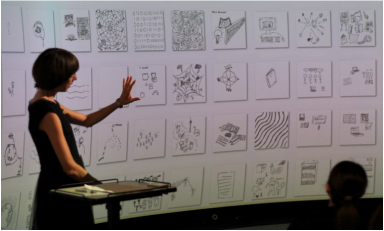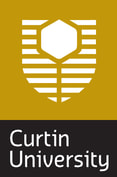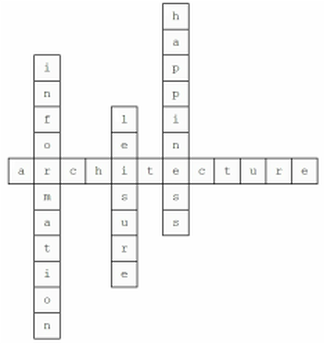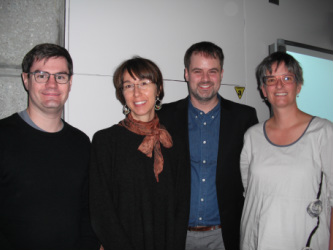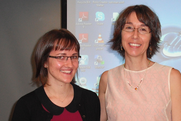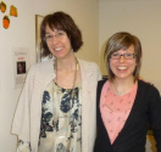This NEWS page contains selected happenings in my teaching and research.
It was last updated on July 26, 2024.
coming in january 2025: a new information Workshop on balloon-animal twisting
|
I am very excited to be offering a new workshop course (6-weeks), Twisting Balloon Animals. Across a lifetime of formal and self-directed learning, the most valuable capability I have gained is twisting balloon animals, which are shared with children as a volunteer in public settings. Twisted balloon animals have the potential to generate concentric, centrifugal waves of goodwill and joy, starting inside myself, and touching the child-recipient, their chaperones, curious observers, and the host institution. The cost-benefit ratio of this craft are spectacular. I can think of no easier, cheaper, faster, and more enjoyable way to make a small yet immediate and lingering positive impact on the world. I believe that new channels for learning to twist balloon animals are warranted, and that it fits perfectly into Library and Information Science values, education, and practice.
|
WHAT IS A BALLOON ANIMAL? |
WORKSHOP DESCRIPTION
Balloon animal twisting is an embodied information practice that involves the sensory-motor system of a twister in complex forms of eye-hand coordination and proprioception (awareness of the position and movement of the body). When done by an adult twister with a child as the recipient, it can be enacted in a spirit of child-centered learning about animals that boosts the young person’s confidence, critical thinking, and creativity. Students of this Workshop will master a menagerie of balloon animal forms; gain necessary, concomitant social intelligences for their production in an educational, microsocial context; and ultimately grasp the potential of balloon-animal twisting to fortify information institutions and the public good. Given the Workshop’s home within a Master of Information program, balloon-animal twisting will be approached via the aforementioned theoretical frameworks of embodied information practice and child-centered learning; and, it will be further illuminated through the timely lenses of the multispecies movement, the Serious Leisure Perspective, and artistic activism. Major assignments across the semester will spark each student to: A.) Discover, material-ize, and inhabit a unique balloon twisting identity; B.) Co-design a balloon-animal twisting program that aligns with Toronto Public Library’s strategies for childhood information literacy; and, C.) Practice twisting balloon animals at a gathering of family and friends and then reflect upon outcomes. Beyond its walls and enrollment, this Workshop aims to diversify the Faculty of Information’s curriculum, through its unconventional nexus of a whimsical craft that can likewise be personally, socially, and informationally meaningful.
congratulations to Dr. rebecca noone, author of Location Awareness in the Age of Google Maps
|
I had the great pleasure of supervising Dr. Rebecca Noone (PhD, 2020) at the Faculty of Information (Toronto). She completed an amazing, arts-based dissertation of street-level wayfinding and map-making (with fieldwork done in Toronto, London, Amsterdam, and New York). Rebecca's dissertation has been parlayed into a book, Location Awareness in the Age of Google Maps, published this week by Taylor and Francis. You can learn more about it (and get a copy!) here. As a doctoral student, Rebecca was a stellar contributor to the iSquare Research Program. We had many great learning adventures together. Dr. Noone is now a Lecturer in Information Studies at the University of Glasgow, Scotland.
|

Has anyone asked you for directions lately? How do people deal with street-level wayfinding in the age of Google Maps? Has our "location awareness" changed as a result of such technologies? Dr. Rebecca Noone, pictured, answers these questions—critically and creatively—in her new book.
Congratulations, Rebecca!
|
New video series: information science workout
"Your body can be your teacher!"
|
|
This July I published the video series Information Science Workout. It invites viewers to learn about Information Science in novel physical ways. For the past few years I have been experimenting with such approaches in my classrooms. The series shares these teaching strategies worldwide, via multimedia. Check out the Introduction to the Series (at left) and the episode thumbnails, below.
Each episode begins with a question or idea pertinent to Information Science. Then, an answer is demonstrated through simple positions and movements of the body. Viewers are invited to follow along, through various motions. Along the way, your imagination and voices are enlisted, too. These lessons are meant for students to do together, in class (but can be done anywhere). Most activities begin in a standing position, but are possible while seated, as well. |
the information seeking in context (ISIC) conference (august 26-29, 2024, Aalborg, Denmark)
See the conference website or a digital library of all the conference proceedings over the decades, here.
ISIC meets every two years and brings together scholars and students in the specialty of information behaviour. The 2024 gathering will occur August 26-29 at Aalborg University in Aalborg, Denmark. I am on the ISIC Program Committee and will be co-chairing (with Isto Huvila) the Doctoral Colloquium that meets on the first day (Monday, August 26th). I am also excited to host a separate workshop on the morning of Thursday, August 29: BATES-ORAMA! - An Exuberant and Embodied Exploration of the Ideas of Marcia J. Bates. Additional details for this workshop are below.
|
This ISIC Workshop, BATES-ORAMA, takes a deep dive into the ideas of Marcia J. Bates (2016a, 2016b, 2016c). It surveys, celebrates, and problematizes her seminal contributions to the ISIC community (Bates, 2002); the specialty of Information Behavior (2016b); and Information Science overall (Bates, 2016a, 2022). The session is designed for students and scholars who wish to fortify their understanding of these domains through the lens of one particularly significant and creative contributor. The Workshop responds to Howard D. White’s still-relevant call, in “Scientists-Poets Wanted,” for more synthesis of existing claims, rather than initiating new research claims (White, 1999). At the Workshop, four themes will be explored in a concatenated (that is, linked and cumulative) manner, namely: Bates’ Technical Acumen, Information Behavior in Context, Definitions of Information, and A Vision for Information Science. Limitations of Bates’ visions within these themes will also be recognized. Dr. Jenna Hartel, a student of and commentator on Bates’ work (Hartel, 2013, 2021a, 2021b, 2021c, 2022) will lead the session using original multimedia, interactive, and embodied pedagogical strategies (e.g. we will move our bodies in Bates-ian ways and indeed we will go berrypicking together). BATES-ORAMA will include a panel of scholars who share their insights on Bates and her impacts. Multiple opportunities will be provided for attendees to make Bates’ concepts their own, and to share their discoveries with peers. [You can find the references, here.]
|
"We are always looking for the red thread of information in the social texture of people's lives." (Bates, 1999)
87th Annual Meeting of the Association for Information Science and Technology (ASIS&T)
October 25 - 29 in Calgary, Canada
Putting People First: Responsibility, Reciprocity, and Care in Information Research and Practice
This October (2024), the ASIS&T Annual Meeting is in Canada, hooray! ASIS&T is my favorite professional organization. I will be attending and participating in four sessions:
- Conceptions of Everyday Life in Information Science (sponsored by SIG-USE) with Jenna Hartel, University of Toronto, Canada; Ana Ndumu, University of Maryland, USA; Melissa Ocepek, University of Illinois at Urbana-Champagne, USA; Ian Ruthven, University of Strathclyde, UK
- Centering Care and Kindness: Mentoring Ph.D. Students in Tumultuous Times with Jenny Bossallar, University of Missouri, USA; Deborah Charbonneau, Wayne State University, USA; Keren Dali, University of Denver, USA; Jenna Hartel, University of Toronto, Canada; Charles Senteio, Rutgers, the State University of New Jersey, USA
- Ethnographic Stories in Information Science with Kaitlin Montague, Rutgers, the State University of New Jersey, USA; Jenna Hartel, University of Toronto, Canada; Devon Greyson, University of British Columbia, Canada; Ina Fourie, University of Pretoria, South Africa; Pelle Tracey, University of Michigan, USA
- The Evolving Role of Information Professionals in Navigating Places, Spaces, and Nurturing New Discourses in the In-Between with Anika Meyer, Marlene Holmner, Ina Fourie, University of Pretoria, South Africa; Abebe Rorissa, University of Tennessee,-Knoxville, USA; Daniel Alemneh, University of North Texas, USA; Jenna Hartel, University of Toronto, Canada
the cais 2024 annual meeting, june 4 - 7 (online)
2024 is a leap year and the CAIS conference theme is "Leaps and Stumbles."
The Canadian Association for Information Science / l’Association canadienne des sciences de l’information (CAIS/ACSI) hosted its 52nd Annual Conference, June 4-7, 2024. For the fifth year in a row, the conference was free and open to all, online. I participated in two panels at CAIS, described below.
PSYCHEDELIC INFORMATION THEORY: A SYSTEMATIC EXPLORATION OF INFORMATION DURING ALTERED CONSCIOUSNESS (Panel)
(with Jenna Hartel, James Kent, Tim Gorichanaz, and Keith Munro)
|
Inspired by the conference theme, Leaps and Stumbles, our panel takes a quantum leap beyond conventional notions of information. We provide a systematic consideration of information phenomena during altered states of consciousness generated by ingestion of “magic mushrooms.” Our exploration is anchored in the book, Psychedelic Information Theory: Shamanism in the Age of Reason (Kent, 2010) and is situated within the information behaviour literature. The session will be systematic for its explicit and balanced treatment of “psychedelic information” on four levels, namely: personal, microsocial, macrosocial, and the “meta” perspective of Information Science (Bates, 1999).
|
WRITING PRACTICE IN LIS: CONTEMPLATIVE, CRITICAL, ETHNOGRAPHIC, AND INSTITUTIONAL VISIONS (PANEL)
(with Hugh Samson, Jenna Hartel, Bharat Mehra, Mary Broussard, and David Levy)
|
Whether leaping or stumbling, writing is the final and arguably most difficult and important stage of the research process. Our evolving literature review reveals, however, that writing receives the least attention as a practice within our field’s methodological armamentarium. Accordingly, our panel engages the CAIS community in a constructive and serious discussion concerning writing in Library and Information Science. An overview of the literature will be offered accompanied by four presentations by writing strategists featuring distinct contemplative, critical, ethnographic, and institutional visions. The panel will conclude with questions, a discussion, and the brainstorming of potential positive interventions in writing practice.
|
A heart-full conclusion to INF1005 - Information Workshop on Information and Contemplation
|
The Final Assignment in INF1005 - Information Workshop on Information and Contemplation entails a Creative Contemplative Practice. In an unusual twist, it is custom-designed and implemented by students of the course. (Hence, you can Scroll below to see other examples from prior offerings, such as an origami butterfly sculpture.) This semester, the last class convened on Valentine's Day. In that spirit, everyone made a "Valentine to the Course," as follows. Beforehand, a message was written about course-related discoveries. Then, in class the missives were transformed into Valentines using colored paper, stickers, stamps, and more. At the end, our Valentines were placed in a faux mailbox. Yes, this Final Assignment unabashedly mirrored the fun Valentine's Day activities from elementary school! Many beautiful and thoughtful artworks were created, and a wonderful warm energy was shared throughout, bringing the Workshop to a perfect conclusion.
|
Thanks to the great student team who developed and hosted the session (Sophia, Ben, William, Michelle, and Ankush), and kudos to all participants in the Workshop. A few example Valentines are shown in the gallery, below.
NEW VIDEO: turns IN INFORMATION SCIENCE
In mid-April of 2024 I published a new video, Turns in Information Science. It is based upon the paper Turn, Turn Turn that was presented at the 2019 Conceptions of Library and Information Science conference. While watching the video, you may follow along with an 11" by 17" map of the seven featured turns, available, here. At a brisk 13 minutes in length, Turns in Information Science replaces a much longer, narrated PowerPoint from 2019 and it is better-paced for student attention. Also, the new version is improved by featuring a Critical Turn. Below is the hyperlinked Table of Contents:
|
|
00:00 — Welcome to Information Science
00:43 — What Is a Turn? 01:35 — A Starting Point: The Physical Paradigm 02:05 — The Cognitive Turn 03:28 — The Affective Turn 04:21 — The Neo-Documentary Turn 06:00 — The Socio-Cognitive Turn 07:32 — The Everyday Life Turn 08:33 — The Critical Turn 09:34 — The Embodied Turn 10:30 — Review, and Relations Between Turns 11:43 — Are Turns "Good" or "Bad" for Information Science? 12:29 — A Personal Note 12:39 — P. S. What Turns are Next? 12:44 — Thanks for Watching and Conclusion |
lovely illustrations by janine dukelow
|
In my Workshop, Information and Contemplation, students submit weekly Reading Notes filled with their reflections on the assignmed materials and themes. They may express themselves in any format. Janine Dukelow made some beautiful illustrations, at right. Janine is in her first year of the Master of Information program, in the Culture and Technology stream. She's currently on an education leave from the Toronto Public Library and will return to start working as a librarian in 2025. Janine plans on organizing public programming that leverages her interest and education in arts and literature. I really wanted to share Janine's creativity with the world!
|
|
congratulations to Laura Lamont on a great master's thesis!
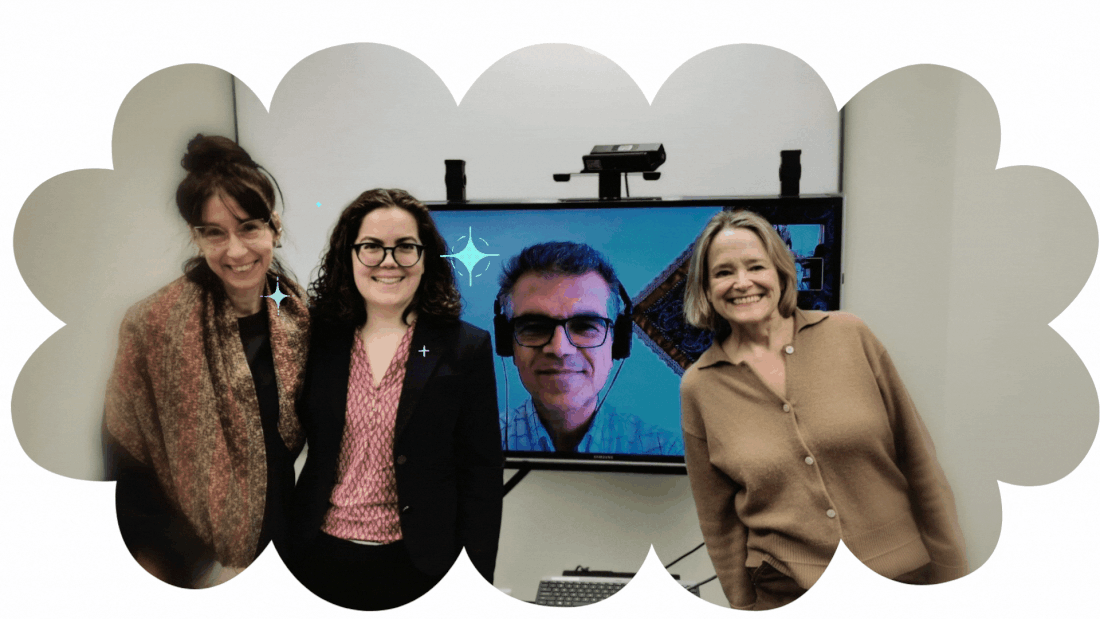
Here's Laura celebrating after the Final Oral Examination. Pictured from left to right: Dr. Jenna Hartel (supervisor), Laura Lamont , Dr. Yazdan Mansourian of Charles Sturt University (external evaluator) and Dr. Siobhan Stevenson (committee member). Not pictured is Dr. Colin Furness, who chaired the session.
|
On Wednesday, March 20, 2024, Laura Lamont successfully defended a great master's thesis, entitled Information Outdoors: Exploring the Information Behaviour of Hobby Campers. Laura's research fills a gap in the information behahavior literature, which has not investigated camping heretofore. Her study approaches camping through the lens of the Serious Leisure Perspective and involved a survey, interviews with campers, fieldnotes, and observation of a winter camping trip. Laura was honored to have Dr. Yazdan Mansourian, a senior lecturer at Charles Sturt University and an expert on serious leisure information, as an external evaluator. In his summary report, Dr. Mansourian wrote, "the thesis introduces fresh conceptualizations such as embodied information and embedded information within the camping context. These conceptual explorations deepen our understanding of how information is experienced by campers in their leisure pursuits." Committee member Dr. Siobhan Stevenson was also an important supporter of the project, and provided the expert perspective of a person who has explored Canada's wilderness on foot and by canoe. Dr. Colin Furness was a wonderful chair for the session. Laura's thesis was passed without needing any revisions, a real accomplishment. Soon it will be available at the University of Toronto's T-Space archive, here.
|
|
Information Outdoors: Exploring the Information Behaviour of Hobby Campers [ABSTRACT]
This thesis is an exploratory, ethnographic study of the information behaviour of participants in the camping hobby. Employing a demographic questionnaire, semi-structured interviews, and participant observation with fieldnotes of ten hobby campers who primarily camp in Ontario, the central research question is “What is the nature of information in the camping hobby?” To answer this question, this thesis offers rich description of information resources used by hobby campers. The findings further explore the nature of information in its social, documentary, embodied, and embedded forms. These forms exist in three distinct stages: while planning a camping trip, during a camping trip, and following a camping trip. Using the researcher’s own experiences as a camper to help guide the research design and research question, this thesis introduces the camping hobby to information behaviour studies and offers new insights into serious leisure, embodied information, the camping hobby social world, and information behaviour. |
|
"Ethnographer's Brouhaha" in INF2330 - Information Ethnography
|
For Winter semester of 2024, I am teaching INF2330 - Information Ethnography. In this course, students from all concentrations at the Faculty of Information learn to conduct ethnographic research on a topic and population of their choice. So many great studies are now underway! Session 9 of the semester was an "Ethnographer's Brouhaha," that is, a "noisy gathering" of ethnographers (in academic parlance, it is a "panel"). Five ethnographers from Information Science were virtual guests in the course, and talked about their ethnographic research: Hailey Siracky, Dr. Keith Munro, Nenna Orie Chuku, Dr. Niloofar Solhjoo, and Kaitlin Montague (shown and profiled at right). The range of studies was awesome (from pets to cultural heritage adventures)! I am very grateful that these mostly early-career scholars agreed to share their work with my students, and I am certain they were an inspiration. Students of the course provided introductions, questions, comments, and words of gratitude.
|
congratulations to dr. keith munro, university of strathclyde, Glasgow, Scotland
|
On February 2, 2024, Keith Munro successfully defended his doctoral dissertation, Every Step Is Moving Me Up – An Information Behaviour Study of Hikers on the West Highland Way. In this very innovative, ethnography of information behaviour, Keith (now Dr. Munro) explored how walking a cultural heritage route, the West Highland Way, generates embodied information and contributes to well-being. The research employed innovative methods, such as the use of the natural sounds along the West Highland Way, to stir the memories of informants. (You can hear the real soundtrack, here.) The research tapped concepts such as the Serious Leisure Perspective, and Anders Hektor's framework of information activities, among others. The great Supervisors of the study were Drs. Perla Innocenti (who studies information behaviour along religious pilgrimages) and Mark Dunlop. At the oral presentation and defense (called a "viva" in Scotland), Dr. Ian Ruthven was an internal examiner and I was the external examiner. Dr. Milena Dobreva served as the gracious chair and kept everything organized.
|
In a funny announcement to the Strathclyde community, following the viva, Supervisor Dr. Innocenti used every hiking pun available to say, "...Keith strolled through the presentation...it was a wanderful examination..." And, "Dr. Munro has many publications on the road ahead..." I, am really looking forward to seeing Keith's insights into embodied information behaviour published in the Information Science literature. I have also invited him to be a guest speaker in my course, Information Ethnography. What is more, I intend to feature his work in my future videos.
additional cool imagery from the research
Here's a glimpse of the West Highland Way and some of the research sites of Dr. Munro (pictured). Photo credits, Keith Munro.
the centre for research innovation and support's panel: "graphic facilitation"
|
In mid-January, I had the pleasure of moderating an online panel organized by the Centre for Research Innovation and Support at the University of Toronto, for their Drawing Across the Disciplines series. The series focuses upon knowledge translation and mobilization in a variety of media and formats, and this session was about Graphic Facilitation. The panelists are listed, at right; each had an amazing story to tell about employing graphic facilitation in a community research context. You can learn more about graphic facilitation (also called graphic recording), in this Frequently Asked Questions page from Fuselight Creative. The panel was video-recorded and I'll post the link for watching, once it is available.
|
Below is an example of graphic facilitation, which captured the key ideas of the panel. The drawing is by Dr. Danielle Taschereau Mamers, Managing Director of CDHI at the University of Toronto.
NEW VIDEO: The Ethnography of infrastructure
|
|
I just published a new video. This 11th episode of my What Makes This Paper Great? series features "The Ethnography of Infrastructure" by the multidisciplinary scholar, Susan Leigh Star. A detailed and hyperlinked Table of Contents Appears below. After a biography of Star, the video sticks close to the paper, except for my own playful demonstration of an ethnography of infrastructure within a hobby, at the end. Of note, I had the pleasure of meeting Professor Star around 2002, while a doctoral student at the University of California, Los Angeles; she gave a colloquium presentation on work-in-progress. (Thank you, Dr. Rich Gazan, for inviting me!) I was struck by her kindness and humility, as well as her eagerness to share ideas with a small group of doctoral students.
|
A DETAILED (AND HYPERLINKED) TABLE OF CONTENTS
|
00:00 — Welcome and Introduction to the Paper
00:30 — Table of Contents for the Video 00:49 — Biography of Susan Leigh Star 01:19 — Boundary Objects 01:31— "Sorting Things Out" with Geoffrey Bowker 01:36 — The Idea of Infrastructure 01:54 — Star's Motivating Questions 02:07 — Lived Experience, Technologies, and Silences 02:49 — Star's Death and Memorials 03:14 — The Special Issue of American Behavioral Scientist 03:34 — Methodological Challenges of Analyzing Virtual Societies 04:16 — A Bird''s-Eye View of the Paper |
04:25 — Two Opening Quotations
05:16 — The Celebrated Joke (Society of People Interested in Boring Things) 05:40 — Examples of Infrastructure 06:25 — "Study the Unstudied" 06:48 — Defining Infrastructure (Nine Properties of Infrastructure) 08:40 — Infrastructure and Methods (A Research Methods Toolkit) 09:34 — Highlights of the First Half of the Paper 09:45 — Three Additional Methodological Insights 10:35 — Demonstrating The Ethnography of Infrastructure: The Messier List 12:35 — An Appreciative Critique 13:52 — What Makes This Paper Great? 14:44 — Conclusion: Please Like! Comment! Share! Subscribe to INFIDEOS |
Excited for winter teaching 2024 & happy new year!
congratulations to all students of INF1323: The Information Experience (& a super example!)
|
The semester has ended for all participants in INF1323: The Information Experience. The course introduced fundamentals of Information Science and also covered Information Behaviour. As the main assignment, students of the course learned to conduct an original information behaviour research using Diane Sonnenwald's Information Horizon Interview, a semi-structured interview with diagrammatic elicitation (see my short educational video on the IHI, here). Students wrote-up their discoveries in a Final Report and also, working in small groups (called "Thematic Clusters"), they shared the research highlights in Final Performances, during the last two weeks of the course.
|
|
|
All the Final Performances (or Videos) across the course were creative, informative, and entertaining accounts of original information behaviour research. I wish there was time and space to profile every one! Congratulations all around! Here, I'll provide a glimpse of one especially imaginative production. It was made by a group that shared a focus on "Everyday Life Information Behaviour." As an organizing and inspiring concept for their 15-minute Final Performance, they used a famous American movie, The Wizard of Oz. With the Wizard of Oz as a backdrop, they shared discoveries related to information behaviour within travel, reading, cooking, and choosing a name. The slideshow, at left, displays some of their findings as well as the information horizon maps drawn by their informants.
|
The costumes for this Final Peformance were simple and charming. Harpal Sogi (Scarecrow) is an artist and designer who put extra care and beauty into his outfit, which included a handpainted mask. Here is a closer look, at right. I am smiling to end the semester with a hug from Harpal/Scarecrow. |
New video series launched on december 11: an archipelago of information science
|
|
My new video series, An Archipelago of Information Science, explores ideas on the frontier of Information Science. The first episode, an Introduction to the Series, appears at left. Altogether, the collection of seven videos enact the metaphor of an island chain — an archipelago — of incipient concepts existing still somewhat offshore, but within sight, of the Information Science mainland. (The mainland is our literature where many well-established tenets reside.) Viewers are taken on an archipelago adventure, following a tour guide who is my own seagull-avatar. There are several destinations, namely: Embodied Information, Contemplation, a Multispecies Perspective, Love, and Psychedelic Information Theory. The video thumbnails for these “islands” are shown below. Each stop on the journey is a succint and fast-paced primer wherein the featured concept is defined and situated within the history and literature of Information Science. The series is ideal for people who are curious about emergent concepts and new directions in Information Science.
|
|
A Conclusion to the Series provides succinct highlights and thought questions from each island, in the form of postcard messages to students. A free souvenir map that summarizes the Archipelago is available, here. The description box, below each video, contains selected resources on the topic from the Information Science literature.
|
wow! great "cybersecurity" study and poster at the annual meeting of asis&T (october 28-31, london, england)
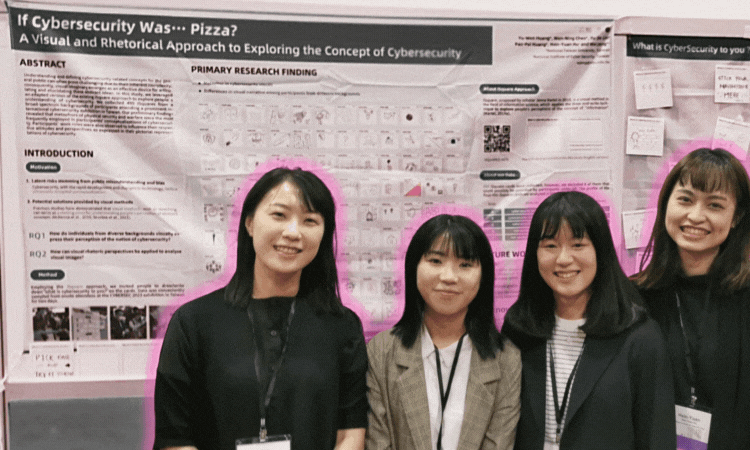
PIctured from left to right: Dr. Wei Jeng, Wen-Ning, Yu-Wen, and Hsin-Yuan. A complete list of authors of the poster is: Yu-Wen Huang, Wen-Ning Chen, Yu-Jie Lin, and Pao-Pei Huang, National Taiwan University, Taiwan; Hsin-Yuan Hu, National Institute of Cyber Security, Taiwan; Wei Jeng, National Taiwan University and National Institute of Cyber Security, Taiwan.
|
At the 2023 ASIS&T Annual Meeting, I met wonderful students of Professor Wei Jeng, from National Taiwan, pictured at left. They conducted innovative research using the draw-and-write technique, which entails collecting original drawings of a concept. In this study, the concept in question was "cybersecurity," and hundreds of illustrations were solicited from different populations, including both citizens and cybersecurity experts. While there was an obvious visual motif involving locks, the images were otherwise wide-ranging. The research team reported their results at ASIS&T in the poster, Cybersecurity Was… Pizza? A Visual and Rhetorical Approach to Exploring the Concept of Cybersecurity, which won 3rd place in the very competitive Best Poster Competition.
|
A judge of the poster competition, Dr. June Abbas of the University of Oklahoma and editor of Library and Information Science Research, said that the poster was "beautifully designed" and all judges loved the intriguing title that surprisingly linked cybersecurity and pizza. The poster was also interactive, for viewers could contribute their own drawings in real time, which appear on the poster's right side. Congratulations to Dr. Wei Jeng and her research team, which included students at all levels. It was great to meet such ambitious and creative newcomers to Information Science, and I am excited for their bright futures. To learn more about the draw-and-write technique, see my iSquare Research Program or my short video about the method in the series, Visual Research Methods.
rEPORT FROM THE wRITING-uP rESEARCH AS tHEMATIC nARRATIVE WORKSHOP AT THE aNNUAL MEETING OF asis&t (oCTOBER 28-31, lONDON, eNGLAND)
|
We had a blast at the Writing-Up Research as Thematic Narrative Workshop! And our participants also reported tremendous benefits and discoveries, about the writing process. Attendees learned to construct a thematic narrative, that is, a gradually unfolding descriptive account, based upon a rhetorical structure called an "excerpt-commentary unit" or ECU. At right, here we are (Jenna Hartel, Keith Munro, Niloo Solhjoo, and Hugh Samson) as a human ECU! Yes, we actually wore colored bandanas to represent, embody, and enact the four different "voices" that complicate social scientific writing. The Workshop featured many videos from my multimedia series on the thematic narrative (here), and also included worksheets and discussions. At the end of the session, participants triumphantly re-wrote Marcia Bates' famous berrypicking (Bates, 1989) article in the style of a thematic narrative with ECUs. Post-ASIS&T, we will be continuing our effort to elevate writing across Information Science. Stay tuned for future events and publications!
|
Below is a summary of major concepts from the workshop, namely the "Excerpt-commentary unit" (ECU) and its four elements. Then Look above (right) to see how the parts of the ecu match our colored scarves. At the Workshop, we embodied and enacted the distinct voices and rhetorical strategies of the ECU! I saltute Keith, Niloo, and hugh for teaching in such a performative way. We were surprised and delighted that each of our personalities seemed to naturally fit one of the ECU's components.
report from the visual research methods Round-Up Workshop AT THE ANNUAL MEETING OF ASIS&T (OCTOBER 28-31, LONDON, ENGLAND)
More than a dozen people participated in the Visual Research Methods Round-Up, a half-day Workshop. This event was organized by Drs. Iulian Vamanu, Judith Van Alstyne, Rongqian Ma, Sophie Rutter, Sheila Webber and myself (Jenna Hartel). The Workshop also featured a panel of leading edge perspectives from Drs. Devon Greyson, Sheila Webber, and Rebecca Noone, as well as Pecha Kucha presentations by attendees. In a great surprise, Dr. Diane Sonnenwald, originator of the Information Horizon Interview, participated in the session.
|
It was thrilling to see all the interest and energy surrounding visual approaches to information research, especially from doctoral students. The Workshop started with my review of foundational concepts associated with visual methodologies (here are the super-sized worksheets). This portion of the session utilized the videos from the series, Visual Research Methods (linked below, right). Then, contemporary case studies were offered through a panel and Pecha Kuchas. The Workshop concluded with a group brainstorming activity (via the Liberating Structure, Panarchy) to articulate and fortify the visual research methods frontier. The latter portion generated the artifact, shown below (with stick-up notes), which includes ideas such as a generous yearly award for the best visual methods research project; a practical bibliography of sources; and an ARIS&T chapter on visual research methods in Information Science. At the Workshop, it was lovely to see Dr. Rebecca Noone, my former supervisee, shown below (in flowers). The future of visual research methods is bright! Going forward, I look forward to participating in the community seeded at the Workshop.
|
multispecies information science at the annual meeting of ASIS&T (october 28-31, london, england)
|
This panel was great. Niloo (soon to be Dr. Solhjoo) provided an excellent introduction to the topic. The panelists, Steve Fuller, Christopher Lueg, and Dirk van der Linden (plus myself) offered illuminating perspectives. Keep your eyes open for Niloo's future publications in the Information Science literature on this topic. You might also check out my new video on the Multispecies Perspective, here (it's an episode in the series, An Archipelago of Information Science).
|
Report from the European Conference on Information Literacy (Krakow, Poland, Oct. 9-12, 2023)
|
The European Conference on Information Literacy (ECIL) was awesome! It was held in Krakow, Poland, an ancient and beautiful city with the second oldest university in Europe (Jangiellonian University). What is more, Krakow hosts the largest medieval market square, and a gorgeous river. This conference was special for many reasons.
|
At plenary, panel, and paper sessions I learned more about information literacy, a discipline committed to teaching people to access and responsibly navigate the information universe. In particular, I was amazed by innovations in visualizing the student search process; the documentary properties of “scientificness;” the information behaviour of retired faculty; the relationship between information literacy and game literacy, and a funky classroom device that blends digital and print realities. (Dear Students in Toronto, Stay tuned for the device in my own classrooms!) The impact of Artificial Intelligence and the role of librarians in that future was discussed with urgency and gravitas. You can see the complete, incredible program, here, to read more about these projects, and others. All attendees were so welcoming and friendly and I have warm memories to cherish. A big thanks to Monika Krakowska (who invited me), the Local Organizing Committee, the Program Committee, and the Standing Committee of ECIL. In my free time, I walked around the impressive market square, ate delicious Polish donuts, and discovered the Krakow artist and jewellry maker, Aga Gaj, whose work features birds like my pet doves. I am very grateful for the opportunity to participate in ECIL, and deliver the invited presentation, An Archipelago of Library and Information Science, described below. Here are visual highlights of from the conference:
My Invited Presentation at ECIL (see additional details about this conference, above)
|
It was great to be an invited speaker at the European Conference on Information Liberacy, this October in Krakow, Poland. The title of my presentation was An Archipelago of Library and Information Science. An abstract appears below and the first slide of the presentation is at right.
ABSTRACT. Professor Jenna Hartel loves to survey the landscape of ideas in Library and Information Science. To that end, over her career, she has employed metaphors, performance, and multimedia to take students, educators, scholars, and practitioners to new places of understanding in our field. Jenna will bring this same adventurous spirit to her invited talk at the 2023 European Conference on Information Literacy. This time, she guides the audience across a recently surfaced and linked island chain of ideas that extend from the Library and Information Science mainland. The trip explores information embodiment, contemplative practice, a multispecies perspective, love, and one additional (surprise!) destination. In an accessible manner, each conceptual islet will be defined simply, placed into historical context, and then related to research, pedagogy, and practice in Library and Information Science. Professor Hartel’s goal is to give all attendees an intriguing set of potentially uncharted notions to enliven conference conversations. There will be many souvenirs to take home! An avid video-maker and creator of the YouTube channel, INFIDEOS, the presentation will include a few original multimedia snippets on these topics.
|
An Archipelago of Library and Information Science
by Professor Jenna Hartel Faculty of Information, University of Toronto, Canada |
My presentation ended with souvenirs! One was a large (17" by 11") map of the Archipelago of Library ad Information Science. You are welcome to dowload a PDF version of the map, here.
Guest lecture at the Department of Information Science, University of Pretoria, S. Africa
|
On October 2, 2023, I presented a (Zoom) guest lecture to students in the Department of Information Science at the University of Pretoria, S. Africa. I was invited by the instructor, Naailah Parbhoo, with whom I share many interests. The topic was "Everyday Life, Leisure, and Hobby Information," one of my favorite topics! The course was INY714, which includes "individual and collaborative information behaviour; traditional and contemporary theories, models and practices of information behaviour; information retrieval and information organisation in a variety of contexts reflecting contemporary interest." The Faculty and students that attended the session were incredibly warm and welcoming. This is my fourth guest lecture to the Department and I look forward to more visits in the future.
|
Fall 2023 Teaching at the Faculty of Information
|
The Information Experience is a required course in the Library and Information Science concentration. It focuses upon information’s human dimension. Newcomers to Library and Information Science (and curious learners from other concentrations) will develop sharpened vision to discern “the red thread of information in the social texture of people’s lives” (Bates, 1999). To that end, INF1323 introduces information behaviour, the many ways in which human beings interact with information, in particular, the ways in which people seek and utilize information. First, students are introduced to foundational theories, models, and concepts of information and information behaviour. Next, these ideas are situated, and shown to have practical applications, within contexts of long-standing relevance to Library and Information Science. INF1323 has a focus on original research. Participants in the course are taught a qualitative method to conduct information behaviour research, and across the semester enact individual, small-scale, exploratory studies of information behaviour in a topic or population of choice. Overall, the meaning of the course title is twofold: students have their own novel experience of information, and they learn how to discern information-related experiences of others.
|
During Fall 2023, I am teaching INF1323: The Information Experience to 70 students on Monday morning and 70 students on Wednesday morning. |
Three cheers for Madelin Burt-D'agnillo's outstanding master's thesis!
On Tuesday, September 5, 2023 Madelin Burt-D'Agnillo defended a strong, original, and thoroughly creative master's thesis on the information associated with life coaching, from the client or "coachee's" perspective. This is a new topic and contribution for the information behaviour literature. Her empirical study applied the Information Horizon Interview technique (Sonnenwald, 2005) to reveal an extensive information environment used by coaches (more than 100 different resources). In an innovative stroke, Madelin collected Information Horizon Maps that documented, vividly, the information resources used by coachees in their coaching journey; then, she invited participant to distingish the information resources as documentary, social and embodied (which extends the IHI technique).
The thesis, Getting Coached: The Information Experience of Life Coaching Clients, also decribed how life coaching is embedded in everyday life information activities; and how informational patterns are visible at the level of the social world of life coaching, which exists in a contested and rapidly evolving environment. This study is surely a strong start for more concatenated research into the life coaching community, as well as horizontal, comparative studies, from an information perspective, of other self-help and wisdom-seeking communities. Madelin has already parlayed her thesis into multiple publications and I expect even greater things from her in the future. Congratulations, Madelin. Please see the image (above, left), of the very supportive and helpful committee for the thesis; and below, Madelin celebrating after the defense.
Madelin recently published a paper related to her thesis study, We Are Starving for InformationThe Information Practices of Life Coaches in PATHFINDER, a student-led, open access journal dedicated to promoting the scholarly work of students and early career information professionals from across Canada. Based at the University of Alberta, issues are published once a year and are peer-reviewed. |
congratulations to Dr. Judy VAn Alstyne
|
On Friday, August 11, Judy Van Alstyne of the University of Rochester successfully defended her dissertation and officially became Dr. Van Alstyne. I was the external evaluator on the committee, and it was a pleasure to participate. Dr. Van Alstyne's study, Toward an Understanding of the Personal Information Management Discourses of Youth filled a gap in multiple literatures (namely Education and Library and Information Science) by describing how youth organize their personal digital materials. The project had conceptual and methodological innovations, and integrated phenomenology and visual methods in novel ways. Dr. Van Alstyne's research was supervised by Dr. Jayne Lammers; Drs. Sami Daley and Tricia Shalka served as committee members. I look forward to future contributions from Dr. Van Alstyne. The abstract of the study appears below; the dragonfly alludes to one outcome of the research, an incredible model, PIM Discourse Model as Applied to K-12 Academic PIM.
|
abstractTechnological advances in the 21st century have led to a powerful information landscape where successfully managing one’s personal information grows ever more complex. Personal Information Management (PIM) is the field of study dedicated to the activities people engage in to organize their information so that they can find an item again when they need it. Schoolwork, medical records, photographs, and other meaningful documents are increasingly digital, yet PIM is not present in the standards of Information Literacy (IL). Situating PIM Literacy within the sociocultural New Literacies theory, I explored secondary school students' PIM practices and how youth make sense of those practices as Discourse—what do they communicate through multiple sign-systems about PIM, and how do PIM practices relate to their identities (who they believe they are). In this phenomenological mixed-methods study, after an initial survey of secondary school participants, I conducted two phases of interviews—think-aloud guided tours of participants’ personal information places (e.g., Google Drive) and arts-based interviews of participants’ drawn perceptions of PIM. This study addresses the dearth of PIM research with youth, exploring the context of secondary school academic information management and the nature of participants’ extracurricular PIM practices. Findings highlight developmental aspects of human information behavior and indicate directions for the development of K-12 PIM Literacy, a necessary competency for high school graduates if they are to successfully participate in the digital age.
|
NEW VIDEO: what makes this paper great? Information as thing at INFIDEOS
|
Information as Thing, published by Michael Buckland in 1991, is one of the most celebrated articles in Information Science. This episode (like others in the What Makes This Paper Great? series) is designed to bring students or curious newcomers into the paper. The video presents its context (within the Information Science literature), a biography of the author (Michael K. Buckland), the research method (conceptual analysis), the paper's highlights, some problems, and finally What Makes This Paper Great? A new artificial intelligence (that animates a photograph) from Deep Nostalgia is used to bring great information scientists to life.
|
|
HERE'S A HYPERLINKED TABLE OF CONTENTS FOR THE VIDEO
|
00:00 — Introduction
00:59 — Situating Information as Thing in the Literature (Multi-Type Definitions of Information) 02:10 — The Author, Michael K. Buckland (A Short Biography) 02:50 — Research Method (Conceptual Analysis) 03:28 — Descending into the Paper 03:34 — The Introduction and Three Main Concepts (Information as...) 05:26 — Types of Information (as Thing) or "Species" 06:26 — "The Unhelpful Conclusion" (Everything is Information!) 06:58 — An Historical Interlude, The European Documentation Movement |
07:06 — Paul Otlet Comes to Life!
07:23 — Suzanne Briet Comes to Life! (And Her Famous Antelope Statement) 7:55 — Information is Situational and Formed by Consensus 08:24 — Practical Matters of Copies, Summaries, and Representations 09:19 — Implications for Information Science 09:49 — Summary and Review (In Buckland's Words) 10:44 — Three Problems with the Paper 12:07 — What Makes This Paper Great? 13:43 — Thanks for Watching! Please Like, Comment, Share, and Subscribe to INFIDEOS |
new video series at infideos: visual research methods
This 12-episode series introduces Visual Research Methods, for use in social scientific research designs. It is intended for student-researchers (or newcomers to visual methods) who may wish to add a visual element to their empirical research. The videos are also ideal for educators across the social sciences who may incorporate them into lectures or assigned readings (viewings) for students. Episodes were kept short--about 3 minutes each--to pique curiosity quickly. A hyperlinked Table of Contents appears further below.
|
|
The collection of twelve episodes is organized as follows: After an introduction to the series and topic (Episode 1), there are five theoretical and conceptually-oriented episodes (2-6) to provide background and methodological foundations. The next five episodes (7-11) survey specific visual research techniques with enough details and examples for researchers to consider these approaches for their own research projects (instructions, examples, and tools are provided). The conclusion to the series (Episode 12) is a high-level review, with pointers to additional resources and the frontier of visual research methods. The series draws mainly from visual research methods originating in Anthropology and Sociology, though more current Arts-Informed methods also appear in Episodes 9 and 10. Since I am a scholar and educator in the field of Information Science, I often references exemplars from my field, but the series is designed to be relevant across the social sciences. Please don't hesitate to share, like, and comment upon these videos. Good luck with your visual research projects!
|
asis&t's 2023 outstanding information science teacher award
Thank you, ASIS&T for granting me the 2023 Outstanding Information Science Teacher Award. ASIS&T has been my home community within Information Science for twenty years, and this honor means the world to me. A portion of the announcement is below.
|
"Dr. Hartel is widely recognized within the field of information science for her creative approaches to teaching and learning. In their nomination letter, Drs. Ratto and Bates wrote that Dr. Hartel’s “steady stream of unique contributions include new courses, novel assignments, creative reconceptualizations, innovative delivery formats, and pedagogical publications.” She offers “thoroughly original courses” such as The Information Experience, The Joy of Information, and Information Ethnography across a range of teaching modalities. ...Throughout her career, Dr. Hartel has sought innovative ways of expressing and sharing these contributions, as described in the additional letters, data from student course evaluations, and extensive student feedback that reinforce the nomination letter. Student support is particularly notable, with enthusiastic and highly personal messages of appreciation." The complete announcement is available here.
|
the 2023 ASIS&T annual meeting in lOndon (I'll be really busy!)
I'll be participating in five events at the 2023 ASIS&T Annual Meeting, in London, England (October 27-31). I'm excited that these sessions involve new collaborators and wide-ranging topics. The Conference Program has not yet been announced, hence times and dates are forthcoming.
wRITING-UP rESEARCH AS tHEMATIC nARRATIVE (a wORKSHOP)
|
ABSTRACT. The thematic narrative, composed of precise excerpt-commentary-units, is a disciplined and effective way to capture and convey the rich detail and multivocality of qualitative research. Our ½ day Workshop teaches the essentials of this writing strategy. Participants will be taught to write a thematic narrative: a gradually unfolding descriptive account that relates vivid pieces of field data to relevant concepts in the scholarly literature. Then, they will learn to create excerpt-commentary units: rhetorical structures that contain four distinct and purposeful elements. Along the way, many interactive exercises – writing! – will occur. This session suits doctoral students near finishing, experienced social scientists who wish to fortify their writing, and those who supervise or edit qualitative research. The lead instructor, Dr. Jenna Hartel, has won the Library Journal/ALISE Excellence in Teaching Award (2016) and has taught this method to more than 300 students at the Faculty of Information, University of Toronto. The Workshop’s facilitators, Keith Munro, Hugh Samson, and Niloo Sohljoo are doctoral candidates with a passion to mobilize a next generation of expert writers of Information Science.
|
HOSTED by Jenna Hartel (University of Toronto, Canada), with facilitation by Keith Munro (University of Strathclyde, Scotland), Hugh Samson (University of Western Ontario, Canada), and Niloo Sohljoo (University of Wellington, New Zealand). The content will draw from my 14-episode series Writing-Up Research as Thematic Narrative, at my YouTube channel, INFIDEOS.
Visual Methods Round-Up (Workshop)
|
ABSTRACT. Visual research centers upon images, not words or numbers. Over the past century, visual research has proliferated across the social sciences and today there are innumerable variations. This in-person Workshop “rounds-up” students, scholars, and practitioners engaged in Visual Research across Information Science. Our goals are: 1) To fortify a shared understanding of fundamental concepts associated with visual methods; 2) To showcase the diversity of image-based projects across Information Science, while offering constructive commentary and seeding friendships; and 3) To brainstorm a compelling Research Agenda that maximizes our effort and unifies our community into the future. We hope this workshop will not only deepen everyone’s understanding of visual methods, but also foster a supportive community that encourages productive collaborations among researchers focused on visual media and methodologies.
|
ORGANIZER AND HOSTED BY: Iulian Vamanu, Iulian (University of Iowa, U.S.), Judith H. Van Alstyne (University of Rochester, U.S.), Rongqian Ma (Indiana University Bloomington, U.S.), Jenna Hartel (University of Toronto, Canada), Sophie Rutter (University of Sheffield, U.K.), and Sheila Webber (University of Sheffield, U.K.)
Storytelling for Translational Research Impact (Alternative Event)
|
ABSTRACT. Translational research converts research knowledge into practical wisdom for a community (What is Translational Research, n.d.). Storytelling for translational research means that the researcher knows the audience; crafts a narrative; sticks to the plot; and imparts wisdom in a meaningful way – all elements of a good story from a good storyteller. In this hybrid panel and workshop, led by Stephann Makri and other members of the ASIS&T Research Engagement Committee, our successful researchers/storytellers will illustrate how a good translational research impact story is structured. Then, our storytelling experts will help participants craft their own research narratives to put translational research storytelling into practice for their own research stories. Dr. Kate McDowell, panelist and storytelling expert, teaches both storytelling and data storytelling courses, and is the 2022 recipient of the ASIS&T Outstanding Information Science Teacher Award. She states: “When research successfully translates into legislative or policy changes, it always comes down to a shared narrative experience. The story emerges in the dynamic interaction between the teller and the audience.” The aim of this session is to create confident storytellers.
|
WITH: Sarah Gonazalez, Yung-Hsang Liu, Sue Yeon Syn, Stephann Marki, Lynn Silipigni Connaway, Lisa Given, and Kate McDowell.
Reflecting on Two Decades of Information Horizons Theory and Method: Applications and Innovations (Panel)
|
ABSTRACT. Information horizons is a theory and method that embraces behavioral, cognitive and social aspects of information seeking, sharing, and use. As the first method originating in information science that uses a graphical data collection technique (Hartel, 2016), it has served as the underpinning methodology for numerous investigations for over 20 years. The method is often applied in studies of diverse communities not traditionally included in research, such as lower socio-economic populations. Information horizons is also valuable in teaching master’s and doctoral students about information behavior and importance of theoretical constructs. For example, over 700 master’s students at the University of Toronto have completed exploratory, empirical studies using the method. A strength of the method is its extensibility; researchers have extended and adapted the method for use with different populations and to investigate different types of information behavior. This panel will explore the varied applications of the information horizon method, engage the audience in open discussion about the information horizons method for research and teaching, and explore how theoretical and methodolocial approaches can be more effectively shared across the information science and related communities.
|
WITH: Jane Greenberg, Diane Sonnenwald, Kaitlin Montague, and Ina Fourie.
Multispecies Information Science (Panel and Exhbition)
|
ABSTRACT. Information is not just for humans. And humans do not only live with, care for or interact with other humans. It is not surprising that information, the red thread that goes through all animal lives, could be studied from many directions and perspectives (Bates, 2022). So, we can learn from multiple species, whose lives are intertwined with us, when it comes to information. Information Science, lagging behind most other social sciences, has not yet broached a public conversation about the multispecies turn. This panel aims to attract attention to the timely and important question of “What is Multispecies Information Science?”. An introduction to the topic and key concepts will be established, followed by the provocative reflections on theoretical, methodological, ethical, and practical aspects of the topic. Panelists will bring their own examples of multispecies research, teaching, and design in Information Science and related fields. As an additional benefit within the panel, there will be a photography exhibition about the information experiences of multispecies daily life to encourage empathy and closeness to non-human animals we live with.
|
ORGANIZED AND INTRODUCED by Niloofar Solhjoo, with invited commentary by Steve Fuller, Jenna Hartel, Christopher Lueg and Dirk van der Linden.
New video: ...learn information behavior (1980s-style)
|
This video reviews four information behavior theorists (and their ideas) from the 1980s. That decade, in Information Science, and specifically its US-based research community, was a Golden Age. Multiple, novel, descriptive models of information behavior were hatched, mainly from a cognitive metatheoretical perspective. The featured scholars and their conceptions appearing in the video, respectively, are: Brenda Dervin (Sense-Making), Carol Kuhlthau (Information Search Process), Marcia Bates (Berrypicking), and Elfreda Chatman (multiple socially-oriented theories). The video highlights the unique contributions of each person and the mechanics of their vision for information behavior. My intention is to rapidly introduce newcomers to a rich period of discovery, and its leaders, as points of departure for further learning. While a teenager in the 1980s, I thoroughly enjoyed the popular music of the era; it was a pleasure to play with those tropes and melodies in the video.
|
|
I hosted a SIG-USE Social Hour! (May 19th 2:00 EDT)
|
SIG-USE hosts monthly online social hours for researchers and students of our specialty. This month, I was the host, with a theme of Secrets and Taboos of Information Behavior Research. At this informal session, I shared several secrets and taboos related to the Information Behaviour area of Information Science. The theme was approached in a positive and fun spirit and aimed to develop knowledge, trust, and friendship within SIG-USE. (To be clear, the conversation was not gossipy or malicious and naturally what was revealed was not considered "facts"!) In a way, May's social hour reflected Marcia Bates' (1999) concept of an "invisible substrate" or "things that lurk below the water line" of any academic discipline.
|
How do I make My Videos? (An answer, in the form of a new video!)
Students, educators, and aspiring video-makers have asked: How Do I Make My Videos? Here's my latest video, that provides an answer. It is a general overview of my video-making process, step-by-step. It conveys the typical sequence with occasional technical details. (Since the video is only 5-minutes, many of the more painstaking steps of video-making are skipped, in favor of the major elements.) You'll learn about my research, audio production, video-construction, and post-production stages. Anyone who is considering making their first video will benefit from watching. However, more detailed tutorials are available widely across YouTube, and I recommend the great team--Ronny and Di--at Design with Canva for technical details. Near the end of the video, I name several of the platforms and tools that I prefer and use. |
|
the canadian association for Information Science Annual Meeting (June 6-9, 2023) and the panel "Welcome to Information Science"
At the CAIS 2023 Annual Meeting (online) in early June, I will participate, with six august colleagues, in the panel, "Welcome to Information Science." This panel fits perfectly with the conference theme, “Imagining Information," since the panel is highly imaginative. The participants will enact the following scenario: At an orientation event for an information science program, a spokesperson gives incoming students a brief address on the theme, “Welcome to information science.” Multiple imaginative versions of that talk are offered here. Each disquisition is inspired by a luminary or paradigm, namely: S. R. Ranganathan, Elfreda Chatman, Marcia Bates, Chinese Information Science, Indigenous Ways of Knowing, and Queering Sociotechnical Systems. Everyone in attendance will have sundry opportunities to imagine Information Science at its best, that is, a wide-ranging and multi-perspective discipline.
My fellow panelists are: Vishma Bhattarai (Enoch Pratt Free Library, Baltimore, Maryland, USA); LaVerne Gray (Syracuse University, Syracuse, New York, USA); Sandy Littletree, (University of Washington, Seattle, Washington, USA); Valerie Nesset (University at Buffalo, Buffalo, New York, USA); Travis L. Wagner (University of Maryland, College Park, Maryland, USA); Lin Wang (Hangzhou Dianzi University, Hangzhou, Zhejiang, China). The CAIS annual meeting is free, so please join us!
NEW Video: What is Library and Information Science? (with a worksheet for students, forthcoming)
|
|
This is my best effort to provide the simplest possible answer (in a 5-minute video) to the question "What is Library and Information Science?" Naturally, it also touches upon the profession of Librarianship and the institution of the Library, which are related matters. In limited time, I was able to describe a handful of key concepts in LIS (e.g. the reference interview, reader's advisory, information retrieval), but there are so many other ideas, which can be surveyed through textbooks or learned in a master's program of Library and Information Science.
Of course, what's presented here is my opinion only, and other perspectives on LIS are available in video formats. This one is excellent and this one is accessible and personal. Please note that the Worksheet that accompanies this video (for educators and students) is forthcoming. |
I am looking forward to feedback (in the YouTube comments field) from the LIS community, as to whether my basic conception of Library and Information Science -- as a mediating entity between people and publications -- is accurate and timely. There are other scholars, such as Dr. David Lankes, who cast the institution, profession, and discipline differently. Specifically, Professor Lankes sees the Library as a place to enable community conversations moreso than a portal to publications. For the record, I appreciate and admire Dr. Lankes' vision. There are also impressive scholars who articulate the activist and social justice imperatives of Library and Information Science, such as Dr. Bharat Mehra, Dr. Nicole A. Cooke, and Dr. Keren Dali. I encourage viewers of my video to entertain these contrasting perspectives, and others, on Library and Information Science.
Here's an original image I created, for the video. It represents some of the central concepts of Library and Information Science, through book and journal covers. (Click to enlarge.) And, watch the video to learn much more. |
Butterflies! (in the Information Workshop on Information and Contemplation)
The Information Workshop - Information and Contemplation came to a beautiful end with butterflies. A group of students designed and hosted a Final Assignment based upon origami butterflies. In keeping with the topic of the Information Workshop, the activity was approached as a contemplative arts practice. We learned the history of origami and were guided through the folding, step-by-step. Many students embedded messages within their butterflies and also decorated them with an incredible array of materials. There was food and music at this festive end-of-the-semester celebration. All the butterflies (each quite unique) were then mounted on branches, generating a lovely sculpture. Thanks to the organizers of this wonderful session for a touching conclusion; and kudos to everyone who participated. A slightly enhanced version (with animated butterflies) of our final artwork appears below.
"What Is Information? A Totally New Perspective Through Drawing"
|
In mid-April, I offered a mini-lecture to applicants to our Master of Information program, entitled, "What Is Information? A Totally New Perspective Through Drawing." This fun and interactive session invited students from all concentrations to explore one of the central and perennial questions of Information Studies: What Is Information? The presentation began with a brisk tour of the most celebrated definitions. Then, I revealed a different kind of answer, generated through an arts-informed research method called the Draw-and-Write Technique. Everyone present did the research activity themselves, leading to an original visual data set (about information). To conclude, we together analyzed the outcomes in a manner that resembled...Square Dancing! This adventure into Information Studies offered a headstart on a question that will be asked of new students in September: What Is Information?
|
Thank you, Lauren, for the beautiful Quilt!
|
During Winter Semester, 2023, Lauren Carter submitted an unconventional -- but beautiful, personal, and unique -- final assignment in the workshop, Information and Contemplation. Lauren was unable to attend the last class meeting, with an in-class final assignment; instead, she created a quilt that captured themes of the workshop. (Of note, over the years, Lauren has increasingly been drawn to quilting, as a means to continue family traditions, and to support the principle of recycling and reusing perfectly good fabric.) I was delighted to receive this artwork as a gift (to the whole class) that will brighten my office and encourage all students to bring their authentic creativity to their courses and assignments. Thank you for being an inspiration, Lauren!
|
LIS Pedagogy Chat on March 3, 2023
(2:00 p.m. Eastern / 1:00 p.m. Central / 12:00 p.m. Mountain / 11:00 a.m. Pacific)
|
On March 3, 2023 I was a presenter at LIS Pedagogy Chat, which is a community of practice for faculty and practitioners who teach in library and information science. LIS Pedagogy Chat was created by Laura Saunders and Melissa A. Wong, and meets online on alternate Fridays for informal discussion and idea sharing. My topic was CORPOREALITY, SENSUALITY, AND BEAUTY IN THE LIS CLASSROOM and the promotional blurb follows: "Professor Jenna Hartel has noticed that LIS classrooms can sometimes be static, conservative, and aesthetically uninspired (though not always). She notes that educators may, inadvertently, channel the worst aspects of the humanities ("dusty, esoteric") and/or engineering ("sterile, rational") paradigms. In this LIS Pedagogy Chat, Jenna describes unconventional modalities and energies—corporeality, sensuality, and beauty—she brings into her syllabi, classrooms, and conversations with students. Most of the ideas are easily implemented and attendees to the session will surely gain new and uplifting teaching tricks and strategies." You can see the complete LIS Pedagogy Chat schedule, here.
|
FEbruary, 2023 news: A special issue of library trends on "joy of information" is published!
|
A Library Trends special issue on the them "Joy of Information," co-edited by myself and Hailey Siracky, is now available in Project Muse, as Volume 70, Number 4, Spring 2022. The special issue features an Introduction by the co-editors; a Foreword by social psychologist and expert on the topic of joy, Dean Robbins; and an Afterword by everyday life information seeking authority, Reijo Savolainen. The mainstay of the collection is twelve articles by scholars, practitioners, and students of Library and Information Science. The papers are topically diverse but address joy and information from the perspectives of theory, empirical case studies, and reflections from practice. The contributing authors are Mary Greenshields, Sarah Polkinghorne, Amanda S. Hovious, David M. Levy, David H. Michels, Bonnie J. Tulloch, Camille Moret, Abigail Wallace, Amanda Belantara, Emily Drabinski, Sean Luyk, Carolyn Doi, Alex Urban, Kiersten F. Latham, Chris Benda, and Paul F. Marty.
|
A first in our field: a collection of haiku on joy and information by student-poets
Click to enlarge and read the haiku, below.
In a first-ever for a journal in our field, the "Joy of Information" special issue includes a juried exhibition of haiku by students Sharron Herring, Melaina Squicciarini, Christianne Elefante, Judith Rigal, Brenda Jones, Dot Donovan, Jennet Mae Jones, Amber Lee Carhanan, and Maria Souliotis. Congratulations to our student poets!
...From the Introduction by co-editors jenna Hartel and Hailey Siracky
More than three years ago, when we launched the project of a special issue of Library Trends on the theme "Joy of Information," we were unaware of the road ahead. In an unexpected and thoroughly unjoyful turn, the world entered a relentless COVID pandemic that brought hardship and loss to almost everyone. Then, the murder of George Floyd by police was a tipping point to mass outrage, a social rupture, and a reckoning with systemic racism among other forms of injustice in North America. At the same time, there was an unprecedented economic collapse, the most controversial presidential election in American history, and a catastrophic environmental crisis became ever more unavoidable and ominous. As co-editors, we felt trepidation that the concept of "joy" was far from the minds of the general public, the field of Library and Information Science (LIS), and our authors—who had been invited to write their manuscripts as this perfect storm reached its zenith. In truth, we doubted whether "Joy of Information" was an appropriate collection to deposit permanently in the literature of LIS at this time.
However, thirty-six people responded to our call to explore the theme. When they delivered their manuscripts via email, multiple authors shared that writing the paper was a bright spot in their lives amid the troubling events. Other papers brought forward unexpectedly uplifting aspects of the pandemic or lent momentum to the unfolding conversation on social justice. As Brent Dean Robbins, a social psychologist and authority on joy, states poignantly in his foreword to this collection, paradoxically, a "brokenness of spirit" and joy often come together and are the complete formula for personal and social transformation.
This pictureboard below displays a sample of titles, authors, and abstracts only (click to reveal a larger size). You'll have to access the full text articles through your own institution at Project Muse.
EMPIRICAL CASe STUDIES OF JOY AND INFORMATION (in pink)
Information and Joy from the perspective of practice (in grey), and Reijo Savolainen's afterword (in blue)
Sometime in early February, my YouTube channel, INFIDEOS, reached 1,000 subscribers, after about 15 months. Thank you, subscribers! The most popular video is Information Science Road Trip, a speedy tour of big ideas in Information Science. Another favorite is What Makes This Paper Great? The Invisible Substrate of Information Science (by Marcia J. Bates). |
Winter 2023 teaching: Information and contemplation workshop / Information Ethnography
congratulations to students of INF2330 - The Information Experience (Fall 2022)
|
|
I'm proud of the 98 students who took INF1323: The Information Experience during Fall 2022. This course is required in the library and information science (LIS) concentration at the Faculty of Information. It introduces foundations of LIS and concepts of information behaviour. The major assignment in the course is an original independent research project utilizing Diane Sonnenwald's "information horizon interview" (IHI).
The IHI is a semi-structured interview about information behaviour followed by a graphical elicitation excercise, that is, a drawing activity. In the Journal of Education for Library and Information Science, I have described this assignment in some detail (here), and a video about the IHI method appears at my YouTube channel, INFIDEOS. |
Each student project was unique and self-chosen; topics included the information behaviours of ceramicists, gamers, bilingual backpackers, marathon runners, pleasure readers, outdoor educators, comedians, birdwatchers, and youth baseball coaches, among others. There were inquiries into the information experience related to women's sexual heath; the information behaviour of children of immigrant parents (when learning to do their taxes); and a study of information in the genderqueer community. A sample of research projects with their IHI maps are shown above; see the captions to identify the student researchers.
Happy holidays from me and infideos (my Youtube Channel): Information Science Macarena
|
|
Season’s Greetings! My new video, Information Science Macarena (at left) is a short (2-minute), playful, holiday-themed celebration of some of our field’s colorful characters and their ideas. It was created with students in mind, but is a holiday gift to all devotees of Information Science. The video features Suzanne Briet, Jesse Shera, S. R. Ranganathan, Elfreda Chatman, and Paul Otlet (among others) singing and shaking their tails. Concepts such as document, information, and several information behavior theories and models also have a place in the dance. On a more serious note, an interactive Worksheet (available here) accompanies the video and can be used to guide and cajole students (working singly or in small groups) into better understandings of Information Science.
|
|
Concerning its production, Information Science Macarena uses animation by JibJab, an American digital entertainment studio, best known for their amusing ecards. To assemble a visually coherent narrative of gamboling information scientists, I generated more than 20 JibJab ecards with differing combinations of scholars. Then, I edited short segments together in synch with a narrative, of my own making, about Information Science. I am grateful to Hugh Samson, a doctoral student at the Faculty of Information and Media Studies of the University of Western Ontario, for introducing me to JibJab, which made this particularly entertaining video possible.
|
SIG-USE Outstanding Contribution to Information Behaviour award
|
In October, 2022, I was the recipient of the SIG-USE Outstanding Contribution to Information Behaviour Award. It is granted to “…an individual for their outstanding contribution to information behavior research…and for achievements that have had significant impact in the field…as well as a systematic program of research at the level of a lifetime’s work.” The reviewing committee noted my theoretical work related to information behaviour and “higher things in life,” in particular leisure and serious leisure; acknowledged methodological contributions related to visual and arts-based methods; and applauded my Information Science videos (often about information behaviour) at my YouTube channel, INFIDEOS. I am very touched by this commendation and extend heartfelt gratitude to the SIG-USE officers, award committee, and members, as well as my many incredible teachers and colleagues in the information behaviour community.
|
new video series: Writing-up research as thematic narrative
|
|
In mid-November 2022, I launched a new video series at my YouTube channel, INFIDEOS, Writing-Up Research as Thematic Narrative. This collection of videos teaches how to write-up ethnographic or qualitative research. The series addresses the complex, multivocal nature of social scientific narrative. The featured approach draws from the book Writing Ethnographic Fieldnotes by Robert Emerson, Rachel Fretz, and Linda Shaw (1995). I have elaborated and creatively illustrated their ideas, making them more accessible to students across the social sciences. The series consists of 12 short videos (between 2-4 minutes each) that must be watched in order, as well as Worksheets and other learning resources. It is ideal for doctoral students and early career scholars who are not yet well-versed in ethnographic writing. Episode 1: Introduction to the Series is at left or you can watch the entire Writing-Up Research as Thematic Narrative playlist. Linked thumbnails for each episode appear below.
|
the doctoral workshop at Isic & And keith munro's exciting thesis
|
At the Information Seeking in Context conference, I participated in the Doctoral Workshop, organized by Drs. Lynn SiIipigni Connaway and Ina Fourie. About a dozen doctoral students and candidates came together to discuss their research. There, I had the pleasure of mentoring doctoral candidate Keith Munro, of the University of Strathclyde, Glasgow, Scotland. He is completing an exciting thesis on the information behaviours of hikers on the West Highland Way, a journey (on foot) across some of the most beautiful land in Scotland. Keith's study adds to the literature on "higher things in life" (Kari & Hartel, 2007) and will also expand our understanding of embodied information behaviour. During his presentation to the Workshop group, Keith employed audio information, that is, recorded sounds of passage upon the West Highland Way, which is a novel contribution to methodology. Keith's supervisor on this project is Dr. Perla Innocenti, who is studying information behaviour along walking pilgrimages and hiking routes. Keith is a musical enthusiast and an avid hiker, himself. I look forward to his discoveries!
|
new series—Hear! here!—AT MY YOUTUBE CHANNEL, INFIDEOS
In mid-August I created a new video series for my YouTube channel, INFIDEOS. It is a resource for doctoral students as they complete the formidable undertaking of a dissertation and doctorate. Each short (90-second) video offers ideas that are novel, or expresses tried-and-true strategies in new ways. Whenever I say, "Hear! Here!" straightforward instructions are provided that may enhance any dissertation. The tips come from my experience as a doctoral student and now a dissertation supervisor. The insights pertain mainly to qualitative research designs and are situated within Information Science, but the principles could be translated to other methodologies and disciplines. You can view the series through its playlist or watch individual episodes (the thumbnails below are direct links to their videos).
thank you, alise! infideos wins the 2022 pratt-severn faculty innovation award
|
Thank you, ALISE (Association for Library and Information Science Education) for granting me the 2022 Pratt-Severn Faculty Innovation Award. ALISE's website states, "Established in 1996, the award (sponsored by Pratt Institute, School of Information and Library Science, on behalf of the late David Severn, a 1968 Pratt alumnus) is designed to identify innovation by full-time faculty members, or a group of full-time faculty members, in incorporating evolving information technologies in the curricula of accredited master’s degree programs in library and information studies."
Here, I wish to also express my gratitude to Drs. Ina Fourie and Mike Eisenberg, who wrote letters of support for my nomination, and who have been enthusiastic supporters of INFIDEOS since its inception. |
The award committee wrote to me, "Central to your nomination and award is your innovative series of open access, LIS-focused educational videos, INFIDEOS. With topics ranging from complex concepts advanced by LIS thought leaders, to advice on reference interviews and paper writing, this collection offers resources for students and educators alike . As one committee member described, 'The content is just-right, meticulously researched, and presented in a playful and delightful way that makes you want to know more.' Your work exemplifies the attributes of this award, including transferability to other institutions, positive impacts on fellow LIS educators, and positive contributions to society. One measure of impact is YouTube analytics, which indicate that INFIDEOS has received over 15,000 visits, notable international reach, nearly 940 hours of watch time, and 558 subscribers (as of May 2022). An innovation within an innovation, as described in the nomination, the Tiny Videos offerings within the channel 'give new life and forward momentum to ideas of LIS'-- as you do yourself!" I look forward to accepting this award at the 2022 ALISE annual meeting in late October in Pittsburgh, Pennsylvania.
The award committee wrote to me, "Central to your nomination and award is your innovative series of open access, LIS-focused educational videos, INFIDEOS. With topics ranging from complex concepts advanced by LIS thought leaders, to advice on reference interviews and paper writing, this collection offers resources for students and educators alike . As one committee member described, 'The content is just-right, meticulously researched, and presented in a playful and delightful way that makes you want to know more.' Your work exemplifies the attributes of this award, including transferability to other institutions, positive impacts on fellow LIS educators, and positive contributions to society. One measure of impact is YouTube analytics, which indicate that INFIDEOS has received over 15,000 visits, notable international reach, nearly 940 hours of watch time, and 558 subscribers (as of May 2022). An innovation within an innovation, as described in the nomination, the Tiny Videos offerings within the channel 'give new life and forward momentum to ideas of LIS'-- as you do yourself!" I look forward to accepting this award at the 2022 ALISE annual meeting in late October in Pittsburgh, Pennsylvania.
episode #9 of What Makes This paper Great? at my youtube channel, infideos
|
|
I am excited to publish the 9th episode of the What Makes This Paper Great? series. It focuses upon a landmark 1995 paper by Reijo Savolainen, "Everyday Life Information Seeking: Approaching Information Seeking in the Context of 'Way of Life.'" This paper contributed an important vision and model of information behavior in non-work settings and opened up a research frontier. The video also addresses Savolainen's 2008 revision and the 2021 expansion by Savolainen and Leslie Thomson. Hence, at hand is an intellectual history covering the 25-year evolution of one idea within Information Science. I first read this paper in 2002, while a doctoral student at UCLA. It was a Eureka! moment. Savolainen's framework fortified my own research into information behavior in leisure and hobby settings. In fact, soon thereafter, I went to study in Finland for a year with Professor Savolainen, on a Fulbright Fellowship, and he was a generous mentor and supporter. I hope you enjoy the video!
|
Workshop at the Information seeking in context (ISIC) conference in Berlin, Germany
TO MY GREAT DISAPPOINTMENT, THIS WORKSHOP WAS CANCELLED, WHEN I BECAME UNWELL AT THE ISIC CONFERENCE, AND WITHDREW FROM ACTIVITIES AFTER THE SECOND DAY. HOWEVER, WITH ISIC'S PROGRAM CHAIR, ELKE GREIFENEDER, WE HOPE TO RESCHEDULE THE WORKSHOP AS AN ONLINE EVENT. PLEASE STAY TUNED!
The Information Seeking in Context (ISIC) conference is the academic home of the Information Behavior research community. The biennial conference focuses on contextualized information activities, expressed in different forms such as ‘information behavior’, ‘information practice’, ‘information seeking’, ‘information experience’ and others.
|
In September I will attend the ISIC conference. There, I will host, with Hugh Samson, the half-day workshop, Writing-up Qualitative Information Behaviour Research as a Thematic Narrative. Participants will be taught to write a thematic narrative: a gradually unfolding descriptive account that relates vivid pieces of field data to relevant concepts in the scholarly literature. To that end, attendees will learn to create excerpt-commentary units: rhetorical structures that contain four distinct and purposeful elements. This session suits doctoral students with research underway, experienced social scientists who wish to fortify their writing, and those who supervise or edit qualitative research.
|
paper at the information seeking in context (ISIC) conference in berlin, germany
At ISIC, I presented the paper, Information behaviour videos on YouTube: An exploratory content analysis, case study of INFIDEOS, and call to action. A structured abstract is below.
Introduction. How do landmark concepts of information behaviour appear as videos on YouTube? What do these multimedia artifacts, altogether, suggest about the information behaviour specialty? What might ideal versions of such videos be like?
Methods. To create an empirical starting point for answering these timely questions, an exploratory content analysis was performed on a sample of 20 educational videos found on YouTube, focusing upon three big ideas of information behaviour: the Information Search Process (Kuhlthau, 1991), Sense-Making (Dervin, 1983), and Berrypicking (Bates, 1989).
Analysis. A coding frame was created with 23 categories and associated subcategories.. SurveyMonkey was used to capture, tabulate, and present the data. Due to space limitations, not all categories are included in the findings, which are reported as themes with commentary.
Results. YouTube’s information behaviour offerings are: cluttered by look-alike videos; uneven in coverage; dominated by librarians and students; and short on scholarly authority. Though singular, featured concepts can be treated thoroughly, most videos have a narrow focus; no scholarly apparatus; and disregard information behaviour’s legacy and culture.
Conclusions. Following the content analysis, the author’s YouTube channel of Information Science videos, INFIDEOS, is profiled with attention to its information behaviour resources. Throughout, general video-making strategies are provided.
Introduction. How do landmark concepts of information behaviour appear as videos on YouTube? What do these multimedia artifacts, altogether, suggest about the information behaviour specialty? What might ideal versions of such videos be like?
Methods. To create an empirical starting point for answering these timely questions, an exploratory content analysis was performed on a sample of 20 educational videos found on YouTube, focusing upon three big ideas of information behaviour: the Information Search Process (Kuhlthau, 1991), Sense-Making (Dervin, 1983), and Berrypicking (Bates, 1989).
Analysis. A coding frame was created with 23 categories and associated subcategories.. SurveyMonkey was used to capture, tabulate, and present the data. Due to space limitations, not all categories are included in the findings, which are reported as themes with commentary.
Results. YouTube’s information behaviour offerings are: cluttered by look-alike videos; uneven in coverage; dominated by librarians and students; and short on scholarly authority. Though singular, featured concepts can be treated thoroughly, most videos have a narrow focus; no scholarly apparatus; and disregard information behaviour’s legacy and culture.
Conclusions. Following the content analysis, the author’s YouTube channel of Information Science videos, INFIDEOS, is profiled with attention to its information behaviour resources. Throughout, general video-making strategies are provided.
Here's a selection of slides from the PowerPoint presentation:
Conceptions of library and information science (CoLIS) conference in Oslo, Norway
CoLIS is a series of international conferences aiming to provide a broad forum for the exploration and exchange of ideas in the field of Library and Information Science, Information Studies, and related disciplines.
|
At the 11th CoLIS Conference (May 29- June 2, 2022), I participated in the Doctoral Workshop as a mentor. It was great to learn about the research of the next generation of scholars in Library and Information Science (10 doctoral students participated). A highlight of the Workshop and CoLIS overall was meeting Niloofar (Niloo) Solhjoo, a doctoral student from Victoria University of Wellington. (We are shown together in the photograph at left.) Niloo is studying information phenomena related to pets, or in her words, "information experience within multispecies families."
|
There were many great sessions and presentations at CoLIS (see the program). I applaud Conference Chair Jannica Heistrom, and her team, for putting together an incredible conference. There were especially powerful keynotes from Marcia Bates, Ian Ruthven, and Jack Anderson. These visionaries spoke, respectively, about a paradigm for Information Science; the new concept of information sculpting; and the convergence with Information Science and communications/media fields around the now-ubiquitous matter of knowledge organization. Most of the presentations will appear in an upcoming proceedings issue of Information Research -- stay tuned! For my part, videos about the foundations of Information Science, from my YouTube channel, INFIDEOS, were shown as a special exhibition throughout the conference.
Ethnography Kaleidoscope in Library and Information Science (CAIS annual meeting)
|
At the CAIS Annual Meeting in early June 2022, I hosted the panel, Ethnography Kaleidoscope in Library and Information Science, with colleagues Bharat Mehra, Brian Griffin, Jenaya Webb, Rebecca Noone, Hugh Samson, and Danielle Cooper. This panel brought a kaleidoscopic methodological conversation to CAIS about the history, present, and future of ethnography in Library and Information Science (LIS). Since its introduction by Elfreda Annmary Chatman in the mid-1990s, ethnography has become a popular research design, with many creative implementations as well as concomitant problems. The seven panelists are seasoned ethnographers and each has an expert perspective to share about ethnography’s evolution and impact within our field. The panel began with a succinct overall history of the method in LIS and a critical analysis of Chatman’s methodological innovations. Then, six inventive extensions were reported: sensory ethnography; visual ethnography; ethnography within an arts-informed paradigm; ethnography within a contemplative paradigm; critically-oriented participatory narratology and autoethnography intersections; and ethnography applied within information institutions. Each presentation was short (5-minutes) and stimulating, in order to systematically expose the audience to ethnography’s wide-ranging colors and flavors. By design, the swift pace left ample time for in-depth discussion of the merits, complications, and future trajectories of ethnography in LIS.
|
presentation at bobcatsss 2022, Debrecen, hungary
|
BOBCATSSS is an international annual symposium which addresses hot topics for librarians and information professionals in a fast-changing environment. It is created by and for students, teachers, researchers and professionals in the information field. BOBCATSSS is held under the auspices of BOBCATSSS Association (former EUCLID - European Association for Library and Information Education and Research). This year, BOBCATSSS took place, in-person in Debrecen, Hungary on May 23-25 and also had virtual participants (of which I was one).
|
Introducing Tiny Videos. This online presentation profiled a new way to disseminate scholarly work across our increasingly crowded, fragmented, and pandemonic information environment. Tiny Videos condense and translate an academic output (e.g. a theory, concept, or discovery) from its conventional, printed, documentary container to a dynamic, striking, and mnemonic video counterpart lasting just 15-30 seconds. Another way to think of this novel genre is as a breakthrough advertisement for a scholarly product; or, metaphorically speaking, as an amuse bouche that precedes a learning meal. Each compact multimedia artifact gives new life and forward momentum to landmark ideas in Information Science. Altogether, the Tiny Videos collection stands as an accessible montage and buffet of the field’s best thinking and intellectual property. Indeed, Tiny Videos can function as boundary objects that bridge academic disciplines, connect research to practice, and capture the imagination of an underestimated public. However, Hartel’s primarily created the Tiny Videos to stimulate curiosity in her students, who often are not motivated to engage the scholarly literature in its current form. (She hopes the Tiny Videos become "ear worms," that is, ideas that get stuck in the head.) At a time when higher education is moving online, Tiny Videos are perfectly geared to enliven course websites, animate email correspondence, or enhance online lectures and activities. Admittedly, there may be barriers to the uptake of Tiny Videos. Scholars may lack the creativity, technical skills, or time to make them—though very capable talent is on hand through freelance marketplaces for creatives such as Fiverr. Or, Tiny Videos might seem to diminish or replace engagement with original writing—an objection that may be overly pessimistic. In addition to elaborating all that is above, the presentation included exemplar Tiny Videos.
Digital Education for Crisis Situations (DECRIS) MULTIPLIER EVENT
|
I participated virtually in the second Multiplier Event of the DECRIS project (May 3-4, 2022), an ERASMUS grant project focused on innovative digital practices experienced during the COVID lockdown, with an eye to improved pedagogical strategies and infrastructures for the future. The DECRIS team includes scholars from the Faculty of Humanities and Social Sciences, University of Osijek, Poland; Stiftung Universität Hildesheim, Germany; Universitat de Barcelona, Spain; University of Library Studies and Information Technologies, Bulgaria; and Sveučilište u Zagrebu Sveučilišni računski centar (SRCE), Croatia. My presentation was an overview of INFIDEOS, my YouTube channel of educational videos about Information Science, an initiative that also emerged from the COVID pandemic.
|
New video: information science road trip (Ten Big Ideas of Information Science)
|
|
This video provides an expeditious tour of 10 Big Ideas of Information Science. Put differently, it is a high-level intellectual history of the field; topics appear in loose chronological order. Of note, the choices for featured ideas are based on my own predilections, not any sanctioned canon. Hopefully, this video sparks a conversation about the history and future of ideas in Information Science. Don't miss the souvenirs at the end and the crossword puzzle, at right! Educators may use Information Science Road Trip in any introductory lesson on Information Science.
|
(another) invited lecture at THE UNIVERSITY OF PRETORIA, SOUTH AFRICA
On March 11, I happily returned to the Department of Information Science at the University of Pretoria, South Africa, for a second invited lecture to their teaching community. A title and abstract for my presentation are below.
|
Timeless Models of Information Behaviour by Jenna Hartel ABSTRACT. Are the big ideas of Library and Information Science (LIS) from the 1980s still relevant? Dr. Jenna Hartel wholeheartedly believes: YES! In an upbeat and informal talk designed for LIS educators, Dr. Hartel will revisit two timeless models of information behaviour—Marcia Bates' Berrypicking (1989) and Carol Kuhlthau's Information Search Process (1991). She will review their origins and recap their highlights. Then, Dr. Hartel will explain why and how these landmark visions can continue to inspire and educate students of our field. Along the way, Dr. Hartel will share resources from her INFIDEOS YouTube channel about these very concepts; and she will report other classroom teaching strategies and tools to bring Berrypicking and the ISP to life. Closing reflections will extend the rudiments of both frameworks into the future, and draw comparisons to the work of Elfreda Chatman. By the end of this session, attendees will have myriad new resources on hand to teach fundamentals of LIS, information behavior, and digital literacy. |
on being an "awesome library thingy"
|
My INFIDEOS YouTube channel was recognized as an "Awesome Library Thingy" on the podcast series, Libraries Lead in the New Normal, produced by Beth Patin, David Lankes, and Mike Eisenberg.
A big thanks to Dr. Eisenberg (founder of the iSchool concept), in particular, who described my videos as creative and well-made, with potential applications for education and inspiration in the information domain and beyond. This positive review appeared in Episode 15: Life, The Universe, & Everything Social Media, which aired on January 31, 2022. Libraries Lead can be found on Apple Podcasts and features 60-minute episodes every few weeks. Additional information on the series is below. The podcast, Libraries Lead in the New Normal (by David Lankes, Mike Eisenberg, and Beth Patin) covers such topics as the pandemic, lockdown and isolation; social justice, civic and political unrest; misinformation and disinformation; kids, family and adult living; education and learning; work, employment, training and jobs; recreation, entertainment, and play; disasters & emergency preparedness; and whatever else affects people in this emerging 21st century “new normal.” The focus with all these things is the nature and scope of the role of libraries, librarians, information, library functions, services, and systems, and how libraries are making a difference in lives right now and how they can do even more. The podcast includes 3 main segments in approximately 40 minutes, starting with “wazzup with Dave and Mike,” a “main topic discussion” (and sometimes interview), and an "awesome library thingy" from each of us for each episode. |
podcast on serious leisure, information & libraries
|
Recently, I was a featured speaker (with Drs. Yazdan Mansourian and Lyn Robinson) for a podcast by the Charles Sturt University's School of Information and Communication Studies, on their 2mce.org community radio. The topic of the podcast was serious leisure* and its relations with information and libraries, and was produced by Simon Wakeling. Here is a link to the podcast.
*Serious leisure and its information phenomena has been one of my research interests for 20 years. I describe this project in non-academic terms, here. Additional information is available on The Serious Leisure Perspective website. |
The Association for Contemplative Mind in Higher Education's February Newsletter
|
Two projects of mine (The Giving Thanks to...Assignment and INFORMATION & LOVE video) appeared in ACMHE's February 2022 newsletter. The newsletter contains such an interesting collection of events and accomplishments, that I am providing a link, here.
The Center for Contemplative Mind in Society (CMIND) is a global community of contemplative practitioners whose goal is the ongoing development of racial, social, economic, and environmental justice and the advancement of human flourishing. CMind’s mission is to positively and progressively transform society through diverse contemplative practices. |
Invited presentation at the School of Library and Information Studies, University of Oklahoma
|
On February 9th, 2022, I was the guest of Dr. June Abbas (editor of Library and Information Science Research) in her doctoral seminar. Dr. Abbas had asked me to speak to this question: "What inspires my work in the field of Information Science?" Afterwards, the doctoral students shared their motivations and ambitions, too. It was a truly enjoyable session. Good luck to the great doctoral students of LIS at Oklahoma!
|
I have joined the editorial team of information matters, an online forum
Information Matters (IM) is a digital-only communication translational forum for Information Science, bringing relevant and current research evidence and industry developments, news, and opinion to a global public audience free of charge. The platform is sponsored by the Association for Information Science & Technology (ASIS&T).
In January, 2022, I joined Information Matters' editorial team, contributing to their Multimedia and Education areas. I wll be posting occasional columns, mostly about videos from my INFIDEOS YouTube channel. Each posting will have an essay that places the videos into context in the Information Science literature and conversation, and suggests potential applications of the videos for educators.
My recent contributions are:
More postings are forthcoming!
- A Holiday Gift to Information Science, December 9, 2021
- Introducing INFideos: Information Science Videos on YouTube, January 10, 2022
- The History of Information Science, in 30 Seconds?, January 19, 2022
- The Social Nature of Information, February 2, 2022
- The Crossroads of INFORMATION & LOVE - A Top 10 List (Valentine to Information Science), February 7, 2022
More postings are forthcoming!
HAPPY VALENTINE'S DAY (AND A GIFT) FROM INFIDEOS (FORMERLY BIBBLEIUM)...
|
|
In the spirit of Valentine's Day, and / or to celebrate our shared humanity, this short video brings together two of my favorite concepts: INFORMATION and LOVE. At the beginning, you may have no idea who or what exists at such an intersection. As the video unfolds, I suspect you will think, “Oh yeah! Of course…”. By the end, you may have identified *other* information and love combinations beyond these. Kindly place such ideas in the comments below the video for inclusion in a second video on the same theme, forthcoming. Of note, there were originally 20 iLove (!) or alternatively LovInf (!), combos on my list and it was difficult to limit the video at hand to just 10.
|
The purpose of this multimedia Valentine is to entertain, uplift, and inform students, educators, researchers, and other stakeholders in Information Science and its related professions. Another goal, like all my INFIDEOS, is to bring more spacious, artful, emotionally resonant, sensual, playful, and organic ideas, motifs, and melodies to the Information Science conversation. Feel free to circulate this video to students, Faculty, family, friends, and other social worlds. Educators could share it in their classes during early February (or any time) and invite students (working alone or in small groups) to come up with other relevant INFORMATION & LOVE confluences. Of note, Valentine's Day was originally a Christian feast day honoring the martyr, St. Valentine, but today is mainly a minor secular holiday, celebrated on February 14, in which people express love and affection for those they hold dear.
(rE)launch of MY yOUtUBE CHANNEL "iNFIDEOS" (FORMERLY Bibbleium)
|
|
My YouTube channel, formerly named BIBBLEium, has been relaunched as INFideos. The new name captures the content, which is INFormation vIDEOS, and also signals a broader range of informational topics. See the newsflash at left!
|
Season's Greetings (and a gift) from INFideos (formerly BIbbleium)
To celebrate the 2021 holiday season, and my love of information science, I created an Information Science Puzzles & More activity book. It contains library and information themed activities such as a maze, crossword puzzle, and amusing jokes and poems. It is free to all lovers of information. Happy holidays!
Special Retrospective issue of JASIS&T on Information Behavior (2021)
|
The 2007 article, "Information and the Higher Things in Life: Studying the Pleasurable and the Profound in Information Science," written by Jarkko Kari and myself, appears in a special retrospective issue of JASIS&T on information behavior. My thanks go out to the editors, Rebekah Willson, Heidi Julien, and David Allen for including this piece. The paper was considered radical in its day, though now pleasurable and profound contexts and their information phenomena have become legitimate and common, topics in information science. (On a personal note, Jarkko and I wrote that paper while sharing an office in Tampere, during my Fullbright visit in 2005-2006; we also spent much time brainstorming and discussing the idea in the university's cafeteria, feeling like information science rebels.) The co-editors produced very detailed statements on each paper, which are worth a look!
|
Invited presentation at the University of Pretoria, South Africa
|
On October 14, 2021 I was a guest at the Department of Information Science at the University of Pretoria, South Africa. The Head of the Department, Dr. Ina Fourie kindly extended the invitation to speak with their instructors in the informatoin science, multimedia, and publishing programs. My talk was entitled "Three Creative Approaches to Teaching: A Conversation with Professor Jenna Hartel" and covered my educational YouTube channel, BIBBLEium as well as other unconventional pedagogical strategies.
|
Invited conversation with MSU's MinDful Teaching and Learning Community
|
|
On October 5, 2021 I was the discussant at Michigan State University's Mindful Teaching & Learning Community. This group meets informally to advance the application of contemplative pedagogy at the institution. Our topic was my "Giving Thanks to...A Sentipensante Assignment" video, at left, as well as its companion website, The Gallery of Information Behaviour Gratitude. It was inspiring to see the momentum that contemplative pedagogy has at MSU and I thoroughly enjoyed the conversation.
|
The video series information and leisure
The Information and Leisure video series -- available at my YouTube channel -- descends into leisure as a setting for information. There are four parts that can be watched independently or in order. Part 1 is a general introduction to information behavior as a research area in Library and Information Science (LIS) and as something people do. It also explains the related concept of "information practice" and provides vivid examples from the scholarly literature. Part 2 presents a theoretical framework of leisure, the Serious Leisure Perspective (SLP) which is the life's work of sociologist Robert A. Stebbins. (The SLP is applied in the remaining episodes as a means to identify informational patterns.) The second episode is designed for viewers within LIS and beyond, such as students of Leisure Studies.
|
Part 3 goes deeper into hobbies and discerns five distinct types. Then, by taking a socio-cognitive approach, informational patterns within the five hobby classes are examined. Finally, in Part 4 (forthcoming), time is recognized as a force that weaves hobbies and information together. The fourth episode is also a case study of information behavior and resources in the hobby of gourmet cooking. After viewing all episodes, one should be better able to conceptualize information in a leisure domain.
|
Panel at ASIS&T 2021: Welcome to Information Science
|
ABSTRACT
This panel engages conference attendees in the history and foundations of information science and provides an opportunity to reflect upon our field’s current and future identity(s). It enacts the following scenario: At an orientation event for an information science program a spokesperson gives incoming students a brief address on the theme, “Welcome to information science.” Six imaginative but authentic versions of that talk are offered here. To showcase the variety of approaches to information science across the past century, each disquisition is inspired by the work of one luminary, namely: Paul Otlet, S. R. Ranganathan, Jesse H. Shera, Elfreda Chatman, and Marcia J. Bates. In an effort to encourage a more spacious information science, an indigenous perspective on ways of knowing is also included. Attendees to this session will time-travel across almost 100 years of information science history and ultimately rest in the reality of a multi-perspective discipline. CONTRIBUTORS. Dr. Jenna Hartel, University of Toronto; Dr. Marcia J. Bates, University of California, Los Angeles; Dr. LaVerne Gray, Syracuse University; Dr. Patrick Keilty, University of Toronto; Vishma Bhattarai, Enoch Pratt Free Library, Baltimore; and Dr. Sandy Littletree of the University of Washington.
|
The Gallery of Information Behaviour Gratitude
|
This online exhibition has launched! Thanks to all the students of The Information Experience (Fall 2020) for making it possible.
The Gallery of Information Behaviour Gratitude features expressions of gratitude to scholars of information behaviour within the field of Library and Information Science. In particular, it recognizes and celebrates information behaviour researchers and topics that bring greater depth, breadth, and diversity to the literature and research community. Learn more at the website... |
ALIsE 2021 Annual Meeting
|
I recently presented a paper at the ALISE 2021 Annual Meeting, which was online this year; it was entitled "Giving Thanks to…A Sentipensante Assignment" and the abstract and video-version are below. At ALISE, I also contributed to the panel "Shifting the Focus from Grades to Reflection" with Tim Gorichanaz and Denise Agosto.
|
|
"Giving Thanks to…A Sentipensante Assignment"
ABSTRACT. Giving Thanks to… is a novel assignment for students of Library and Information Science (LIS). It was recently implemented for the first time in a course on information behavior, but could potentially enhance learning in any domain. Inspired by contemplative pedagogy (Zajonc, 2013), the assignment encourages “sentipensante” (Rendón, 2011), that is, a balance of mind and heart. In a nutshell, students write an informed and heartfelt thank you message to a scholar of information behavior whose work is not yet canonical, affirming their contribution to the literature. Once placed into the mail, these bespoke missives are microaffections (Burklo, 2016) that socially construct a more appreciative and inclusive space withing our field. This paper presents the educational context, the assignment’s main components, example outcomes, student feedback, and the instructor’s reflections. To conclude, links are provided to an online exhibition about the project and to detailed assignment guidelines that other educators may borrow. |
|
Canadian Association for Information Science 2021
|
In June I participated in CAIS 2021 as a contributor to the panel "Finding Sanctuary and Strength in the LIS Classroom," alongside my collaborators, Hugh Samson, Kiersten Latham, Roger Chabot, Beck Tench and Hailey Siracky.
In the spirit of contemplative pedagogy, this panel introduced The Tree of Contemplative Practices – a graphic representation that helps educators and students to understand the main principles and seven major types of contemplative practices. Using the Tree as a framework, enthusiasts can learn contemplative practices in a systematic, secular, and bespoke manner. Sequentially, the moderator and presenters will: 1) Encapsulate their commitment to contemplative pedagogy; 2) Recount an application of The Tree of Contemplative Practices in their teaching; and 3) Demonstrate several of the Tree’s major limbs (e.g. GENERATIVE) and branches (e.g. loving-kindness meditation). |
iconference 2021 Workshop: The Information & Contemplation Salon
|
On Thursday, March 18th, I helped to host an iConference 2021 Workshop: The Information and Contemplation Salon. My fellow organizers were Roger Chabot, University of Western Ontario; Tim Gorichanaz, Drexel University; Kiersten Latham, Michigan State University; and Hugh Samson, University of Toronto.
|
This hands-on workshop invited participants to entertain the merits of "contemplation" as a new frontier for the iSchool community. Founding members of the Information and Contemplation Salon - a virtual research group - introduced concepts at the crossroads of information and contemplation, each serving as a point of departure for dynamic discussion that is then encapsulated and experienced through a virtual activity. Topics included: the emerging discipline of Contemplative Studies; Contemplation as Information Behaviour; The Tree of Contemplative Practices; Contemplative Infrastructure; and Intellectual Humility. This workshop was offered in the spirit of Contemplative Pedagogy, which honors an egalitarian, holistic, and uplifting learning environment. Participants were gently immersed in an alternative universe of information-related concepts and left with a new perspective.
congratulations, Hugh Samson!
|
On Wednesday, January 6th, 2021, Faculty of Information master's student, Hugh Samson, successfully defended his thesis, Contemplating Infrastructure: An Ethnographic Study of the University of Toronto Faculty of Information Inforum’s iRelax Mindfulness Resource Area. Further to its ethnographic research design, this study employed the novel approach of contemplative inquiry and hatched the big idea of "contemplative infrastructure." The beautifully written thesis outlines iRelax's "...myriad aesthetic, informational, organizational, and spatial properties, as well as individuals’ unique encounters and interactions therewith." I served as the Supervisor and Dr. Leslie Shade was the Second Reader. Dr. Gary Burnett of Florida State University's School of Information was external evaluator, and Dr. Fiorella Foscarini (Program Director of our MI program) Chaired the event. Of note, Hugh is the coordinator of the Information and Contemplation Salon, a virtual research group that meets monthly, and he is an English Don at Trinity College, University of Toronto. Hugh's work will be coming to journals and conferences of Information Studies soon!
|
Last Class of INF1323: The Information Experience
|
The last class (Session 12) of INF1323: The Information Experience was a party, with some great content, too. The agenda appears at left. Thanks are extended to our Teaching Assistant Maya Hirschman, who offered a thoughtful lecturette on Indigenous Ways of Knowing; and special guests Mary Greenshields and Dr. Sarah Polkinghorne who presented "Love as a Lens for LIS" a very ground-breaking idea. Several students contributed to the lively session, including presentations such as magic and stories; Amelia Roblin shared images of her family's holiday gingerbread house creations, below.
|
Sig-use symposium at the ASIS&T 2020 Annual Meeting
I was a panelist at the SIG-USE annual (virtual) symposium, held on Saturday, October 24th, 1:00-4:00 Eastern Time. The theme was a good one: "Grand Challenges in Information Behaviour Research ~ Theory." The four-hour event began with the panel and also includes presentations of papers and posters, as well as a mini-workshop for people writing papers for a JASIS&T Special Issue on the same topic.
Fall 2020 (online) Teaching: INF1323 - The Information Experience
Fall 2020 I am excited to be teaching three online, synchronous sections of INF1323: The Information Experience. As described in the syllabus:
|
Within the quartet of courses that are required for the Library and Information Science (LIS) concentration, INF1323: The Information Experience focuses upon information’s human dimension. Students will develop sharpened vision to discern “the red thread of information in the social texture of people’s lives” (Bates, 1999). To that end, INF1323 introduces information behaviour, meaning, “the many ways in which human beings interact with information, in particular, the ways in which people seek and utilize information” (Bates, 2010). For almost a century, information behaviour has been a topic in the academic discipline of LIS and forms a rich research tradition, with more than 10,000 case studies and numerous theories, models, and research methods. Practically speaking, an understanding of information behaviour helps information professionals of all stripes to design information resources, systems, and services that are well-calibrated to the people who use them.
|
research talk at san jose state university (online)
|
I gave a Research Talk to the faculty and students at San Jose State University's iSchool on Thursday, September 24th at 2:00 (Eastern Time). The topic was visual research methods and the iSquare Research Program. Thanks to my friend and colleague Dr. Deborah Hicks for the invitation and for the warm welcome from all SJSU Faculty. (On the MULTIMEDIA page you will find a link and password to a video recording of this talk.)
|
DOCAM 2020 (Annual meeting of the document academy)
|
The 2020 theme for the annual meeting of The Document Academy was Document Monstrosities. This year, due to the COVID-19 pandemic, the gathering entailed a day of virtual discussions on August 6. My contribution was the paper, "Heart-breaking Documents," which describes three times in my life when documents had wrenching (monstrous) emotional impacts. All the accepted papers (abstracts) are available on the DOCAM website, linked above.
|
Congratulations to Dr. Brian Griffin!
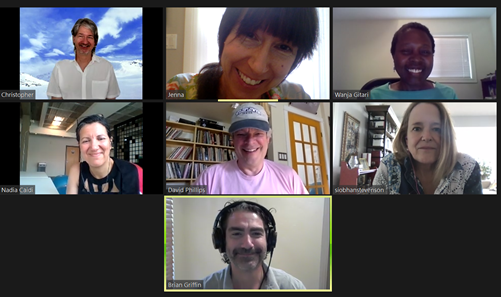
Participants in Dr. Brian Griffin's final oral examination (from upper left): Dr. Christopher Lueg (external appraiser), Dr. Jenna Hartel (supervisor), Dr. Wanja Gitari (chair), Dr. Siobhan Stevenson (committee member), Dr. David Phillips (committee member), Dr. Nadia Caidi (internal reader), and Dr. Brian Griffin.
|
On Monday, July 13th, 2020, Brian Griffin successfully passed a final oral examination to become Dr. Griffin. His thesis, Information Practices in Amateur Classical Musicianship, takes an ethnographic approach and provides a detailed account of exosomatic (documentary), embodied, and social information phenomena among amateur musicians in greater Toronto. The study also performs deft interdisciplinary translation work to incorporate social theories of practice into information behavior scholarship. Drs. David Phillips and Siobhan Stevenson were committee members for the project. At the final oral examination, Professor Christopher Lueg of Bern University of Applied Sciences served as the external appraiser and Dr. Nadia Caidi was the Faculty of Information's internal reader. OISE's Dr. Wanja Gitari chaired the event. During summer 2020, Dr. Griffin is teaching a class in information behaviour at the Faculty of Information, and intends to begin a scholarly career; you can learn more about him at his website. |
Panel at ALISE 2020: Introducing the Tree of Contemplative Practices
In October, 2020, at the virtual annual meeting of the Association for Library and Information Science Education (ALISE), I participated in the panel, "Introducing the Tree of Contemplative Practices." Contributors were Kiersten F. Latham (Michigan State University), Beck Tench (University of Washington), and Hugh Samson (University of Toronto).
|
Introducing the Tree of Contemplative Practices
ABSTRACT. Contemplative pedagogy has the potential to transform Library and Information Science (LIS) education in positive ways. This panel is hosted by instructors who have embraced contemplative pedagogy in their courses and wish to share a signal tool--The Tree of Contemplative Practices (Duerr, 2004)—with the ALISE community. The Tree is a graphic representation that helps educators and students alike to understand the main principles and seven major types of contemplative practice. Using the Tree as a framework, enthusiasts can learn contemplative practices in a systematic, secular, and bespoke manner. In the spirit of contemplative pedagogy, this panel will unfold through storytelling and embodied learning. Sequentially, the presenters will: 1) Encapsulate their commitment to contemplative pedagogy; 2) Recount an application of The Tree of Contemplative Practices in their teaching; and 3) Demonstrate one of the Tree’s major limbs and branches (such as the “Movement” limb and its contemplative practice of walking meditation). Ample time will follow these presentations for open discussion. At the conclusion everyone will be invited to join a virtual community devoted to extending contemplative pedagogy across LIS. |
Congratulations to Dr. Rebecca Noone!
On Friday, June 19th, 2020, Rebecca Noone passed the final oral examination of her doctoral studies at the Faculty of Information, University of Toronto. Her thesis From Here To: Everyday Wayfinding in the Age of Digital Maps was unanimously accepted, and marked the first Zoom doctoral defense at the Faculty of Information.
|
In her research, Dr. Noone, "...brings art and the social sciences together to consider how dominant forms of mediation, particularly visual information, orient mundane forms of sense-making." The dissertation focused on street-level wayfinding and unfolded in New York, Toronto, London, and Amsterdam when Rebecca asked citizens to provide directions to a nearby location. Her data set included 200 hand-drawn maps as well as descriptive fieldnotes about the encounters. The study aimed to, "...tease out the under-girding power structures at play in daily information experiences and provide an accessible and inspiring framework for reflection and awareness" in particular concerning the role of Google Maps.
|
We were honored to have cultural geographer Professor Gillian Rose of Oxford University as the external appraiser; Professor Leslie Shade as the internal reader from the Faculty of Information; and Drs. Matthew Brower and Irina Mihalache as steadfast committee members across the project. For my part, it has been incredible to supervise Rebecca, who I consider our Faculty's first 'information artist.' She has been my collaborator on the iSquare Research Program, a fantastic Teaching Assistant in my courses, and a constant source of joy. You can learn more about Dr. Noone at her website.
Panel at ASIS&T 2020: Towards an Integrated Information Science
|
At the ASIS&T 2020 virtual Annual Meeting on Sunday, October 25th (4:00 to 5:30 p.m. EST) I hosted the panel, “Towards an Integrated Information Science." Marcia J. Bates was the distinguished guest and discussant and panelists included: Tim Gorichanaz, Kiersten Latham, Christopher Lueg, Soo Young Rieh, and Leslie Thomson.
|
Towards an Integrated Information Science
ABSTRACT. More than ever, Information Science needs a coherent, powerful, integrated vision of itself and the value proposition it delivers in this Information Age. Complex and multifaceted uncertainties like pandemics and climate change do not yield to narrow or piecemeal solutions. Holistic visions of Information Science existed at our field’s formation a century ago, but sadly over the years have become increasingly fragmented and specialized. This 90-minute panel invites participants in the ASIS&T 2020 Annual Meeting to reconsider the benefits of holism and creates a stage to re-imagine a big and integrated Information Science. To that end, we will first adopt Bates’ (2002) conception of seven interpenetrating “Layers of Understanding.” Then, information scientists with expertise in one of the seven layers will speak about the information phenomena at their level. Having the full range of strata illuminated, Dr. Marcia J. Bates will share her sage reflections. Ample time will remain for the audience to tinker with, extend, challenge, or celebrate the idea of a wide-ranging, integrated Information Science.
ABSTRACT. More than ever, Information Science needs a coherent, powerful, integrated vision of itself and the value proposition it delivers in this Information Age. Complex and multifaceted uncertainties like pandemics and climate change do not yield to narrow or piecemeal solutions. Holistic visions of Information Science existed at our field’s formation a century ago, but sadly over the years have become increasingly fragmented and specialized. This 90-minute panel invites participants in the ASIS&T 2020 Annual Meeting to reconsider the benefits of holism and creates a stage to re-imagine a big and integrated Information Science. To that end, we will first adopt Bates’ (2002) conception of seven interpenetrating “Layers of Understanding.” Then, information scientists with expertise in one of the seven layers will speak about the information phenomena at their level. Having the full range of strata illuminated, Dr. Marcia J. Bates will share her sage reflections. Ample time will remain for the audience to tinker with, extend, challenge, or celebrate the idea of a wide-ranging, integrated Information Science.
Workshop at ASIS&T 2020: Writing-up Research as Thematic Narrative
|
On Friday, October 30th (8:00 a.m. to 12:00 p.m.) I'll be offering a workshop for the ASIS&T 2020 virtual Annual Meeting, entitled "Writing-up Research as Thematic Narrative." At this event, I'll be assisted by by my students Brian Griffin and Hugh Samson, as well as Hailey Siracky the Director of Library Services at St. Joseph’s College, University of Alberta. See the abstract, below.
|
Writing-up Research as a Thematic Narrative
ABSTRACT. There is a shortage of guidance and acumen in information science when it comes to writing-up qualitative research. This 4-hour Workshop at the 83rd ASIS&T Annual Meeting will present an effective strategy for reporting such findings. Participants will be taught to write a thematic narrative: a gradually unfolding descriptive account that relates vivid pieces of field data to relevant concepts in the scholarly literature. To that end, attendees will learn to create excerpt-commentary units: rhetorical structures that contain four distinct and purposeful elements. The Workshop will be production-oriented and attendees should ideally bring a data set ready to write-up. This session suits doctoral students with research underway, experienced social scientists who wish to fortify their writing, and those who supervise or edit qualitative research. The instructor, Dr. Jenna Hartel, has won the Library Journal/ALISE Excellence in Teaching Award (2016) and she has taught this method to more than 200 masters and doctoral students at the Faculty of Information, University of Toronto.
ABSTRACT. There is a shortage of guidance and acumen in information science when it comes to writing-up qualitative research. This 4-hour Workshop at the 83rd ASIS&T Annual Meeting will present an effective strategy for reporting such findings. Participants will be taught to write a thematic narrative: a gradually unfolding descriptive account that relates vivid pieces of field data to relevant concepts in the scholarly literature. To that end, attendees will learn to create excerpt-commentary units: rhetorical structures that contain four distinct and purposeful elements. The Workshop will be production-oriented and attendees should ideally bring a data set ready to write-up. This session suits doctoral students with research underway, experienced social scientists who wish to fortify their writing, and those who supervise or edit qualitative research. The instructor, Dr. Jenna Hartel, has won the Library Journal/ALISE Excellence in Teaching Award (2016) and she has taught this method to more than 200 masters and doctoral students at the Faculty of Information, University of Toronto.
Congratulations, Sam!
In early April of 2020, Sam Rowlandson-O'Hara successfully defended her master's thesis, From Forests to Formulas: Contextual Examination of Composers’ Sources, Materials, and Practices Involving Creative Insight. This exploratory research project utilized a survey and semi-structured interviews with classical music composers, as well as photographs of their document collections, to illuminate the emergence of creative insights when composing. The study expands our rational and narrow conception of information behaviour within an artistic domain, and is innovative for its mention of hallucinogens as information resources. Sam's project is also exceptional as our Faculty's first final oral examination to occur within the social distancing requirements of the pandemic, and Sam delivered an incredible virtual defense of her ideas. Dr. Cristos Hatzis of the University of Toronto's Faculty of Music (thesis committee member) and Ms. Sarah Polkinghorne (external examiner) also contributed to the project. Sam graduated during late spring 2020 and will bring her great enthusiasm for information phenomena to the workplace, and potentially continue her research into this topic. Congratulations, Sam!
Covid-19 Update
|
Thanks to all my students this semester (in INF1006 - Information and Contemplation) for your resilience as our course shifted online due to the COVID-19 pandemic. You were a great source of inspiration, given your professional, compassionate, and creative response to the situation. I hope you are all taking utmost care of yourselves. As for me (in late April, 2020), I am obediently hunkered down in my apartment in Toronto's Annex neighborhood, staying in contact with family and friends (virtually), and continuing with research and writing, when possible. Due to the pandemic, I will not be attending two conferences scheduled for this summer (there may be virtual alternatives)--which is a very minor loss, all things considered. I will likely still teach three sections of INF1323: The Information Experience at the Faculty of Information this Fall, though these classes might be online. I look forward to welcoming our incoming class to the Faculty of Information and the Library and Information Science concentration in September 2020. I am sending healthy and healing wishes to all!
|
Student Haiku Wanted on "The Joy of Information"
A special issue of Library Trends on "The Joy of Information" is in development; see the Call for Papers for a scope statement and submission details.
Students of Library and Information Science at all levels are invited to contribute haiku on the same theme (information and joy), for publication in a curated collection of the special issue. We are excited to showcase the considerable creativity and vision of the students in this field. Haiku is a form of short poetry that originates in Japan. When written in English, a haiku is an unrhymed, 3 line poem, where the syllables in each line are 5, 7, 5, respectively. Traditional haiku contain references to nature or the seasons, but we are interested in poems on the subject of information and joy (although references to nature are still welcome, where relevant). Whatever its subject, a haiku is made both by its structure and by its spirit; these poems are valued for their sparseness, and a good haiku balances simplicity with depth, in order to evoke emotion. Additional guidelines:
- The poem must conform to traditional haiku syllabic structure
- The theme must be the crossroads of information and joy (references to theories and concepts of LIS will be appreciated)
- Submissions are to be sent to [email protected] by July 1, 2020
- More than one haiku can be submitted per person
- As submissions will be judged blind, please do not include any identifying information in your haiku document or file name
- Authors must be enrolled in academic programs of Information Studies in 2020
Special issue of Library Trends: "The Joy of Information"
I am excited to be the guest co-editor of a special issue of Library Trends on the theme, "The Joy of Information." My collaborator on this project is Ms. Hailey Siracky, the Director of Library Services at St. Joseph’s College, University of Alberta. We are accepting complete manuscripts until August 1, 2020.
Ontario Library Association 2020 Super Conference
|
On Friday, January 31, I participated in a panel at the Ontario Library Association Super Conference, in Toronto. The session, Images and Imaginations: A Primer on Visual Research Methods, was organized by Dr. Shailoo Bendi of the University of Victoria and Ms. Jenaya Webb, Acting Director of the OISE library at the University of Toronto. As stated in the program, "This panel introduces visual research methods, a collection of methods that makes use of images (photographs, drawings, maps) to learn about social phenomena. Panellists will share results from three visual methods studies, discuss the methods’ strengths and weaknesses, and lead attendees through a hands-on activity using the draw-and-write technique."
|
|
The event at the OLA Super Conference also celebrated the publication of Visual Research Methods: An Introduction for Library and Information Studies, by Facet Published and edited by the panel's organizers. With my research collaborator, Dr. Deborah Hicks, I shared about our book chapter, "Librarian, Illustrated." This study utilized the draw-and-write technique (Hartel, 2019) to explore images and identities of "librarian." Ms. Rebecca Noone and Ms. Jess Whyte, both of the University of Toronto, also participated.
|
Turn, Turn, Turn Video
|
|
At left is a 22-minute video version of my presentation and paper -- "Turn, Turn, Turn" -- from the 10th Conceptions of Library and Information Science Conference (CoLIS) in Ljubljana, Slovenia (June 15-19, 2019). A timeline-map accompanies the work and is available as a 11" by 17" PDF, here. The full text of the conference paper, Turn, Turn, Turn appears in the journal Information Research, here.
|
New Course: The Joy of Information
During Fall semester of 2019, I offered a new course, The Joy of Information. It introduced students to a positive Information Science by focusing upon information in contexts that are perceived as joyful, sublime, upbeat, creative, interesting, pleasurable, and fun. In doing so, it intentionally placed aside information experiences associated with negative or quotidian states such as work, problems, pain, conflict, boredom, everyday routines, and unconsciousness. Participants explored the idea that positive information phenomena have distinct qualities and are important to what Plato called eudaimonia—a flourishing life. Practically speaking, enrollees discovered how information institutions and their stakeholders may mediate and champion a positive approach to their information resources, systems, and services.
The first offering of the course during Fall 2019 was centered upon leisure, an information-rich, heterogeneous, and joyful domain. To that end, a theoretical framework of leisure, the Serious Leisure Perspective (SLP) (Stebbins, 2001) was used to systematically analyze leisure and its information phenomena. Over the course of the semester, casual leisure, serious leisure (including hobbies), project-based leisure, and devotee work (paid work that feels like leisure), were examined for their informational patterns and distinctions. Though the SLP organized our approach to leisure, students were encouraged to challenge and critique its authoritative stance, especially concerning its cultural range and the treatment of leisure that is centered upon multimedia and online experience.
A variety of unconventional assignments fortified understanding of the topic. For starters, students used the SLP to map their own leisure pursuits; subsequently, they conducted an original visual research project to document positive information phenomena within their own leisure-related information collections. Then, embracing a broader vista, the class worked together to analyze informational patterns within popular culture and media via a content analysis of the hit sitcom about metal detecting, Detectorists.
The first offering of the course during Fall 2019 was centered upon leisure, an information-rich, heterogeneous, and joyful domain. To that end, a theoretical framework of leisure, the Serious Leisure Perspective (SLP) (Stebbins, 2001) was used to systematically analyze leisure and its information phenomena. Over the course of the semester, casual leisure, serious leisure (including hobbies), project-based leisure, and devotee work (paid work that feels like leisure), were examined for their informational patterns and distinctions. Though the SLP organized our approach to leisure, students were encouraged to challenge and critique its authoritative stance, especially concerning its cultural range and the treatment of leisure that is centered upon multimedia and online experience.
A variety of unconventional assignments fortified understanding of the topic. For starters, students used the SLP to map their own leisure pursuits; subsequently, they conducted an original visual research project to document positive information phenomena within their own leisure-related information collections. Then, embracing a broader vista, the class worked together to analyze informational patterns within popular culture and media via a content analysis of the hit sitcom about metal detecting, Detectorists.
COLIS Conference
|
In June I attended the 10th international Conceptions of Library and Information Science (COLIS) Conference. It is hosted by the Department of Library and Information Science and Book Studies at the Faculty of Arts, University of Ljubljana, Slovenia. There, I presented the paper Turn, Turn, Turn and contributed to the conversation cafe, About time: Re-thinking information through the lens of time and temporality (organized by Dr. Jutta Haider). The abstract for Turn, Turn, Turn is below.
|
New Course: Information & Contemplation
|
During Winter semester of 2019 I taught a new Information Workshop entitled Information and Contemplation. It was inspired by a course of same name taught by Dr. David Levy at the University of Washington's iSchool. My syllabus reads, "This new INF1005/1006 Workshop introduces students at the Faculty of Information to contemplative practice and explores its potential for sparking positive change in Information Studies and in information institutions. The goals of the course are as follows: To examine theoretical points of contact between Contemplative Studies and Information Studies; to imagine contemplative programs, services, and resources for the betterment of information institutions and their publics; and to give participants a structured opportunity to develop their own contemplative practice." A visual version of the syllabus, inspired by a treasure map, is available here.
|
The Red Thread of Information
|
In the Fall 2018 offering of The Information Experience (a required course in the Library and Information Science concentration), students had a hands-on experience with Marcia Bates' idea of the "red thread of information" that is woven through "the social texture of people's lives." Thanks to Masters of Information students Linda Yang, Karen Fingas, Alexandre (Sasha) Ioffine, Mark Curran, and Joshua Shum for leading this great activity.
|
Halloween Surprise
|
This Halloween a very special guest appeared in my course, INF1323: The Information Experience. It was the one and only Dr. Marcia Bates! In actuality, the visitor was Master of Information student, Stephanie Wilcox, dressed in a costume inspired by the work of Dr. Bates--shown at left. To that end, she is draped in "the red thread of information" (from the award-winning article, Invisible Substrate of Information Science). What is more, Stephanie went from person to person giving away berry candies (in the spirit of the classic information behaviour model, Berrypicking). A big thanks to Stephanie for making everyone smile (including Dr. Bates, when she saw the photo) and for a most creative application of information science ideas. Thanks also to James Zhan for the photograph.
|
ASIS&T Lecture Series Award
Thank you, ASIS&T, for granting me the 2017/18 ASIS&T Lecture Series Award. Through this award I travelled to the School of Information Management (SIM) at Sun Yat-sen University (SYSU) in Guangdong, China, from June 3-14, 2018. My goal was to initiate a more culturally and geographically expansive vision of information science that integrates North American and Chinese perspectives. The visit had three elements that culminate in the keynote ASIS&T Lecture. First, supervised an arts-informed research project at SIM to capture visual conceptions of “information.” Second, I lead a workshop with SIM students and faculty to analyze the images, thereby creating a bilateral exchange about the nature of information. Third, I delivered the ASIS&T Lecture, entitled The Red Thread of Information. Altogether, these happenings celebrated information and information science from Chinese and North American standpoints; introduced new, creative research methods to the SIM community; and showcased ASIS&T’s contribution to scholarly cooperation worldwide. The abstracts for my two presentations are below. I wish to recognize my host and collaborator for this project, Dean Miguel Nuñez and to thank SIM and SYSU for supporting the visit.
iConference 2018, University of Sheffield
|
In late March 2018 I participated in the iConference at the University of Sheffield, UK. There, I presented on the panel Contemplating Information in the Pleasurable and the Profound with Dr. Kiersten Latham, Mr. Tim Gorichanaz, and Ms. Anh Thu Nguyen. I was also a contributor to the workshop iWords: Exploring the Interdisciplinary Vocabularies of Information Research, organized by doctoral students at the iStories Research Lab of the University of Washington [Andrea Hoff, Michelle Kaczmarek, Robyn Schafer, Siguna Shankar, and Bonnie Tulloch.
|
ALISE Webinar: 10 Ideas for Innovative Teaching
On Friday, September 29, 2017 (at 2:00 Eastern Time), I presented a webinar for ALISE (Association for Library and Information Science Education). In the webinar I discussed 10 Ideas for Innovative Teaching. Mindfulness meditation, souvenirs, iSquares, and "creative deliverables" were just a few of the pedagogical surprises offered. Each idea was presented with an eye to turnkey implementation, so that other educators can adopt and implement one or more of the strategies right away. Real student feedback drawn from course evaluations supplied a student perspective, when available. Time was reserved at the end of the webinar to entertain additional ideas for innovative teaching, sourced from the audience.
Congratulations to Dr. Eva Jansen Hourihan
|
On August 29, 2017, Eva Jansen Hourihan passed her Final Oral Exam--officially becoming Dr. Jansen Hourihan. Her thesis, Let’s Talk About the NOC: an Ethnography of Classification is a ground-breaking ethnographic study of a classification system.
|
Congratulations to Jess Whyte!
|
On August 22, 2017, Jess Whyte successfully defended her master's thesis, Molding Makers: An Ethnography of an Academic Makerspace. Her excellent work was accepted without any revisions. Participants in the defense were: Dr. Jenna Hartel (supervisor), Dr. Matt Ratto (committee member), Dr. Heather Moorefield-Lang of the University of South Carolina School of Library and Information Science (external appraiser), and Dr. Chun Wei Choo (chair).
|
Social Epistemology as Theoretical Foundation...
|
In August, 2017 I participated in a conference at the University of Copenhagen, Social Epistemology as Theoretical Foundation for Information Science: Supporting a Cultural Turn. This event featured a keynote address by Dr. Steve Fuller and presentations by other experts on social epistemology, classification theory, and/or domain analysis. My role was to present a summary of the ideas covered on the first day of the conference.
|
Diversity by Design
In September, 2017 I participated in two sessions of the Diversity by Design Symposium at the University of Toronto. A workshop, "The Information Horizon Interview," was hosted by students from the Winter 2017 offering of INF2332: Information Behaviour, namely: Daisy Dowdall, Glyneva Bradley Rideout, Ken Konkatong, Elisabeth Saunders, Maria Ruiz, Marie Tossios, and Martin Chandler (see photo, below).
|
Our 90-minute session included four interactive elements: 1.) An introduction to information behaviour research and the information horizon interview;2.) “Mad Lib” case studies of students’ information horizon projects; 3.) A step-by-step tutorial on the information horizon interview that addresses ethical protocols, research questions, sampling, interview guide design, conducting the interview, data analysis, and research dissemination; and 4.) Small group practice sessions.
Also, along with my colleagues, Kathleen Scheaffer and Anh Thu Nguyen, I participated in "The diversity of mindfulness: Inclusion and information through wellness-infused pedagogy, resources, spaces, research, and student participation at the Faculty of Information, University of Toronto." |
Archival Education and Research Initiative
|
During July, 2017 I presented a two-part workshop (with the support of my collaborator, Dr. Pauline Joseph), entitled Framing Information as Art, at the Archival Education and Research Initiative (AERI), in Toronto, Canada. Rebecca Noone, Stephanie Posa, and Annie Xu, members of the iSquare Research Team, made fantastic contributions to this session.
|
CAIS Annual Meeting, June, 2017
In June, 2017 I participated in a panel, entitled, Marcia J. Bates: Past--> Present-->Future at the Canadian Association for Information Science (CAIS) annual meeting in Toronto, Canada. The panel session explored, critiqued, and celebrated the work of canonical information scientist, Marcia J. Bates. To begin, I surveyed her oeuvre. Then, five graduate students from the Faculty of Information (pictured above: Rachel Lee, Erica Friesen, Yuxi Ren, Dr. Bates, Daina Cers, Jenna Hartel, and Anh Thu Nguyen) reported on their semester-long explorations of a singular concept by Bates. Each student’s talk featured a summary and critical examination of a seminal idea by Bates in its original historical context. Then, the same concept was considered in the light of this Information Age. Following each talk, Marcia J. Bates shared her reflections. Ample time was provided for discussion among Dr. Bates, the panelists, and attendees.
Summer Teaching, 2017
During summer semester, 2017, I taught INF2330: Information Ethnography. The course followed an intensive, 6-week format (Monday & Wednesday, 4:00-6:00; May 1 - June 12).
Congratulations, Elysia
|
|
On February 17, 2017, Elysia Guzik passed her Final Oral Exam--officially became Dr. Guzik. Her thesis, Informing Identities: Religious Conversion Experiences of Muslims in the Toronto Area, explores the information practices that occur during the process of conversion to Islam. Participants in the Exam included: Elysia, Jenna Hartel (Supervisor), Nadia Caidi (Committee Member), Simon Coleman (Committee Member), Chun Wei Choo (Examiner) and Melissa Gross (External Examiner). |
Jackman Scholars-in-Residence Program @ Victoria College
|
During May, 2017 I contributed to the Jackman Humanities Institute's Scholars-in-Residence Program at Victoria College. In this program I supervised five exceptional undergraduate students from across the University of Toronto who conducted arts-informed, visual research in the spirit of the iSquare Research Program. The iSquare Team's Rebecca Noone, Christie Oh, and Stephanie Power participated in the project, too. Learn more...
|
Reading Course on Marcia J. Bates
During Winter semester of 2017, I offered a Reading Course on the work of information scientist, Marcia J. Bates. Here's the Reading Guide.
Special issue of Library Trends: "Information and the Body"
With Andrew Cox (Sheffield, UK) and Brian Griffin (Toronto), I co-edited a special double issue of Library Trends on "Information and the Body."
INF1300: Foundations of LIS - In Our Time assignment
During the fall semester of 2016, students in the course INF1300: Foundations of Library and Information Science, participated in a novel multimedia assignment. Learn more...
The Gingerbread House of Information
KNOWeSCAPE Conference, February 2017
I was a keynote speaker at the KNOWeSCAPE Conference in Sofia, Bulgaria, February 22-24, 2017. The KNOWeSCAPE initiative is funded by COST (European Cooperation in Science and Technology) and entails four working groups whose main objective is to "advance the analysis of large knowledge spaces and systems that organize and order them."
Library Journal/ALISE Excellence in Teaching Award
Thank you, Library Journal and ALISE, for granting me the 2016 Excellence in Teaching Award. I promise to return this honor by many more years of dedication to the academic discipline of library and information science and the profession of librarianship. This is also an important moment to recognize all my amazing teachers: Marcia Bates, Mary Niles Maack, Christine Borgman, Jonathan Furner, Greg Leazer, Leah Lievrouw, Sanna Talja, Reijo Savolainen, Birger Hjorland, Steve Fuller, David Jenkins, and many others. Thanks also to my colleagues who assembled the nomination, especially Aleatha Cox and Dean Wendy Duff. Finally, this award is a result of the boundless creativity, intelligence, and goodwill of students at the Faculty of Information, University of Toronto, who are truly a joy to teach.
ALISE Conference, January 2017
|
In mid-January I attended the ALISE Conference in Atlanta, Georgia. There, I presented the paper "Multimedia Approaches to Learning the Foundations of Library and Information Science" with co-authors Elysia Guzik and Brian Griffin. At ALISE I also accepted the 2016 Library Journal/ALISE Excellence in Teaching Award.
|
ASIS&T Annual Meeting
|
In mid-October, 2016 I attended the ASIS&T Annual Meeting in Copenhagen, Denmark. There, I co-host a workshop on Visual Research Methods with Dr. Krystyna Matusiak of the University of Denver and Ms. Leslie Thomson of the University of North Carolina at Chapel Hill. An overview of the workshop appears below.
Visual Research Methods Workshop (Saturday, October 15, 2016) Visual research methods have been traditionally employed in social sciences, particularly in anthropology and sociology. Increasingly, image-based research inquiry is getting attention in library and information science research and education. Researchers engage in gathering data in the visual mode of representation by encouraging participants to draw or by eliciting photos and other visual artifacts. Visual documentary evidence or visual records created by users in their professional or personal information practices are another rich source of data. While visual data collection is relatively easy, data analysis of image-based records is inherently complicated. This half-day workshop, sponsored by SIG-VIS, will provide a succinct introduction to visual research methods and then focus attention on visual data analysis. |
DIAGRAMS Conference
In August, 2016, I attended Diagrams, an international interdisciplinary conference series, covering all aspects of research on the theory and application of diagrams. At Diagrams, I presented a tutorial, "Visualizing Information" with iSchool student Rebecca Noone. An abstract for the tutorial is below.
Visualizing Information (Sunday, August 7, 2017, 4:00-5:30 p.m.)
This tutorial introduces the Diagrams community to arts-informed visual research, using the draw-and-write technique as an example. It does so in the context of the iSquare Research Program (www.iSquares.info), an ongoing effort to understand and document “information” as a visual phenomenon. The 90-minute session will begin with a demonstration and description of the draw-and-write technique as it is employed in the iSquare project. Then, a sample of drawings of information will be displayed and analytical attention will be placed upon link diagrams, grouping diagrams, and pictorial metaphors for information. The audience will be engaged in a game that will help them understand the distinctions between these major forms of graphic representations. Next, the iSquare team’s artist-in-residence will locate the iSquares in a genealogy of contemporary art’s themes and practices and demonstrate how the images can be used in art exhibitions and interactive story-telling. To conclude, the pedagogical applications of the draw-and-write technique and the iSquare protocol will be discussed from the point-of-view of an instructor and graduate student. The event includes several hands-on activities, interdisciplinary perspectives from three fields (information science, visual studies, and education) and a collaborative spirit. Participants will be encouraged to apply arts-informed visual methods and the draw-and-write technique to their own research questions, and they will leave the tutorial with a fresh sense of information as a visual phenomenon that can be better understood through diagrams. An interactive art exhibition of a portion of the iSquare corpus can also accompany the tutorial and remain on display for the duration of the Diagrams conference.
Visualizing Information (Sunday, August 7, 2017, 4:00-5:30 p.m.)
This tutorial introduces the Diagrams community to arts-informed visual research, using the draw-and-write technique as an example. It does so in the context of the iSquare Research Program (www.iSquares.info), an ongoing effort to understand and document “information” as a visual phenomenon. The 90-minute session will begin with a demonstration and description of the draw-and-write technique as it is employed in the iSquare project. Then, a sample of drawings of information will be displayed and analytical attention will be placed upon link diagrams, grouping diagrams, and pictorial metaphors for information. The audience will be engaged in a game that will help them understand the distinctions between these major forms of graphic representations. Next, the iSquare team’s artist-in-residence will locate the iSquares in a genealogy of contemporary art’s themes and practices and demonstrate how the images can be used in art exhibitions and interactive story-telling. To conclude, the pedagogical applications of the draw-and-write technique and the iSquare protocol will be discussed from the point-of-view of an instructor and graduate student. The event includes several hands-on activities, interdisciplinary perspectives from three fields (information science, visual studies, and education) and a collaborative spirit. Participants will be encouraged to apply arts-informed visual methods and the draw-and-write technique to their own research questions, and they will leave the tutorial with a fresh sense of information as a visual phenomenon that can be better understood through diagrams. An interactive art exhibition of a portion of the iSquare corpus can also accompany the tutorial and remain on display for the duration of the Diagrams conference.
Summer Reading Course: The Serious Leisure Perspective
During summer 2016 I offered a reading course on the Serious Leisure Perspective (SLP). As a reading course the primary activity was independent student reading and reflection. The course was supplemented with a peer discussion group; online searching and literature reviews on an SLP-related topic of personal interest; and a written final paper or creative deliverable in another format. The schedule for the semester loosely followed the intellectual history of the SLP. Assigned readings favored original publications by Stebbins; later synthesis and alternative perspectives were provided for contrast.
COLIS 9
|
In June I attended the ninth Conceptions of Library and Information Science Conference (CoLIS) at Uppsala University in Sweden. (This is my favorite, small, theory conference in Library and Information Science.) I participated in three sessions at CoLIS: 1) The paper, "Information Behaviour, Visual Research, and the Information Horizon Interview: Three Ways"; 2) The panel, "Domain Analysis: Assumptions and New Techniques for Articulating Domains," hosted by Eva Jansen and with Birger Hjorland and Isto Huvila; and 3) The panel, "What Every Body Knows: The Body in Information Behaviour and Information Practices," with Andrew Cox, Brian Griffin, AnneMaree Lloyd and Michael Olsson.
|
Visual Research Project: Information/Internet/Librarian
|
|
This past fall, my students in INF1300: Foundations of Library and Information Science used the iSquare Protocol to conduct research on information, the Internet, and librarianship. The project is profiled at a new website (Information/Internet/Librarian) and a glimpse of arts-informed deliverables appear at left. Congratulations to all participants for producing incredible papers and artworks that offer new insights into fundamental concepts of library and information science.
|
Invited Lecture: "Pictorial Metaphors for INformation"
On Tuesday, April 26 (3:00-4:00), 2016 I delivered an invited lecture at the Department of Library and Information Studies at the University of Buffalo. My presentation was entitled "Pictorial Metaphors for Information" and was based on iSquare research I conducted with Dr. Reijo Savolainen; an abstract is below.
Pictorial Metaphors for Information
The iSquare Research Program is an arts-informed, visual study in which people answer the question “What is information?” in the form of a compact line drawing, coined an “iSquare." Since 2011, more than 2,000 iSquares have been collected from diverse academic disciplines and from around the world. In this presentation, Dr. Jenna Hartel will provide an overview of the iSquare project and report recent insights into the pictorial metaphors associated with information. Eight common pictorial metaphors for information that appear in the iSquare corpus—earth, web, tree, light bulb, box, cloud, fishing/mining, and eye—will be displayed and explicated imaginatively. The talk will also address the potentials of arts-informed, visual research for social scientific inquiry and will note implications of graphical elicitation techniques for research, education, and practice in information studies and beyond.
Pictorial Metaphors for Information
The iSquare Research Program is an arts-informed, visual study in which people answer the question “What is information?” in the form of a compact line drawing, coined an “iSquare." Since 2011, more than 2,000 iSquares have been collected from diverse academic disciplines and from around the world. In this presentation, Dr. Jenna Hartel will provide an overview of the iSquare project and report recent insights into the pictorial metaphors associated with information. Eight common pictorial metaphors for information that appear in the iSquare corpus—earth, web, tree, light bulb, box, cloud, fishing/mining, and eye—will be displayed and explicated imaginatively. The talk will also address the potentials of arts-informed, visual research for social scientific inquiry and will note implications of graphical elicitation techniques for research, education, and practice in information studies and beyond.
iConference
In March, 2016 I attended the iConference in Philadelphia, Pennsylvania, USA. I ran the workshop "Analyzing Visual Data" with iSchool doctoral student Rebecca Noone and contributed to the workshop "Mapping the Positive Turn" with my collaborators Andrew Cox, Brian Griffin, and Robert A. Stebbins. Both abstracts are below.
Analyzing Visual Data (Sunday, March 20, 8:30 a.m. to 12:00)
Visual research methods are hot across academe and starting to penetrate the iSchool community. In any visual research design, data collection is relatively easy compared to the more complicated task of analysis. Therefore, this half-day Workshop focuses critical attention on visual data analysis. The session is intended for three audiences: 1.) those who wish to be guided in advance through their own original visual research project that is analyzed at the Workshop; 2.) scholars who already have a visual data set that has yet to be analyzed; and 3.) people with a general interest in visual research methods. These three groups will convene at the iConference in Philadelphia to learn and practice five visual analysis techniques, namely: compositional interpretation, content analysis, thematic analysis, pictorial metaphor analysis, and conceptual analysis. The session will be run by Jenna Hartel, an early adopter of visual methods in information studies, creator of the iSquare Research Program, and a specialist on visual data analysis. The event concludes with recommendations from an artist on ways to disseminate the results of visual research via traditional and non-traditional formats and channels. In a collaborative environment, all participants will be able to voice questions and concerns about the visual analysis process and advance their own visual research projects; further, the get-together will seed a community of interest for the future.
Mapping the Positive Turn (Sunday, March 20, 1:30 to 5:00)
This half-day workshop will bring together scholars, practitioners, and students from across the iSchool community to discuss current research around “positive” information phenomena, that is, nonproblematical perspectives on the information experience. The session will explore a range of positive concepts recently emerged in information science, such as: well-being, happiness, leisure and positive computing. Throughout the session, our conversation will move between information science to specialties such as positive psychology, positive sociology, and the sociology of happiness; we will clarify terms, concepts and themes and ultimately generate an interdisciplinary map of positive scholarship. Participants will share their own thinking and research on these topics, map current and future research trajectories, and produce a foundation for future collaboration. In keeping with a spirit of interdisciplinarity, the event will feature a keynote by the architect of positive sociology, sociologist and leisure scholar Dr. Robert A. Stebbins.
Analyzing Visual Data (Sunday, March 20, 8:30 a.m. to 12:00)
Visual research methods are hot across academe and starting to penetrate the iSchool community. In any visual research design, data collection is relatively easy compared to the more complicated task of analysis. Therefore, this half-day Workshop focuses critical attention on visual data analysis. The session is intended for three audiences: 1.) those who wish to be guided in advance through their own original visual research project that is analyzed at the Workshop; 2.) scholars who already have a visual data set that has yet to be analyzed; and 3.) people with a general interest in visual research methods. These three groups will convene at the iConference in Philadelphia to learn and practice five visual analysis techniques, namely: compositional interpretation, content analysis, thematic analysis, pictorial metaphor analysis, and conceptual analysis. The session will be run by Jenna Hartel, an early adopter of visual methods in information studies, creator of the iSquare Research Program, and a specialist on visual data analysis. The event concludes with recommendations from an artist on ways to disseminate the results of visual research via traditional and non-traditional formats and channels. In a collaborative environment, all participants will be able to voice questions and concerns about the visual analysis process and advance their own visual research projects; further, the get-together will seed a community of interest for the future.
Mapping the Positive Turn (Sunday, March 20, 1:30 to 5:00)
This half-day workshop will bring together scholars, practitioners, and students from across the iSchool community to discuss current research around “positive” information phenomena, that is, nonproblematical perspectives on the information experience. The session will explore a range of positive concepts recently emerged in information science, such as: well-being, happiness, leisure and positive computing. Throughout the session, our conversation will move between information science to specialties such as positive psychology, positive sociology, and the sociology of happiness; we will clarify terms, concepts and themes and ultimately generate an interdisciplinary map of positive scholarship. Participants will share their own thinking and research on these topics, map current and future research trajectories, and produce a foundation for future collaboration. In keeping with a spirit of interdisciplinarity, the event will feature a keynote by the architect of positive sociology, sociologist and leisure scholar Dr. Robert A. Stebbins.
The "Box of Crayons"
ASIS&T Annual Meeting
In early November 2015 I attended the ASIS&T Annual Meeting in St. Louis, Missouri, USA. For this conference I organized a panel session about the International iSquare research project; the panel was entitled "Visualizing Information Worldwide" and details appear below. An exciting feature of this event was the participation of iSquare team members Rebecca Noone, Stephanie Power, Pavel Danzanov and Bridgette Kelly, all from the Faculty of Information, University of Toronto.
Visualizing Information Worldwide
Twelve scholars based at information programs worldwide have recently participated in research that asks: How is the concept of information visualized in my community and beyond? The study employed an arts-informed, visual methodology and the draw-and-write technique to stimulate local and global conversations about the pictorial nature of information in society. The work has generated new insights into information as a visual phenomenon and generated an archive of “iSquare” images to be used for information research, education, and practice. As a contribution to the conference theme of “Impact on Society,” this panel introduces the project, describes its technical infrastructure, highlights emerging social scientific and artistic outcomes, and reports cross-cultural discoveries. The multimedia and interactive session will include in-person presentations, short videos from collaborators overseas, an expert discussant, dialogue with the audience, and an art exhibition.
Visualizing Information Worldwide
Twelve scholars based at information programs worldwide have recently participated in research that asks: How is the concept of information visualized in my community and beyond? The study employed an arts-informed, visual methodology and the draw-and-write technique to stimulate local and global conversations about the pictorial nature of information in society. The work has generated new insights into information as a visual phenomenon and generated an archive of “iSquare” images to be used for information research, education, and practice. As a contribution to the conference theme of “Impact on Society,” this panel introduces the project, describes its technical infrastructure, highlights emerging social scientific and artistic outcomes, and reports cross-cultural discoveries. The multimedia and interactive session will include in-person presentations, short videos from collaborators overseas, an expert discussant, dialogue with the audience, and an art exhibition.
International Visual Methods Conference
|
September 16-18, 2015 I participated in the 4th International Visual Methods Conference at the University of Brighton, England. My paper, "Visual Analysis Through Four Lenses" critiqued four analytical devices used in the iSquare study: compositional interpretation, thematic analysis, content analysis, and pictorial metaphor analysis.
|
Bravo, Angela!
|
University of Western Ontario (UWO) doctoral candidate Angela Pollak successfully defended her dissertation on March 10, 2015 and she is now officially Dr. Pollak. Her thesis (abstract) is a ground-breaking study of information experience in the village of Whitby, Ontario; it looks simultaneously across everyday life, work, and leisure contexts. The study was supervised by Dr. Lynne McKechnie and the examination committee consisted of Dr. Carole Farber, Dr. Paulette Rothbauer, and Dr. Kim Clark (all of UWO), with myself as external examiner. Bravo, Angela!
|
i3 Conference
June 23-25, 2015 I participated in the i3 Conference (Information: Interactions and Impact) at Robert Gordon University in Aberdeen, Scotland. There, I presented a paper co-authored with Reijo Savolainen (University of Tampere, Finland), entitled "Pictorial Metaphors for Information." Our paper discussed eight common pictorial metaphors that appear in iSquare drawings of information; the manuscript is published in the Journal of Documentation.
Invited Lecture, Curtin University, Perth, Australia
|
As a Visiting Fellow at Curtin University in Perth, Australia, I gave a public lecture to mark Australia's 2015 Information Awareness Month. The talk was entitled "Information Celebration;" details are provided here.
|
Visiting Fellowship at Curtin University
|
While on sabbatical this spring I spent parts of April and May at Curtin University in Perth, Australia. As a Visiting Fellow in the School of Media, Culture and Creative Arts, I partnered with Dr. Pauline Joseph on an iSquare research project in the domain of Records and Archives Management (RAM). Our work together marked the first application of an arts-informed, visual approach and the draw-and-write technique to understanding the central concept of “information” in RAM. The project built strategically upon the iSquare Research Program and leveraged its best techniques; see the dedicated project webpage that outlines the visit and associated events, here.
|
World information Architecture Day Keynote Address
|
On Saturday, February 21, 2015, I spoke at World Information Architecture Day in Ann Arbor, Michigan. This local celebration of a world-wide event was hosted by the University of Michigan's School of Information; the theme was "Architecting Happiness." The title and abstract of my talk appear below.
Abstract My presentation is best captured in the form of the diagram, above; it displays information architecture, happiness, and leisure in an interlocking framework. To start, I will celebrate the special work that information architects perform to envision and oversee the informational structures and patterns that reside underneath the surface of everyday life. Then, I will turn attention to one notably happy and cherished life experience – leisure! – and reveal the structures and patterns that exist therein, too. Finally, I will guide the audience to bridge and fuse these neighboring domains (information and leisure) in order to more mindfully design and manage products and services that generate happiness in leisure settings and beyond. |
Visit to the Information School, University of Sheffield
|
|
In October, 2014 I was a visiting scholar at the Information School at the University of Sheffield, England. I have always wanted to experience this program, on account of the pioneering research on information behaviour that occurred at Sheffield. My host was Dr. Andrew Cox, with whom I share an interest in leisure information phenomena and arts-informed visual methods. While at Sheffield, I presented a colloquium about the iSquare project; collected iSquare drawings from students and then mounted the drawings as an exhibition (shown above); co-hosted an arts-informed visual research seminar with Dr. Cox; offered a career and thesis planning workshop to doctoral students; and met with many faculty members, including professor emeritus and information behaviour pioneer, Tom Wilson. Thanks to the Information School and Dr. Cox for supporting the very productive visit.
|
Congratulations, Ben!
|
In September 2014, Ben Walsh successfully defended a superb masters thesis, Information Out in the Cold: Exploring the Information Practice of Homeless Queer, Trans, and Two-spirit Youth in Toronto. It was deemed to be of very high quality and passed with no modifications. The Thesis Committee included Jenna Hartel (supervisor), Patrick Keilty (Committee Member), and Paulette Rothbauer (External Evaluator from the University of Western Ontario).
|
Information Seeking in Context (ISIC)
In early September 2014 I attended the Information Seeking in Context conference (ISIC) at Leeds University, England. ISIC is my favorite academic conference! At ISIC I participated in the Doctoral Workshop as a research mentor. I also presented the paper "Information Behaviour Illustrated" that examines iSquares for insights into information behaviour. Finally, I hosted the panel "State of play: Information
phenomena in a leisure context" with Ian Ruthven, Max L. Wilson, and Christopher J. Young. The proceedings from ISIC will be published in fall 2014 in in online journal, Information Research.
The iSchool Video Contest Winner: Hailey Siracky ("Sky")
|
|
My former thesis student, Hailey Siracky (also mentioned below), won the first iSchool video contest with the brilliant, heart-warming animation, entitled Sky. It features, among many other wonderful images, the motif of Marcia Bates' "red thread of information." Congratulations, Hailey!
|
iSquare Webinar
On Friday, February 7, 2014 at 11:00 a.m. I presented a webinar entitled "iSquares: A New Approach to Research and Education in Information Science." The event is sponsored by ASIS&T's SIG-USE and SIG-HFIS.
Congratulations, Hailey!
|
In late August 2013 Hailey Siracky successfully defended an extraordinary thesis about journals and their role in the spiritual lives of Catholic youth. The thesis, entitled Spiritual Journal Keeping: An Ethnographic Study of Content, Materials, Practice, and Structure, was passed with no modifications -- a sign of its excellence. Congratulations, Hailey! The Thesis Committee included Jenna Hartel (supervisor), Patrick Keilty (Committee Member), and Pamela McKenzie (External Evaluator from the University of Western Ontario).
|
Congratulations, Leslie!
|
In March, 2013, my former advisee and collaborator Leslie Thomson (pictured in the photograph, at right), was accepted for doctoral studies in information at the University of North Carolina, Chapel Hill. Further, she was awarded a prestigious (and generous) 5-year Royster Fellowship. Leslie is interested in visual research methods and personal information management; at UNC she will study with Barbara Wildemuth and Rob Capra. Congratulations, Leslie!
|










